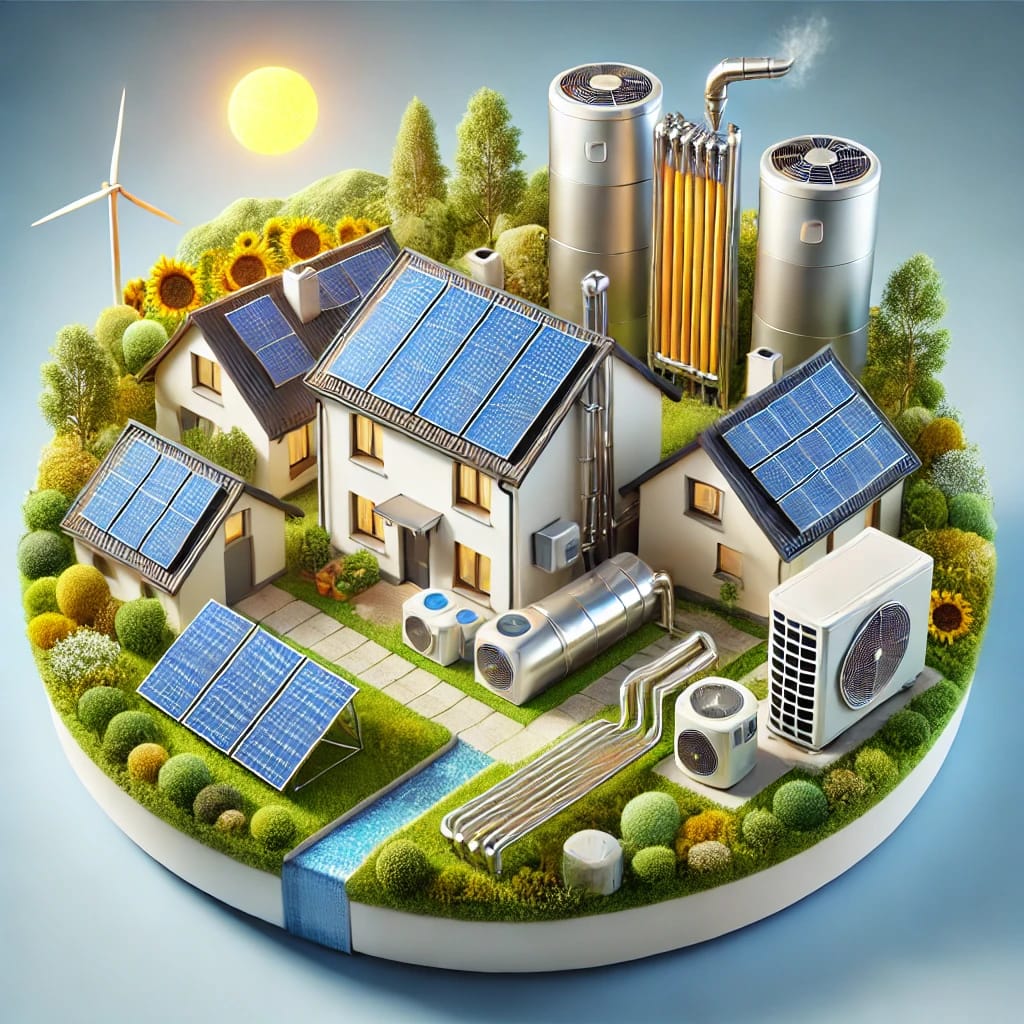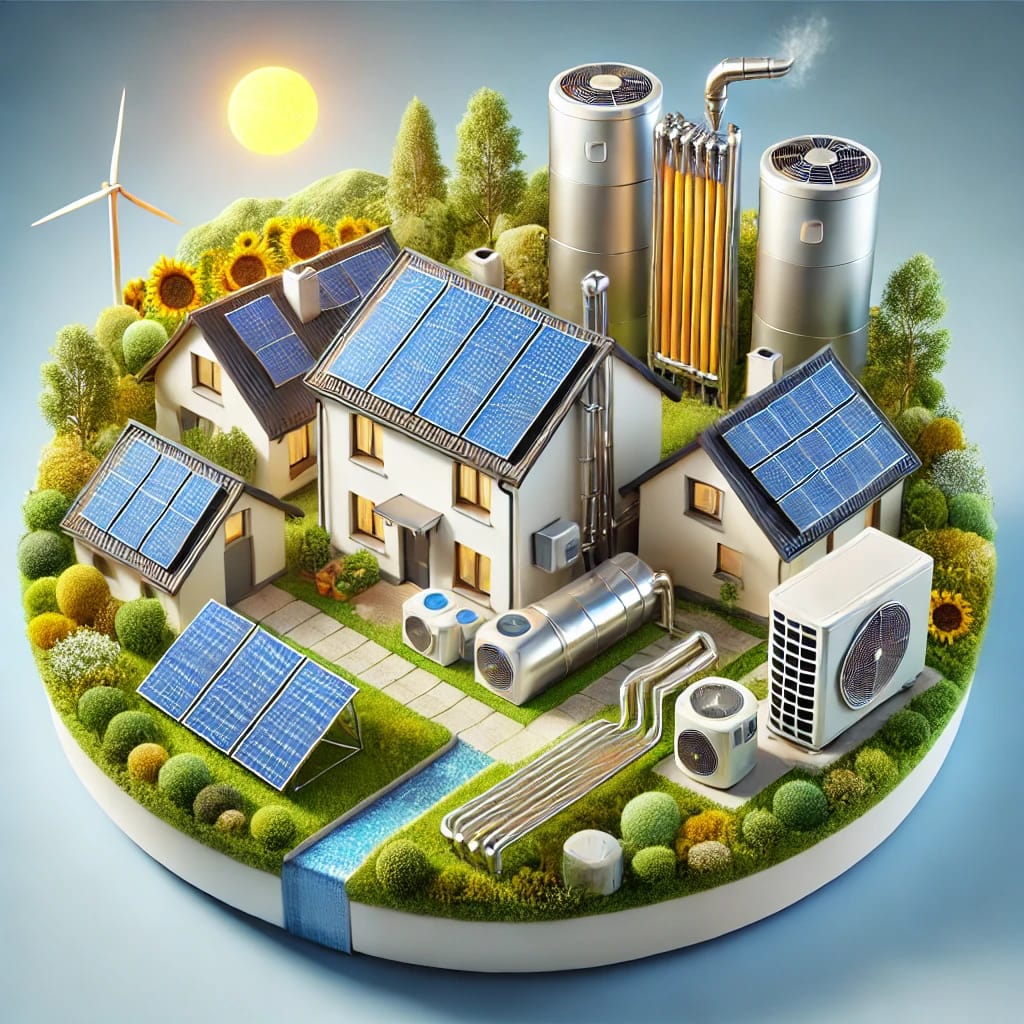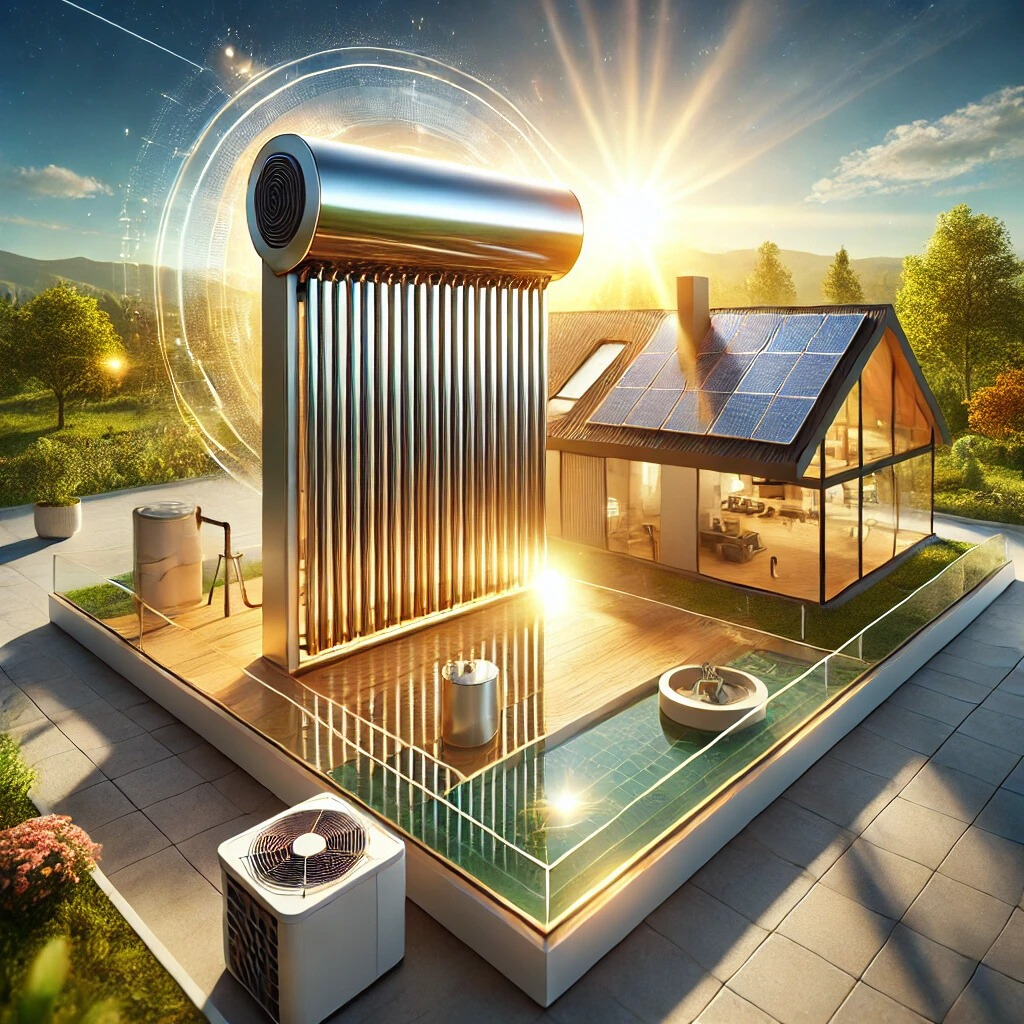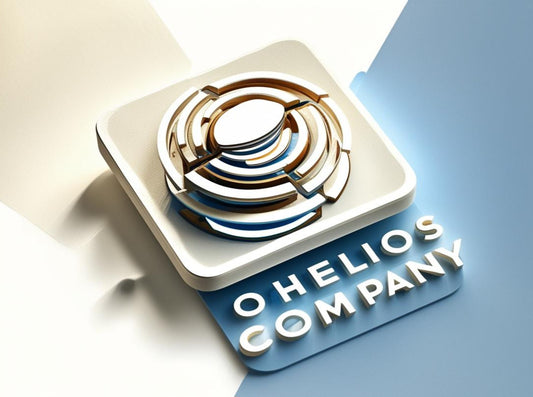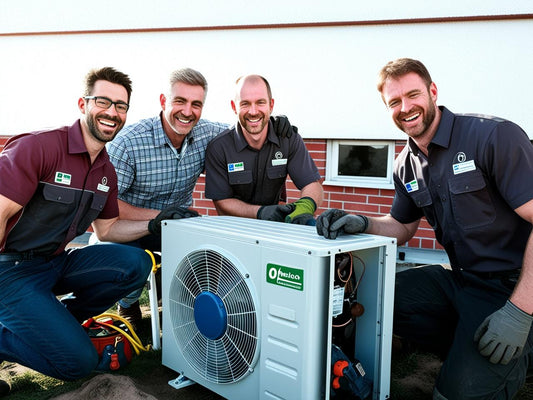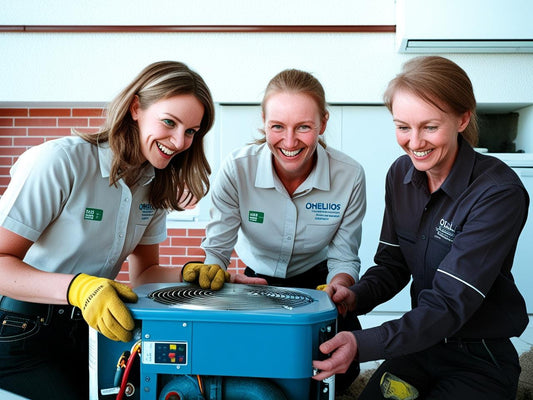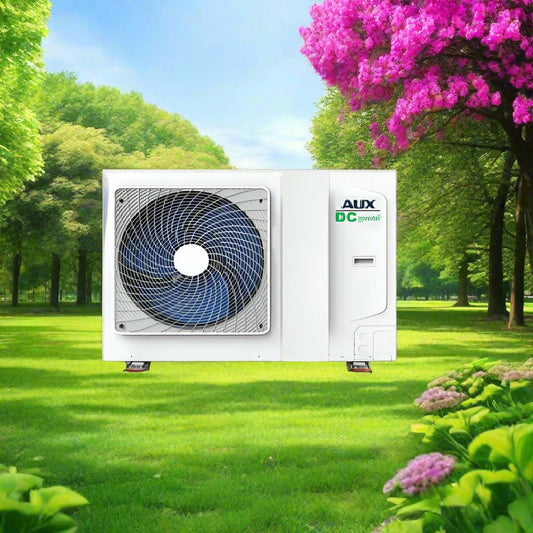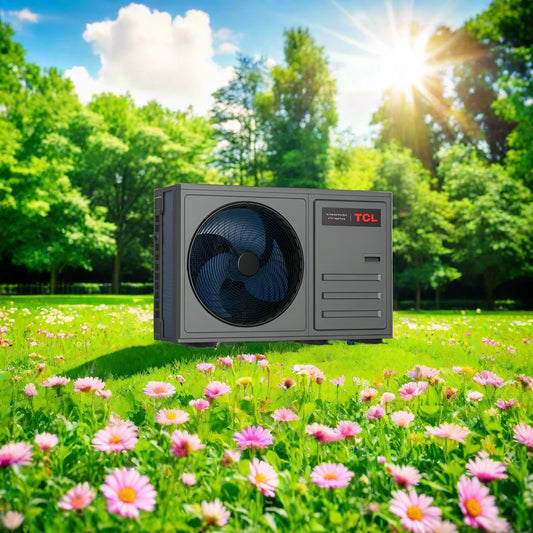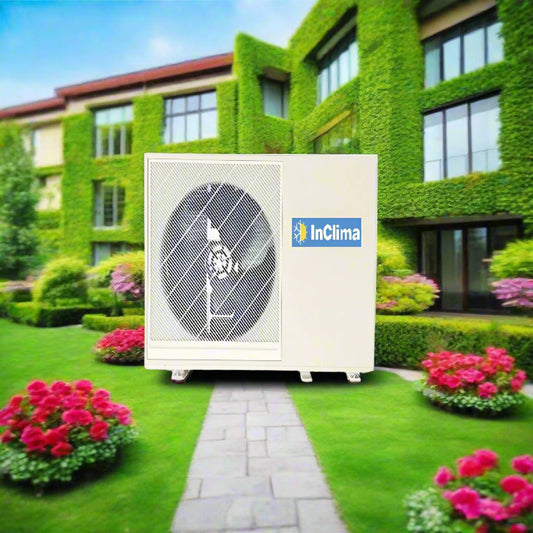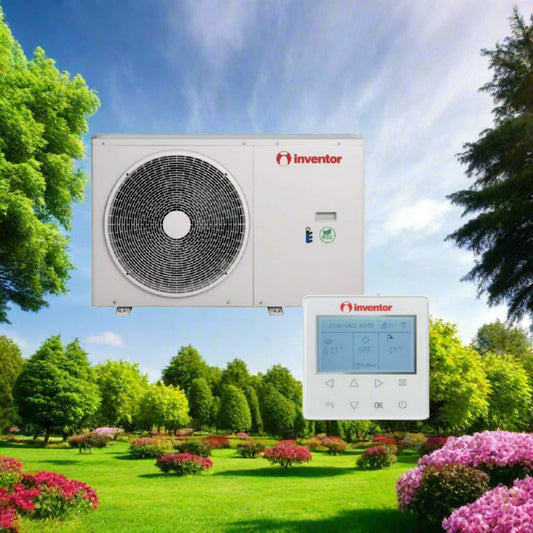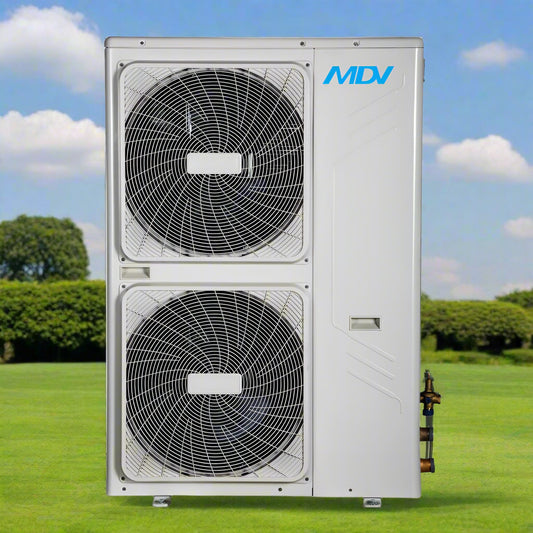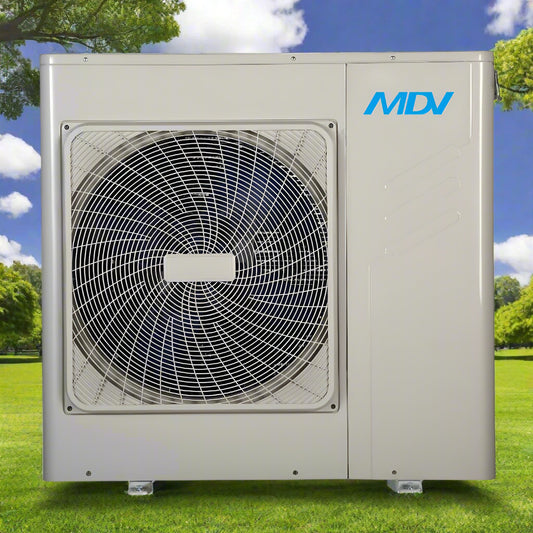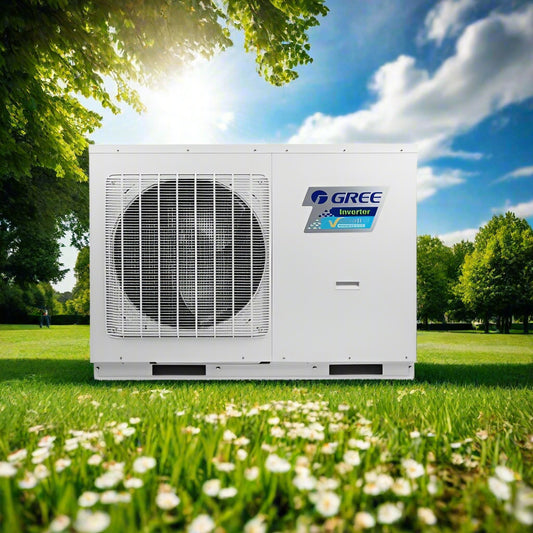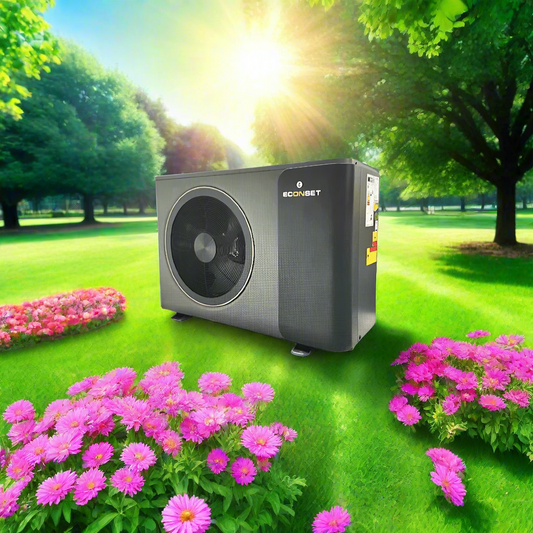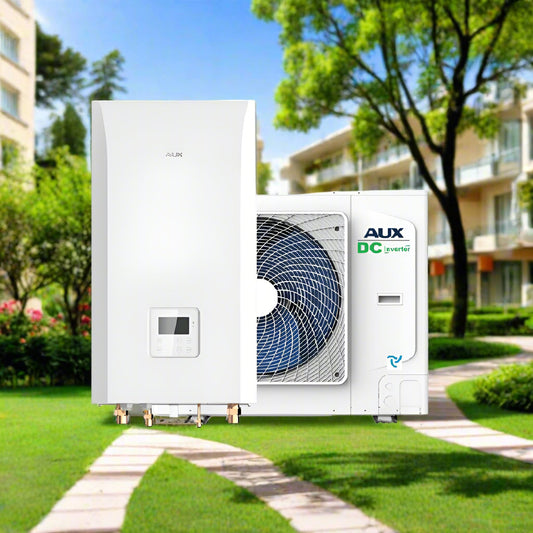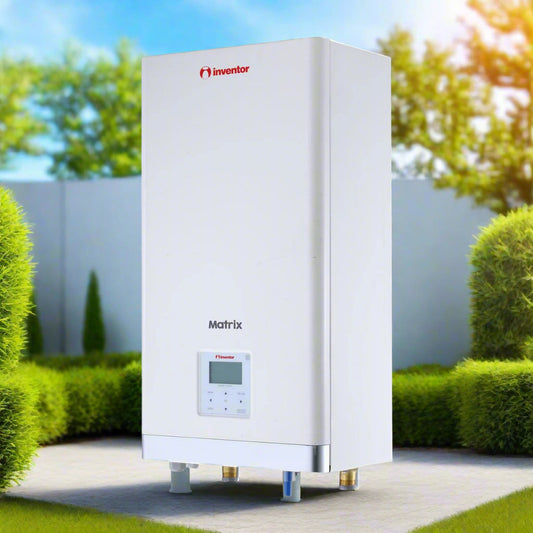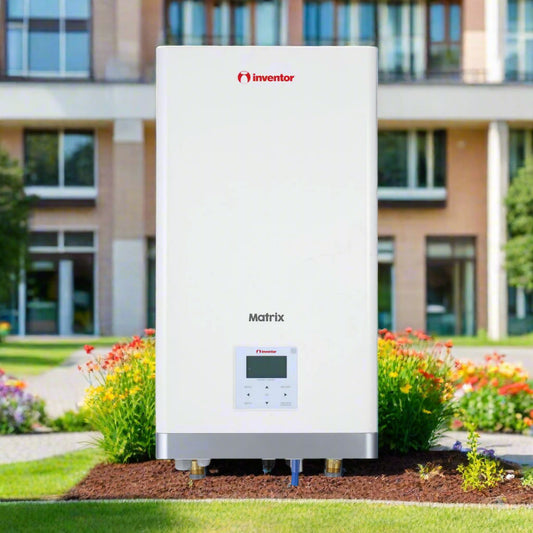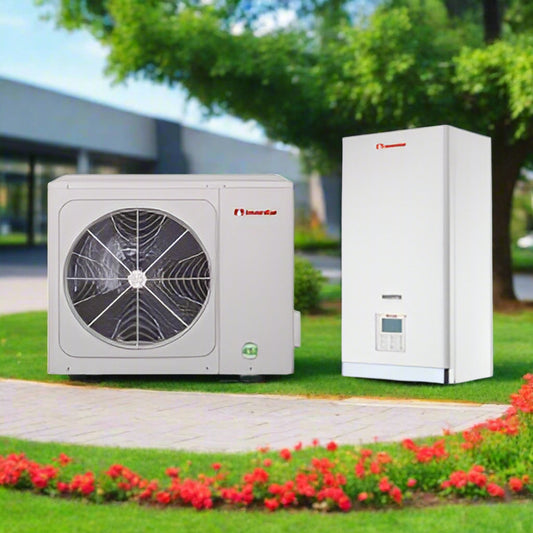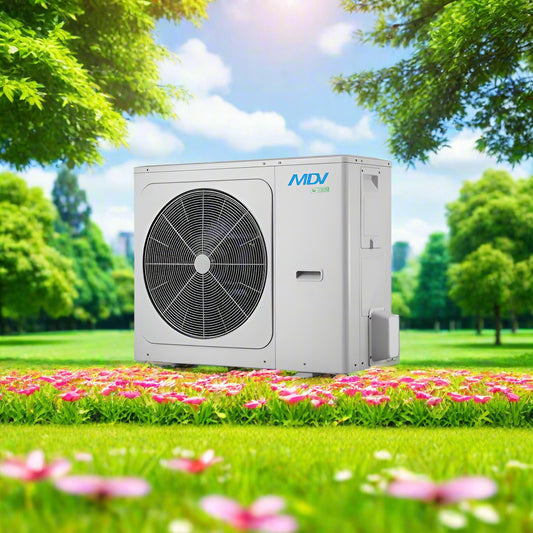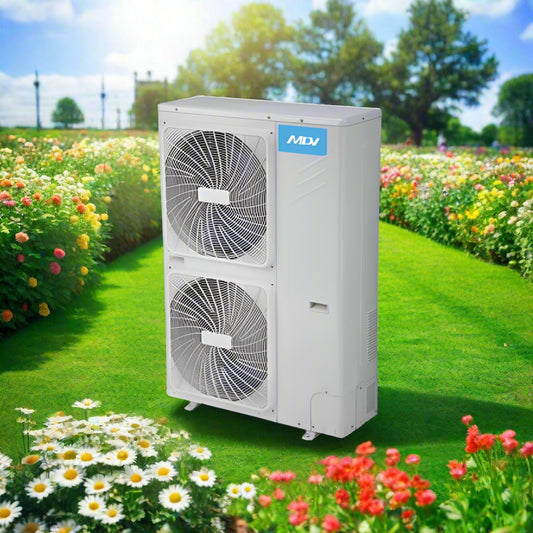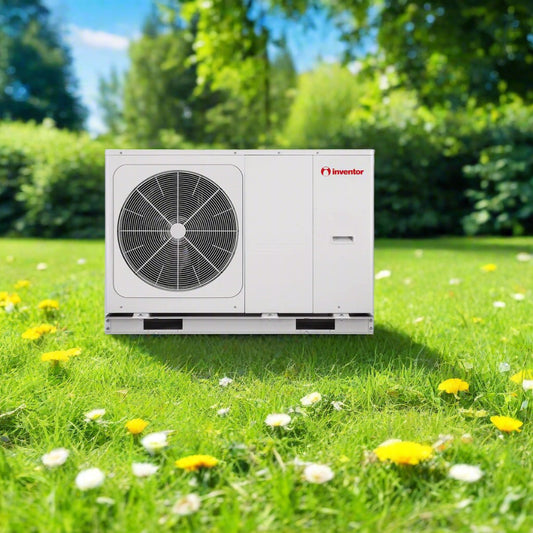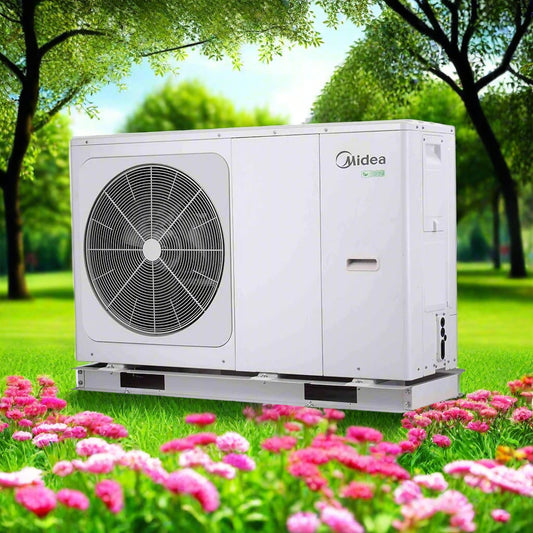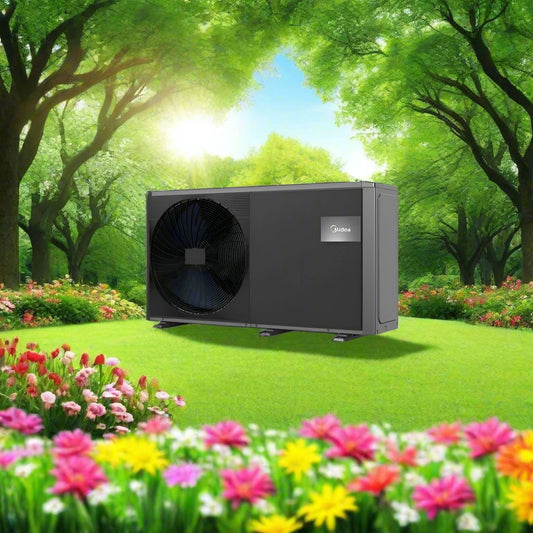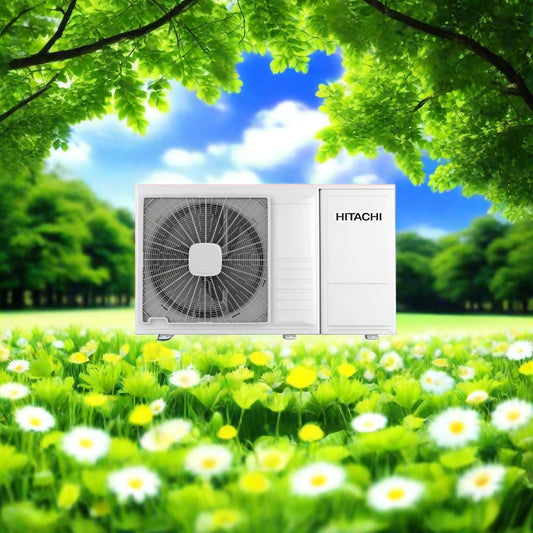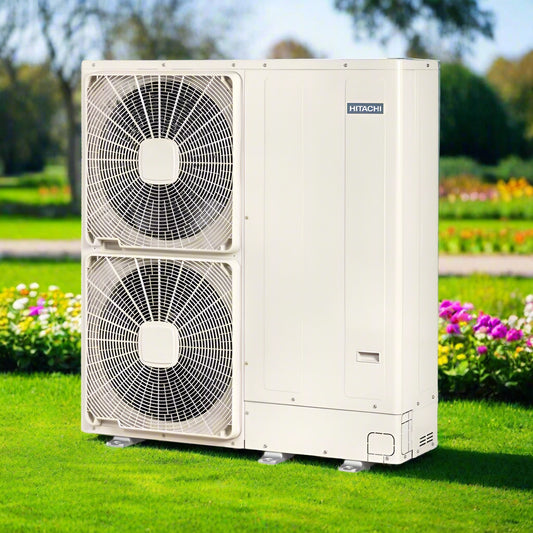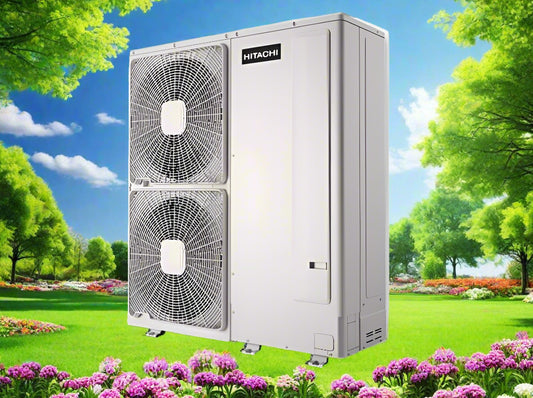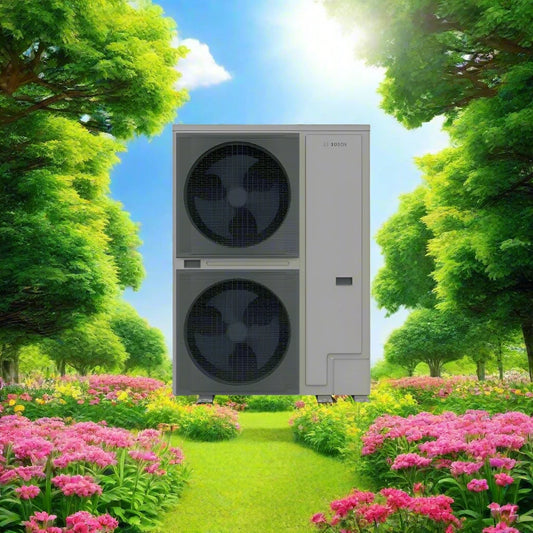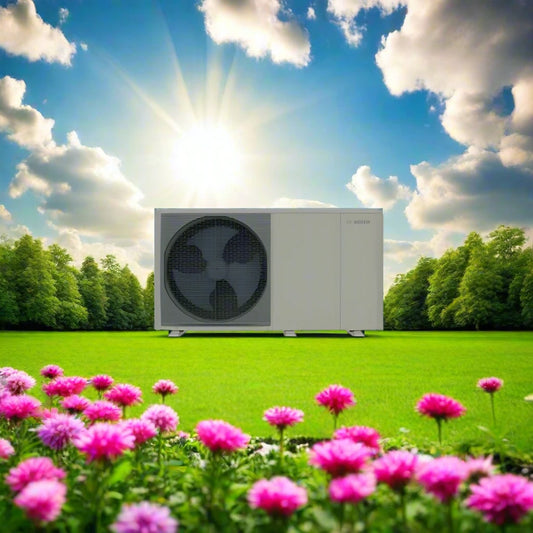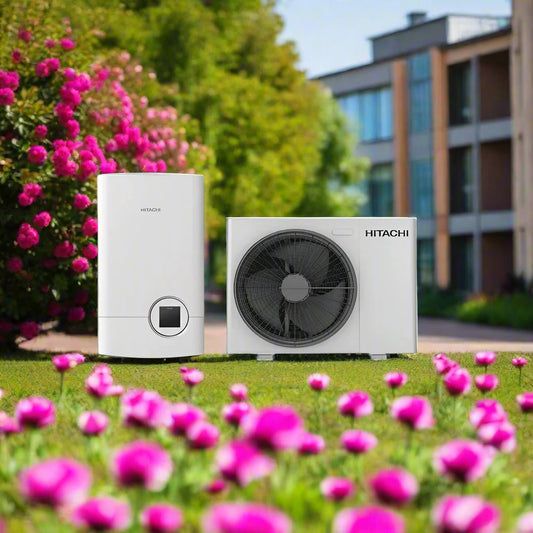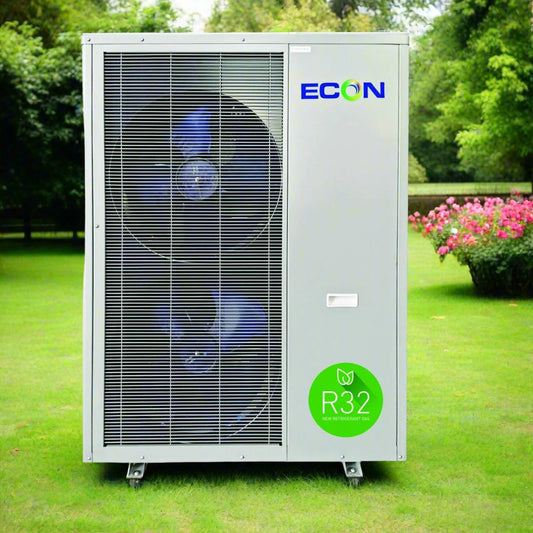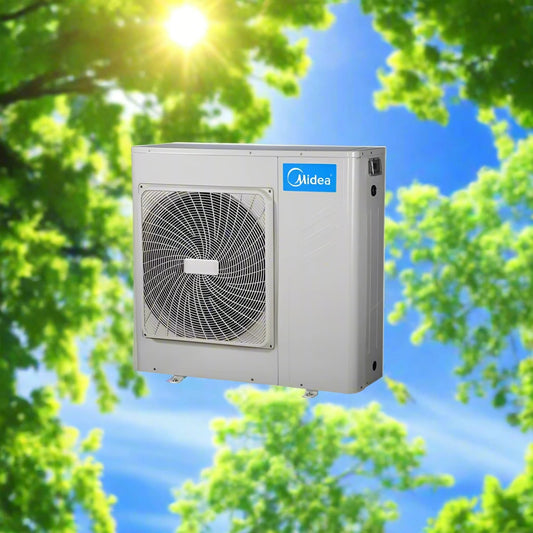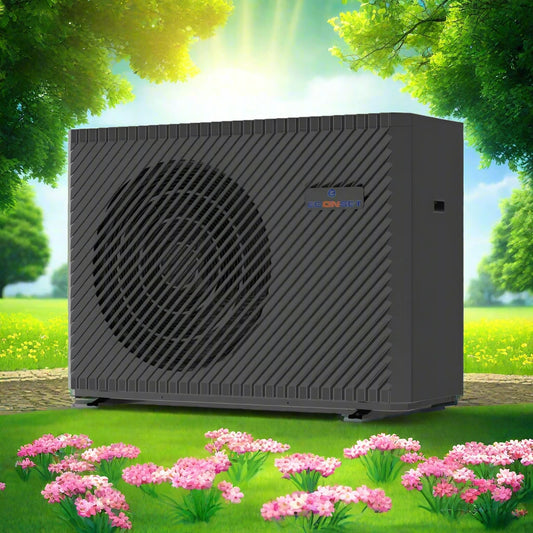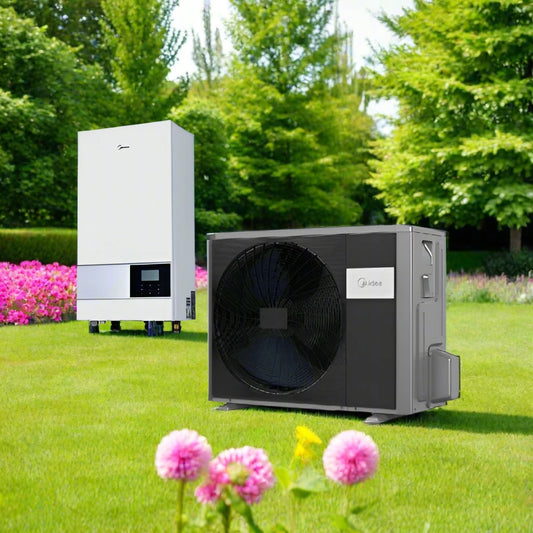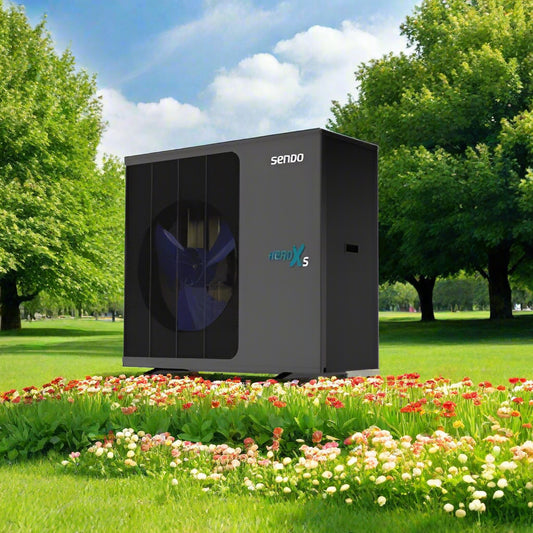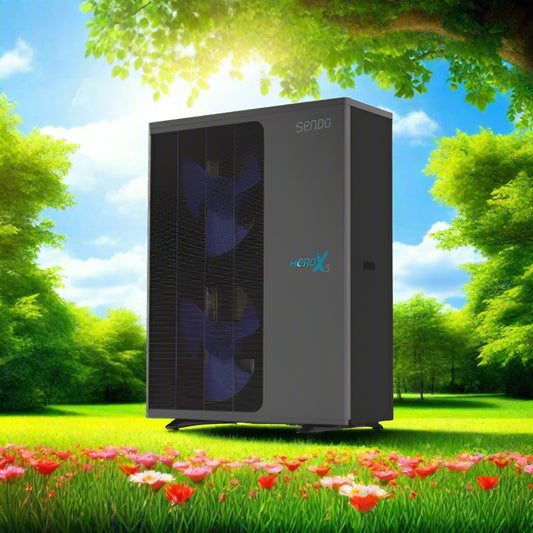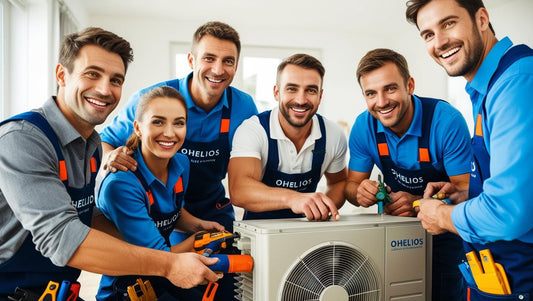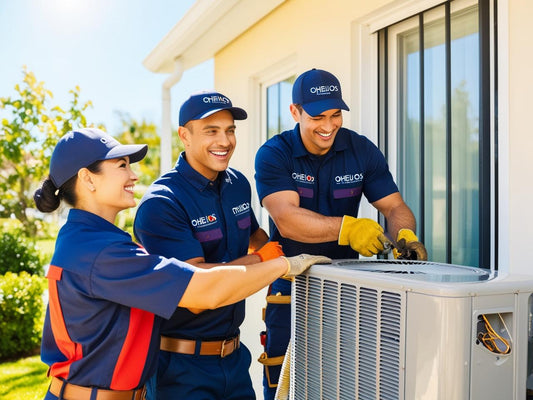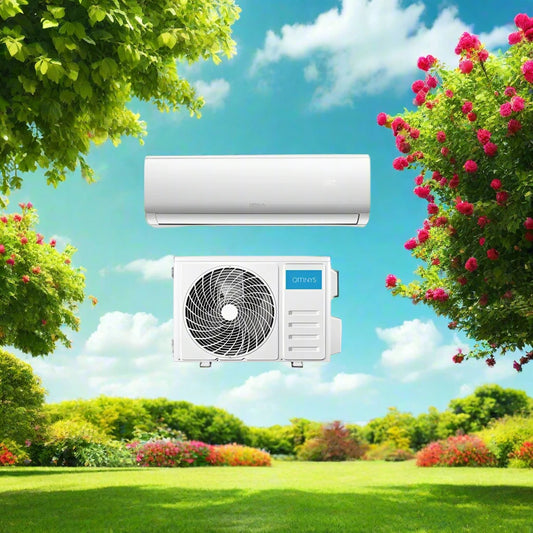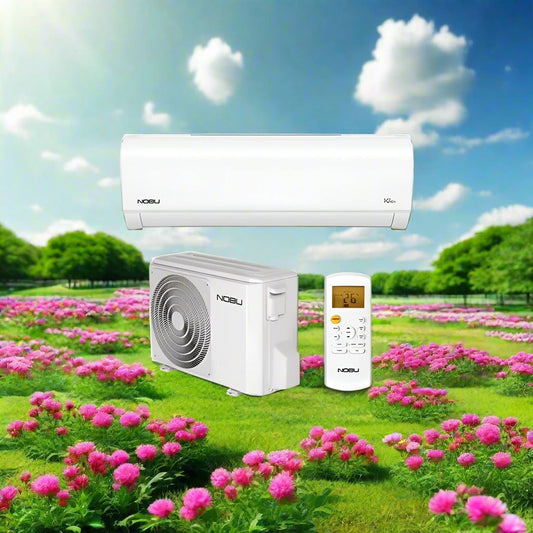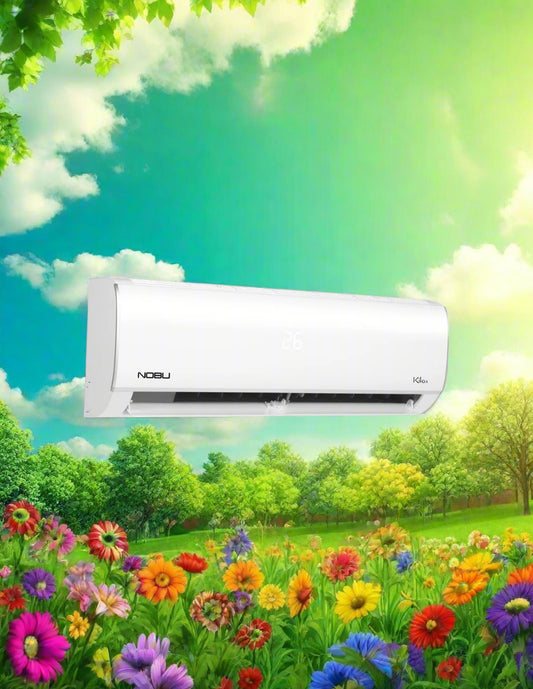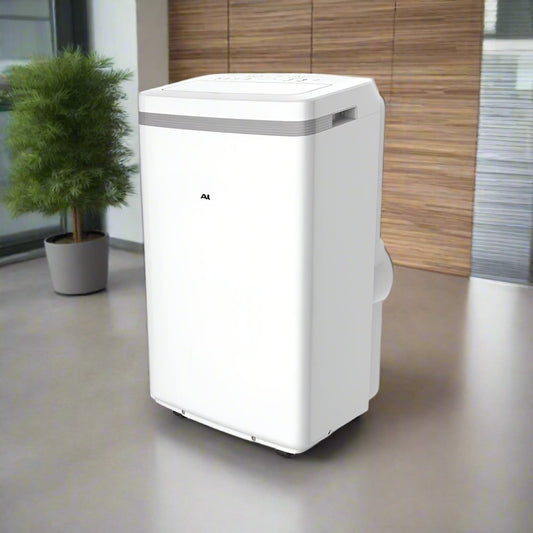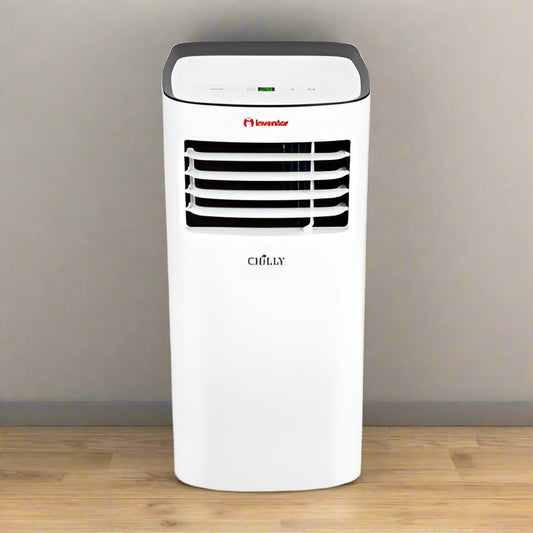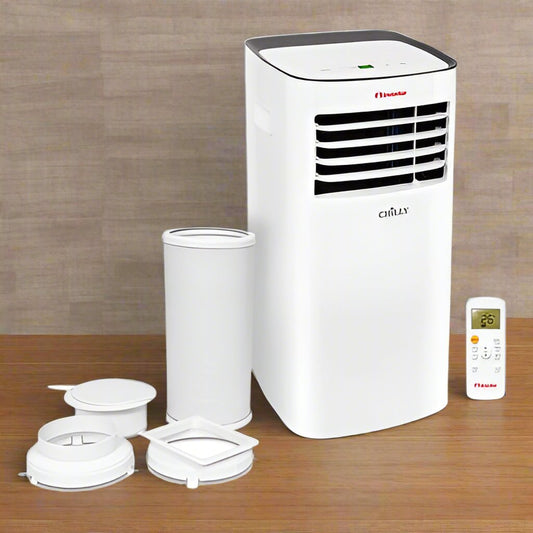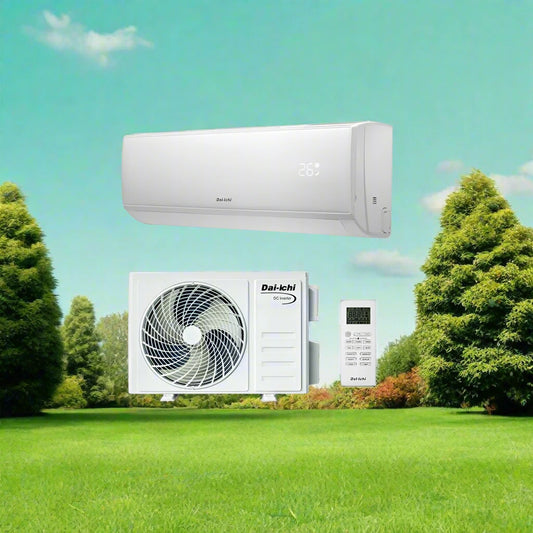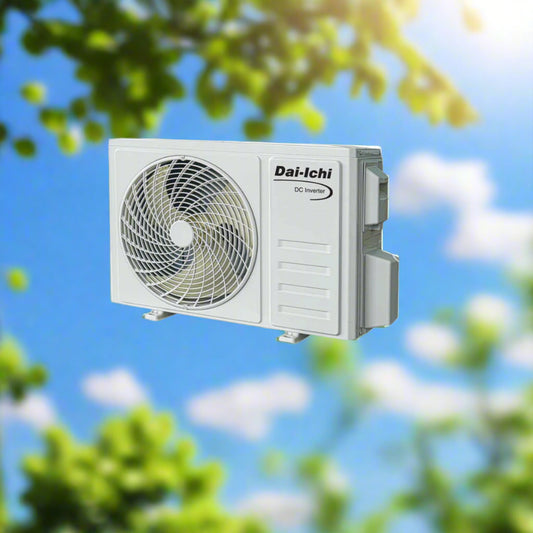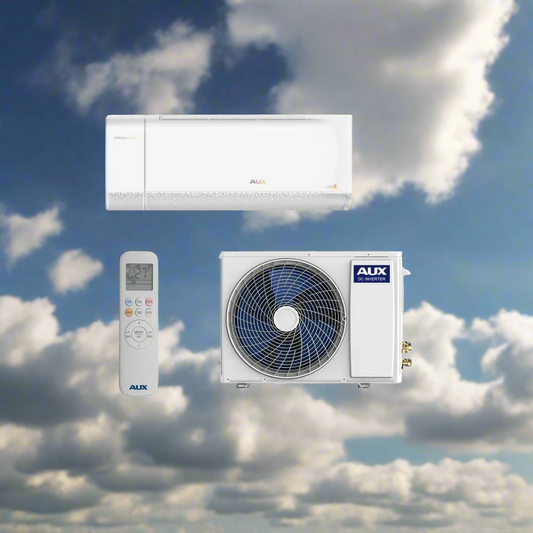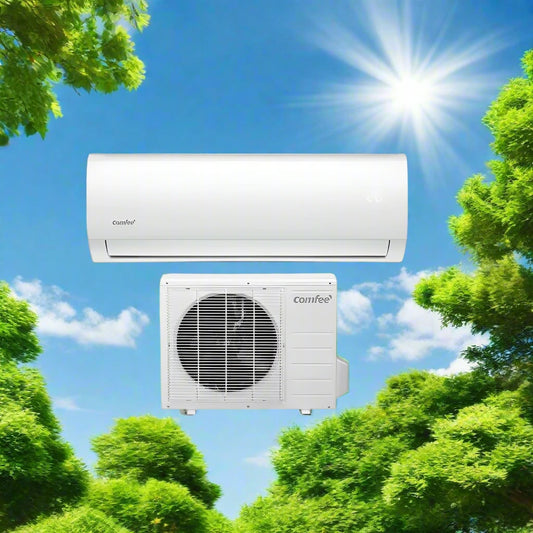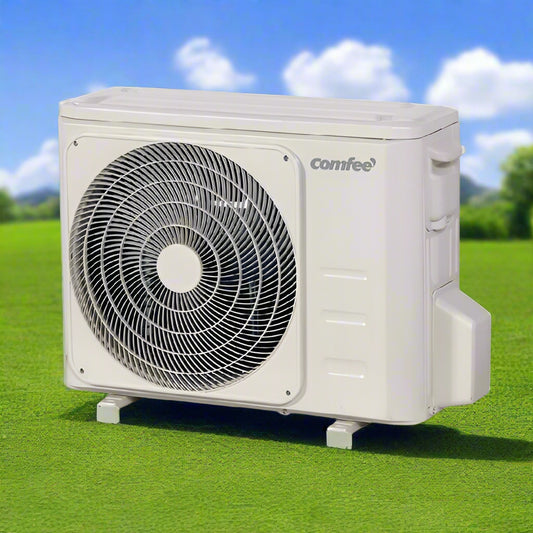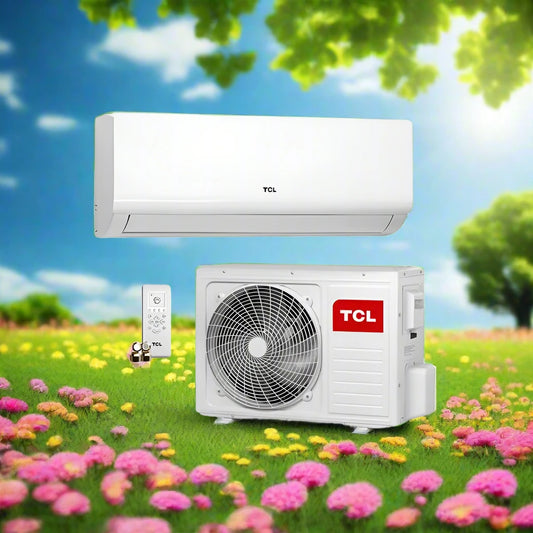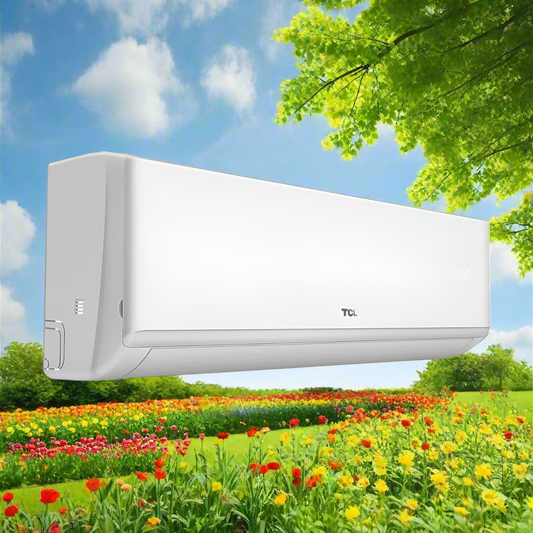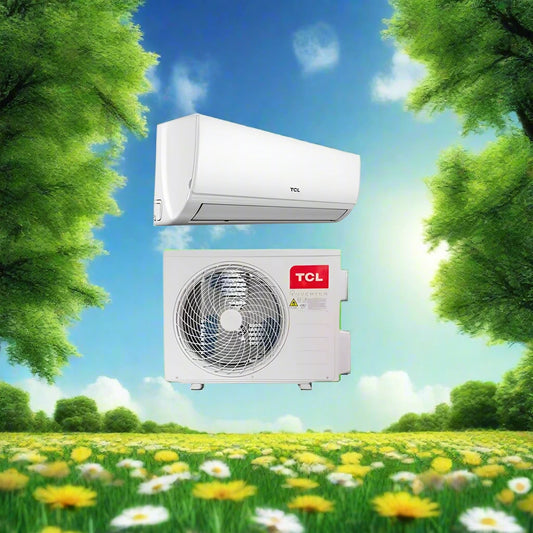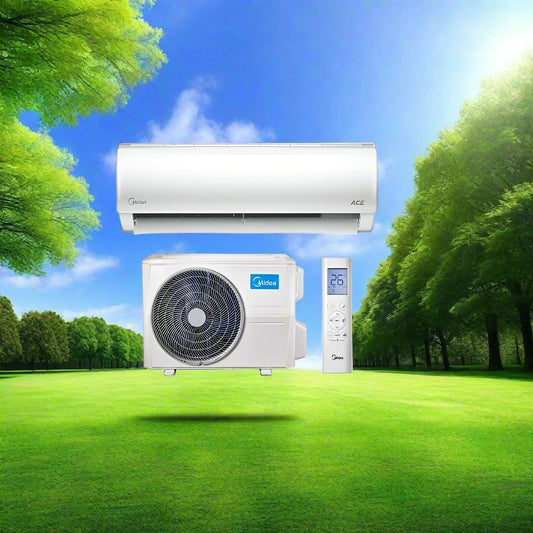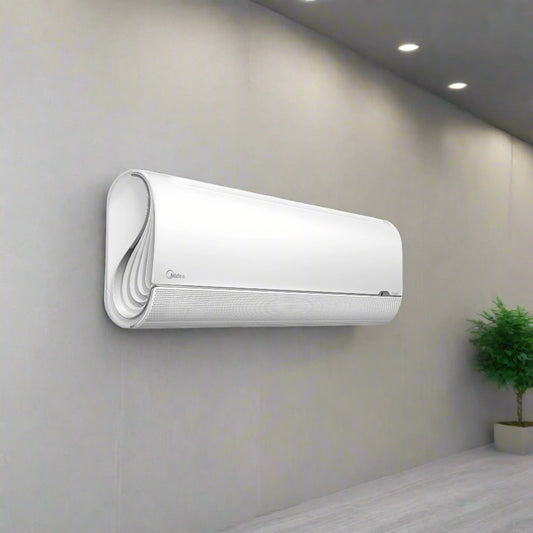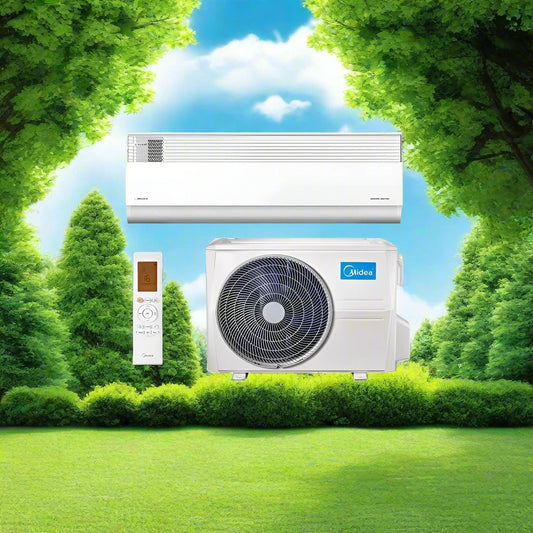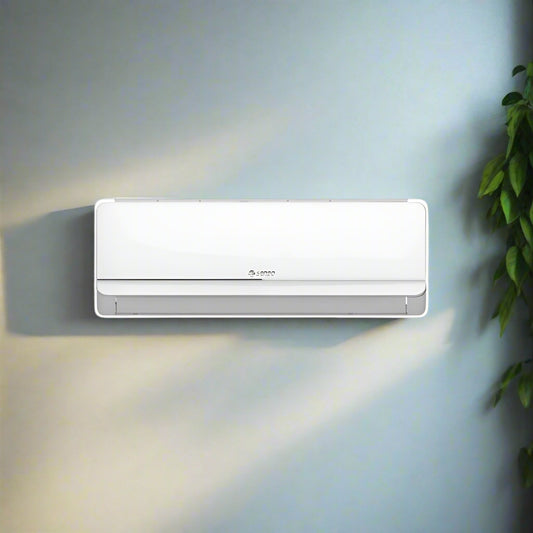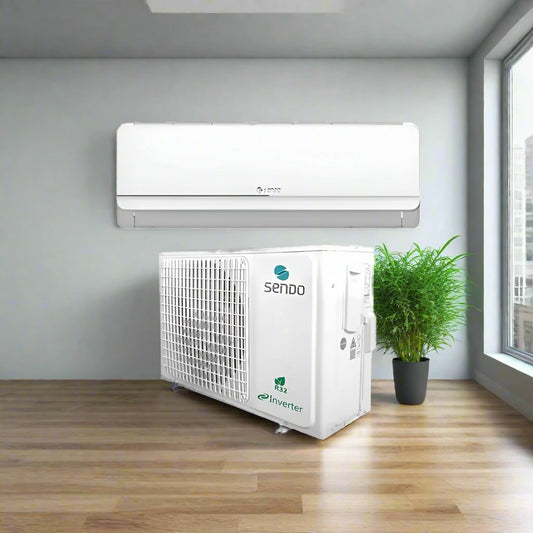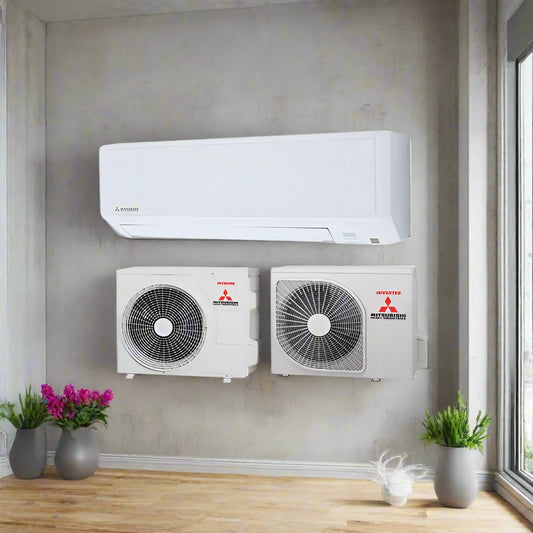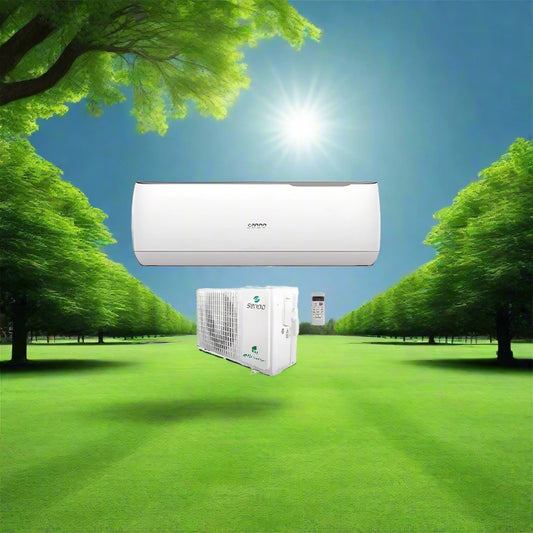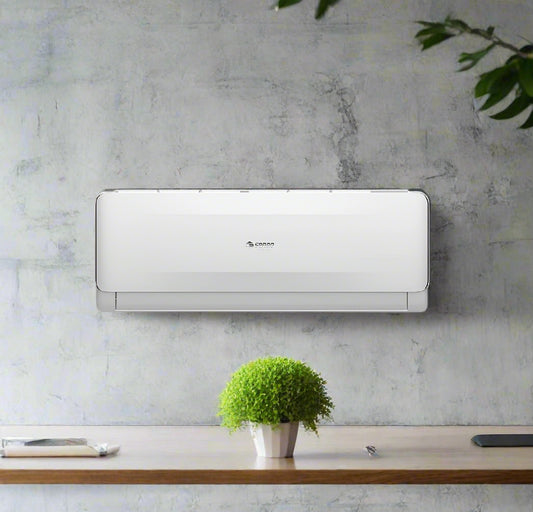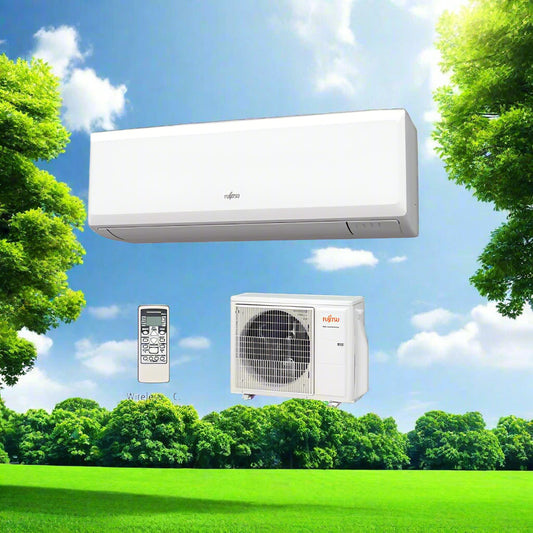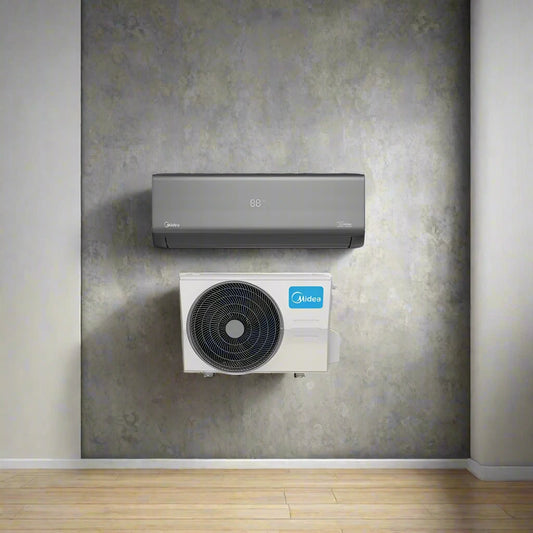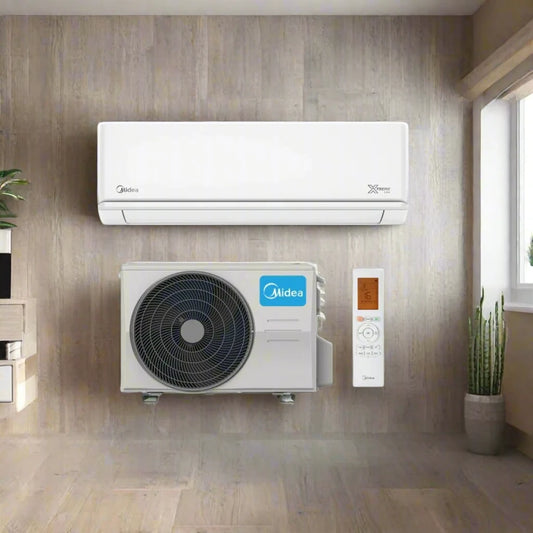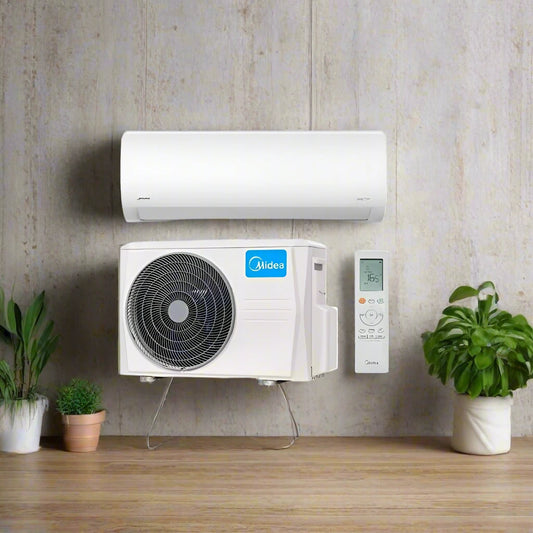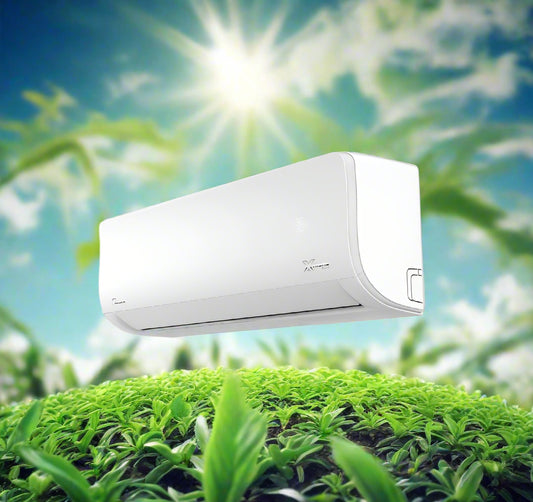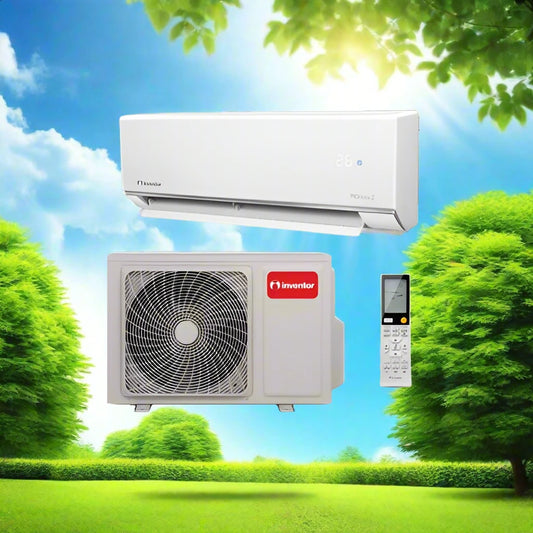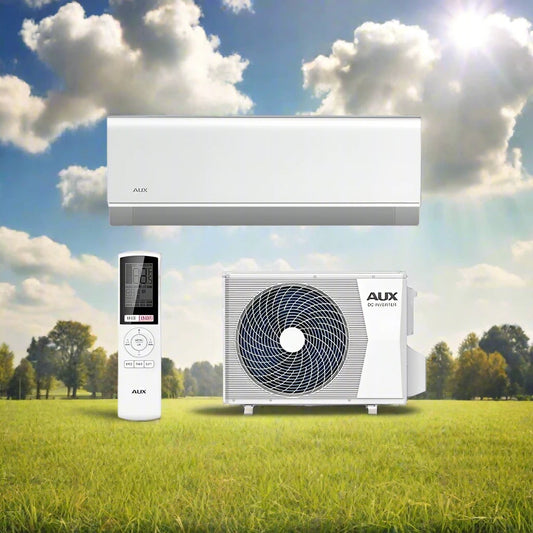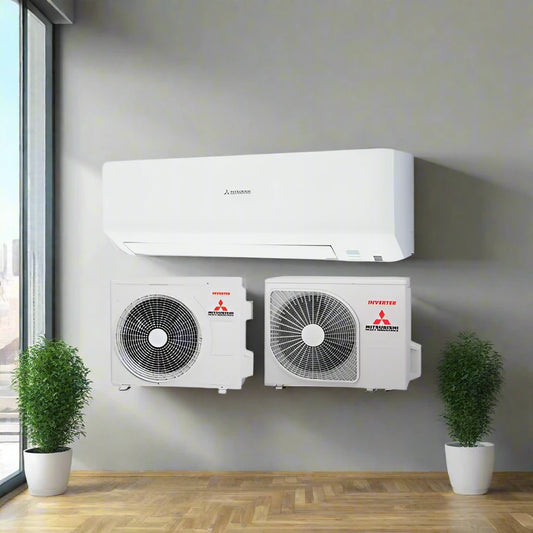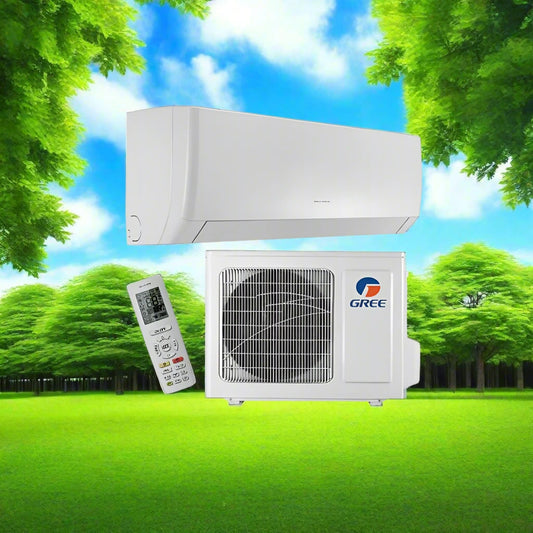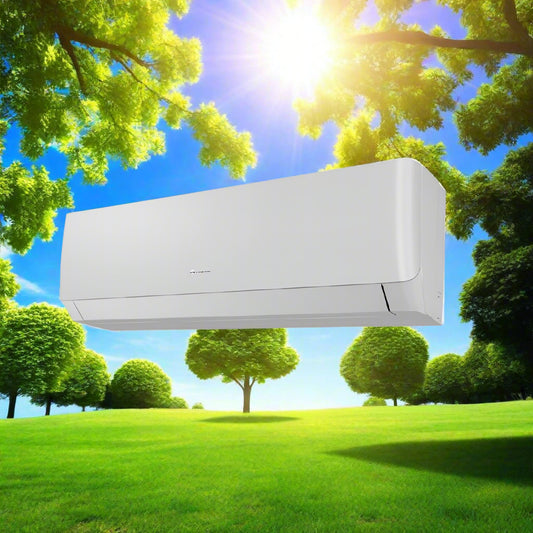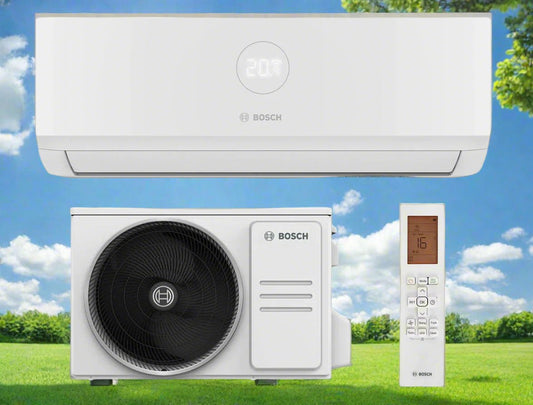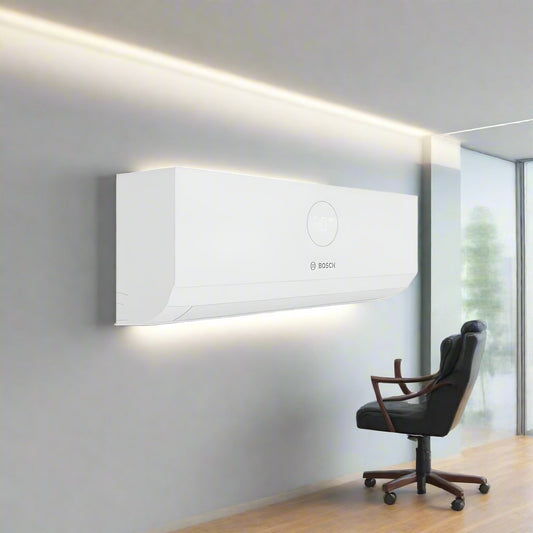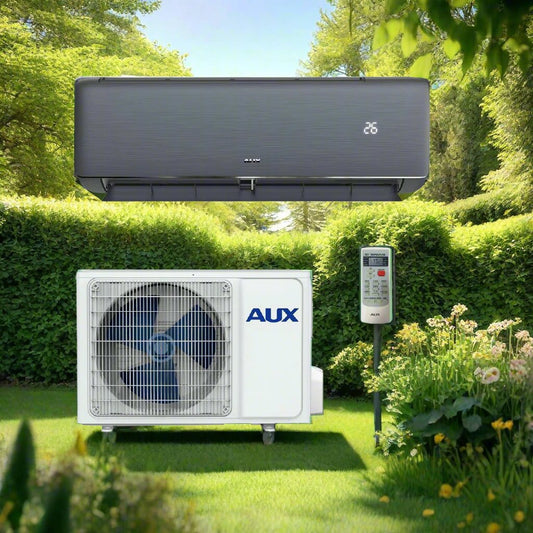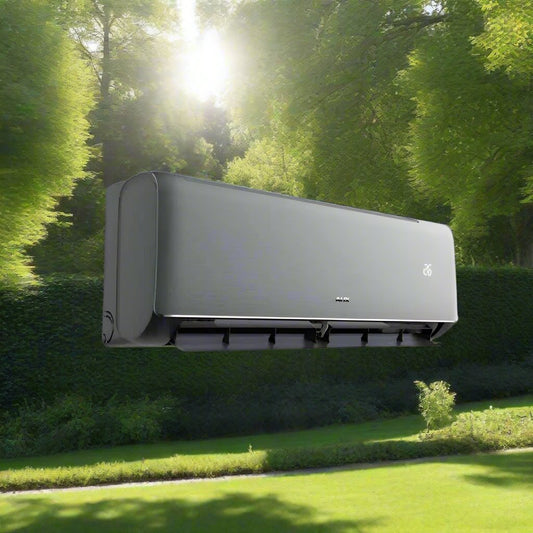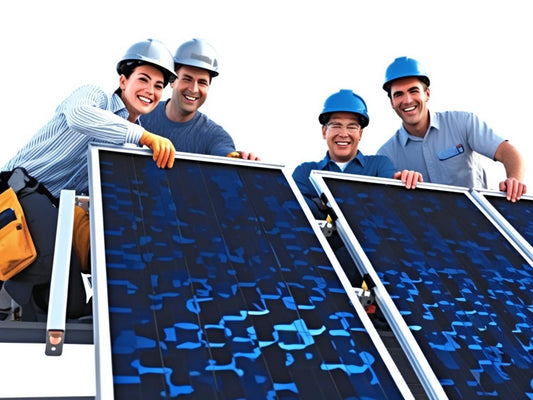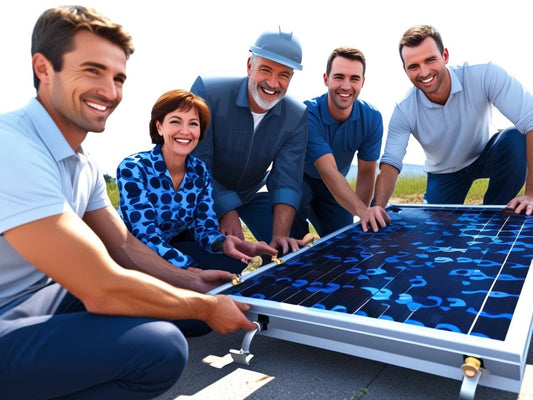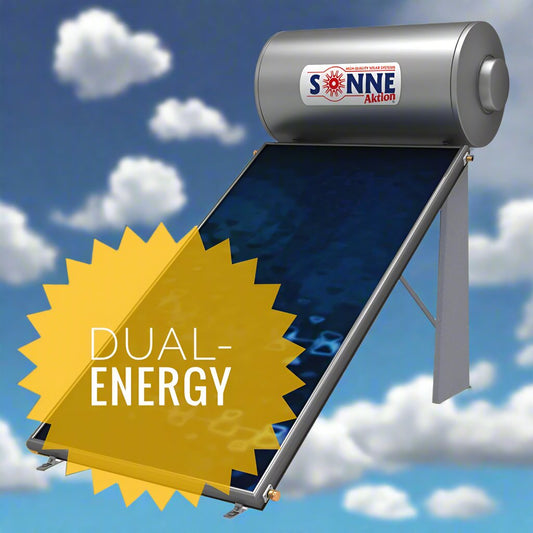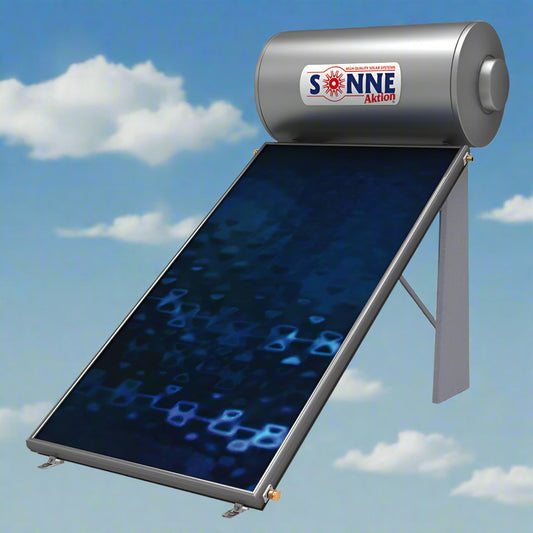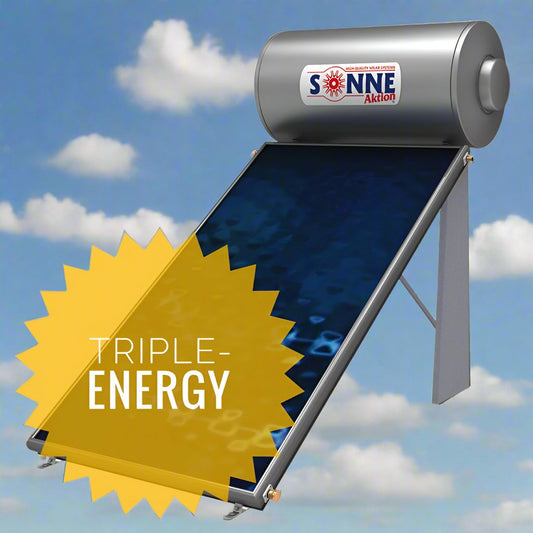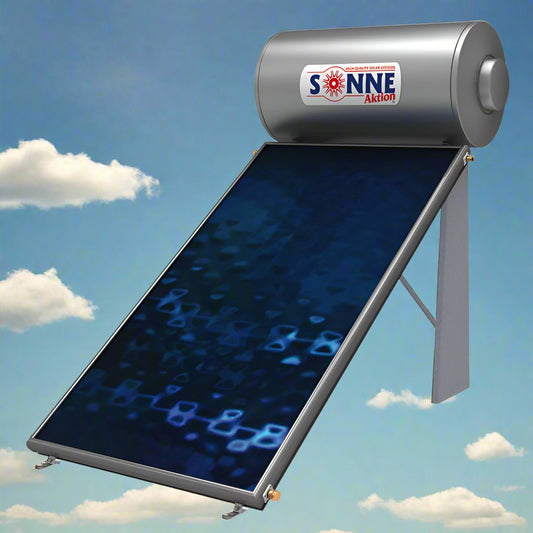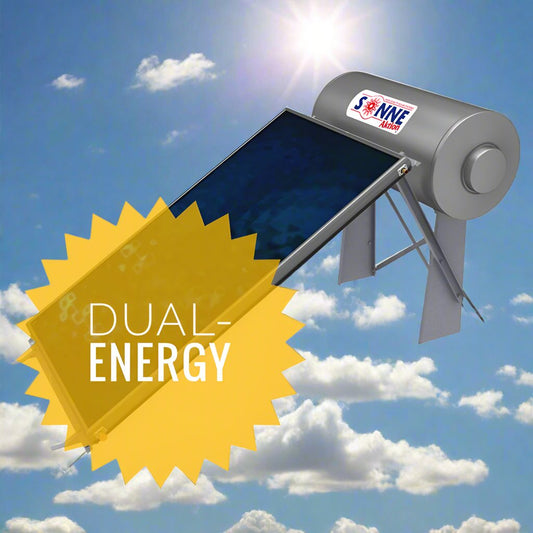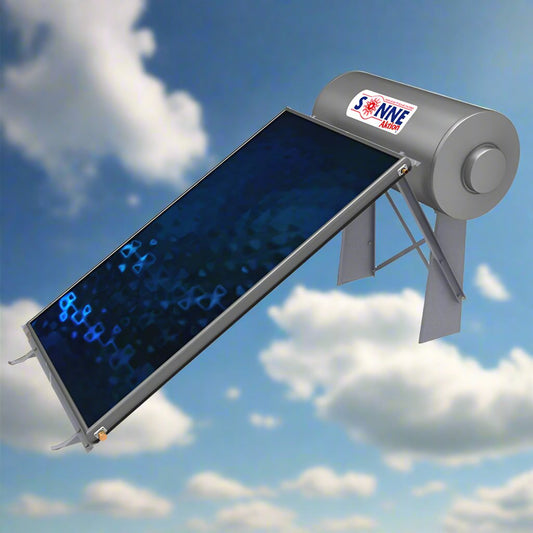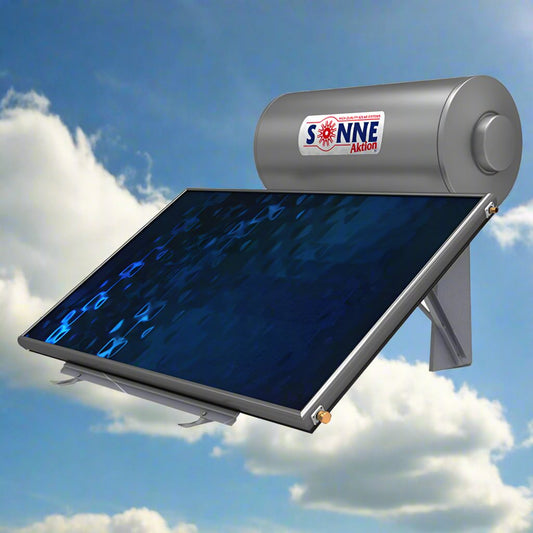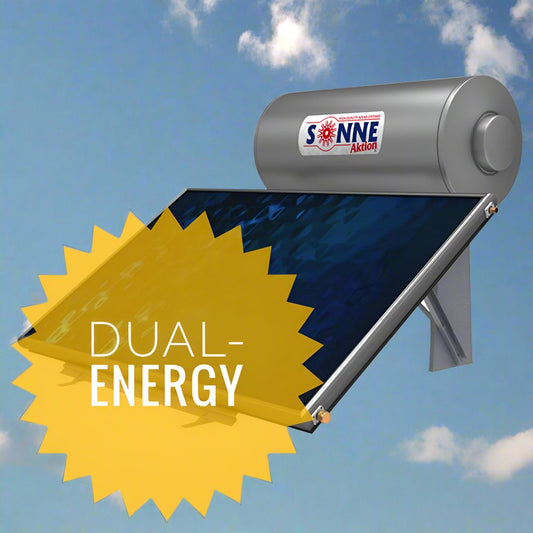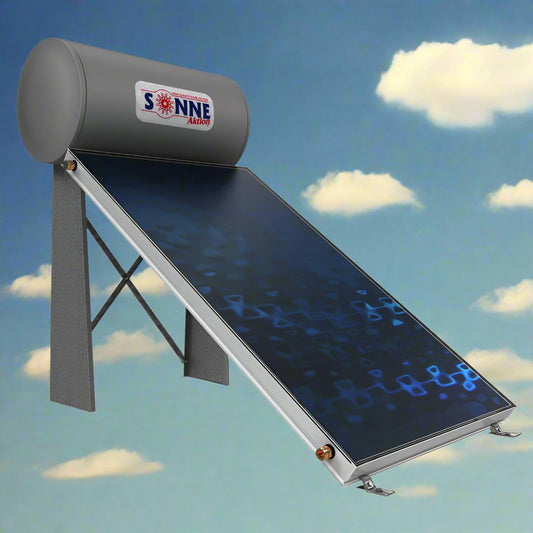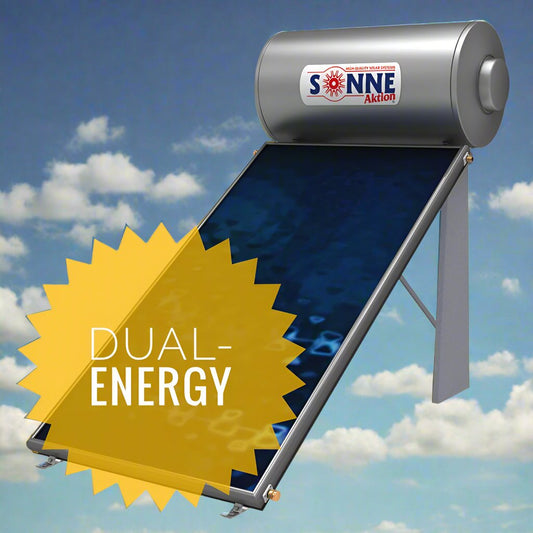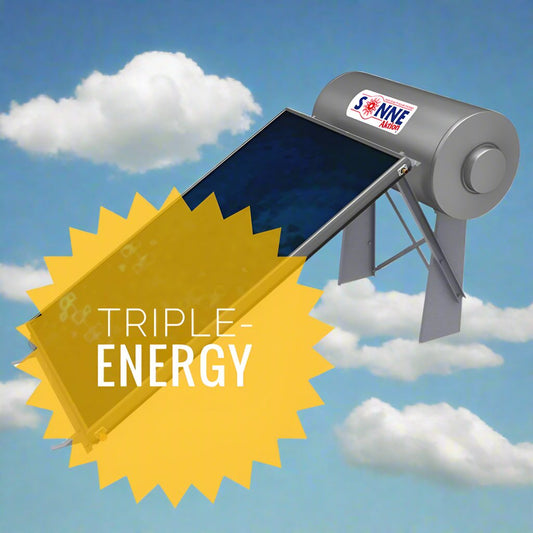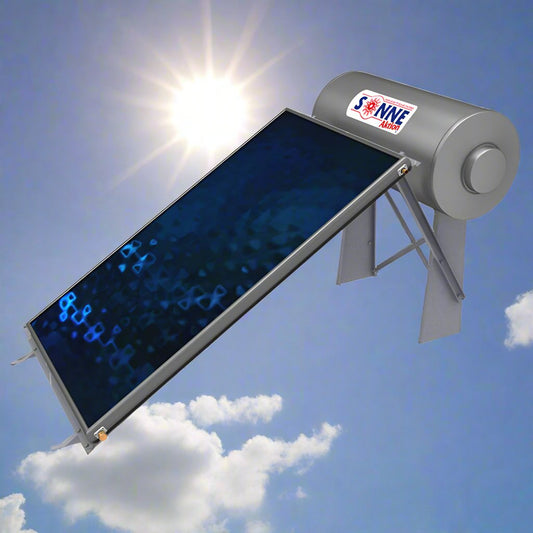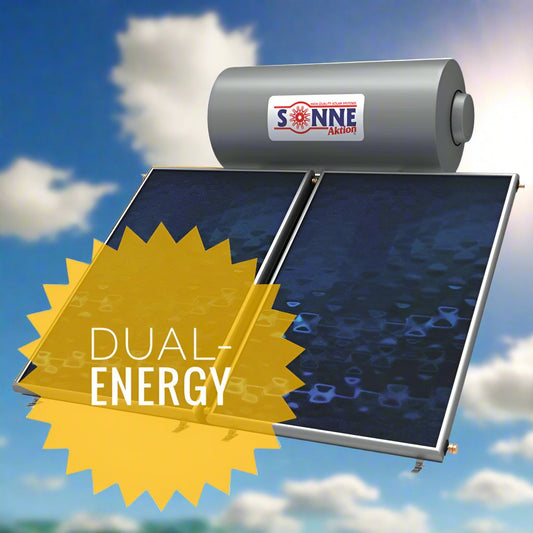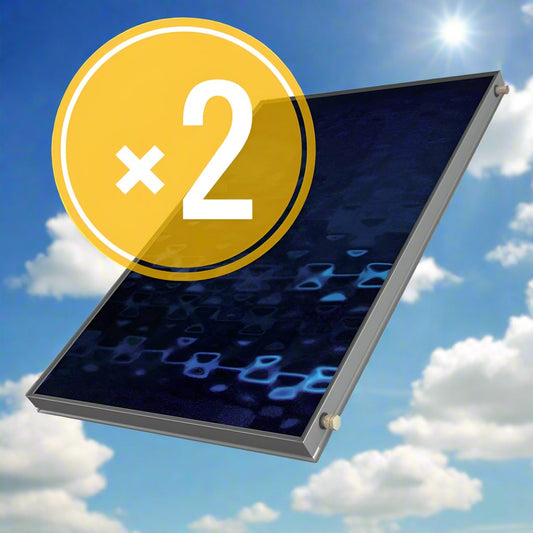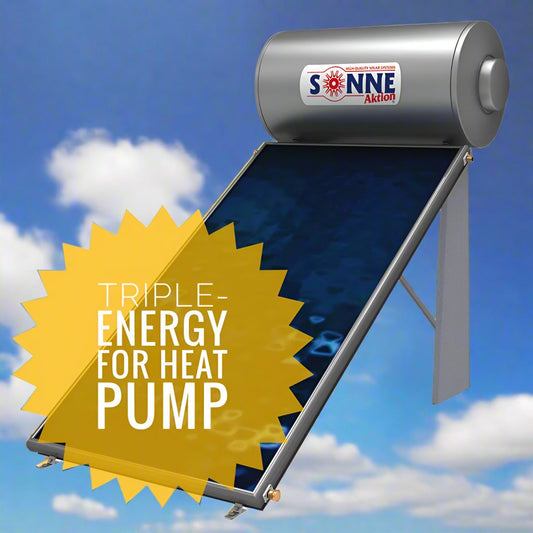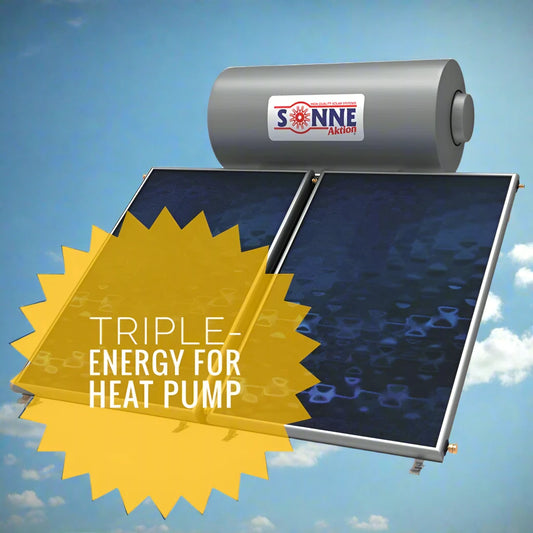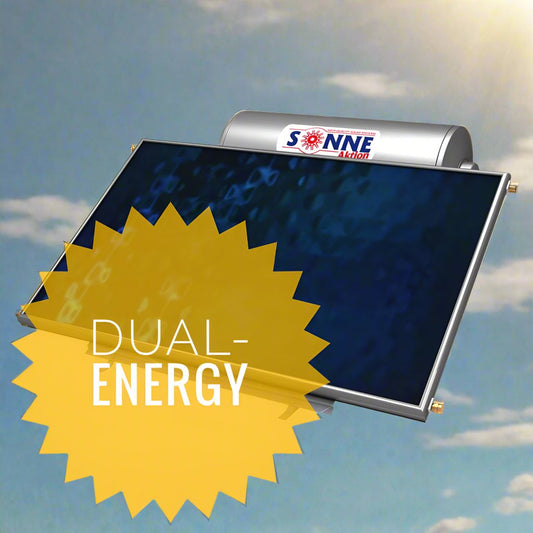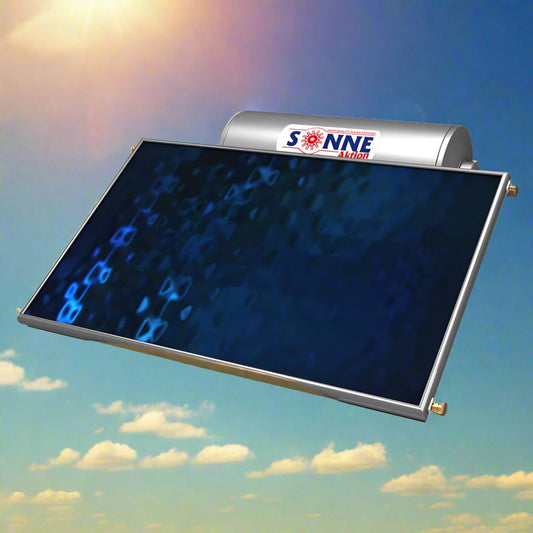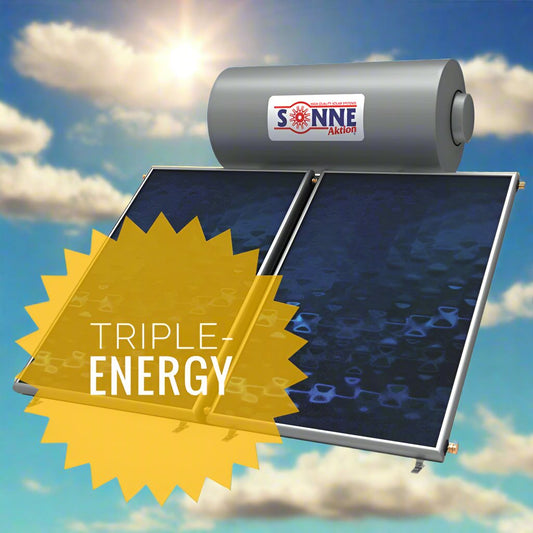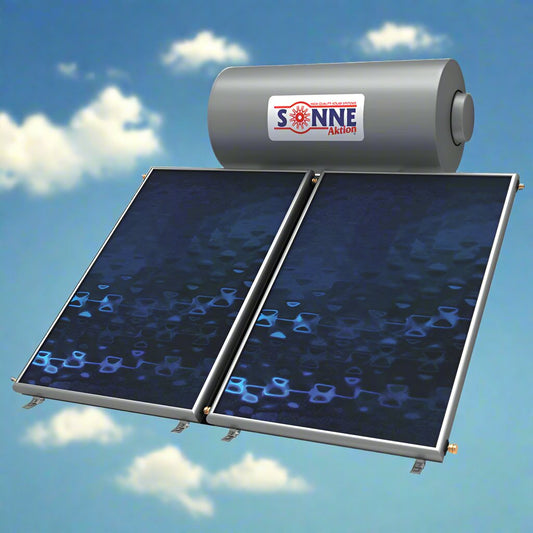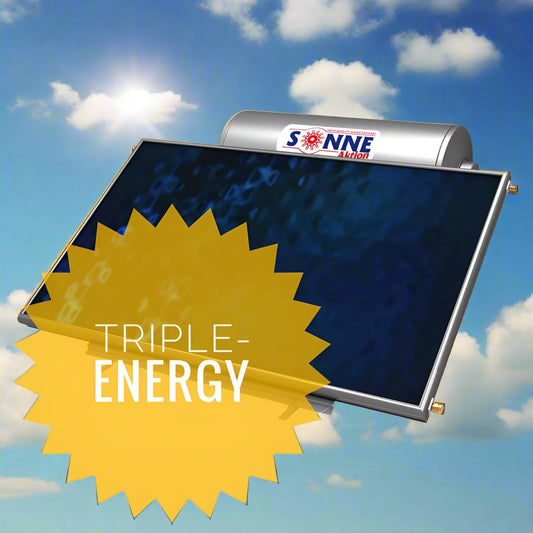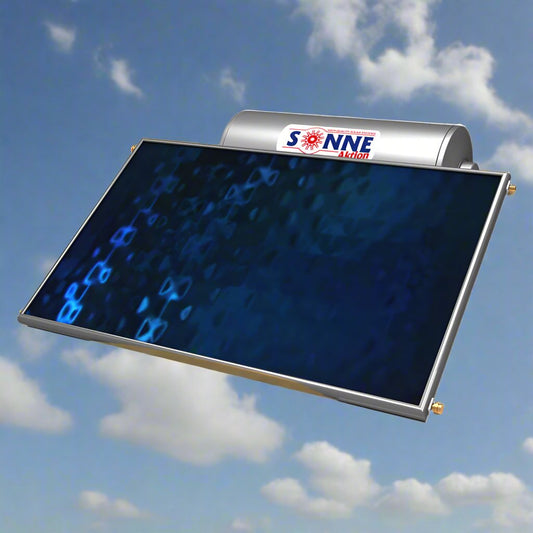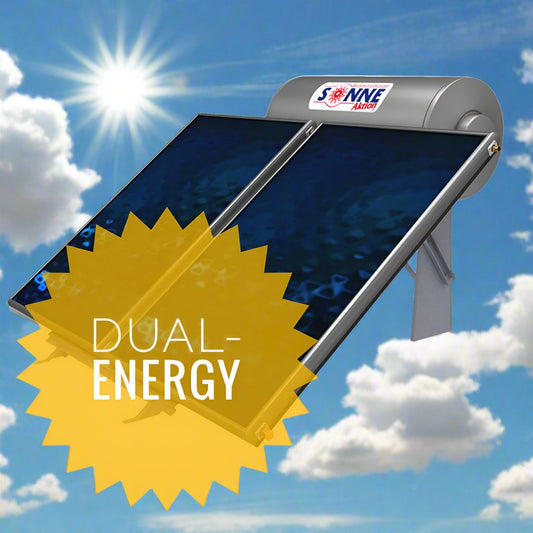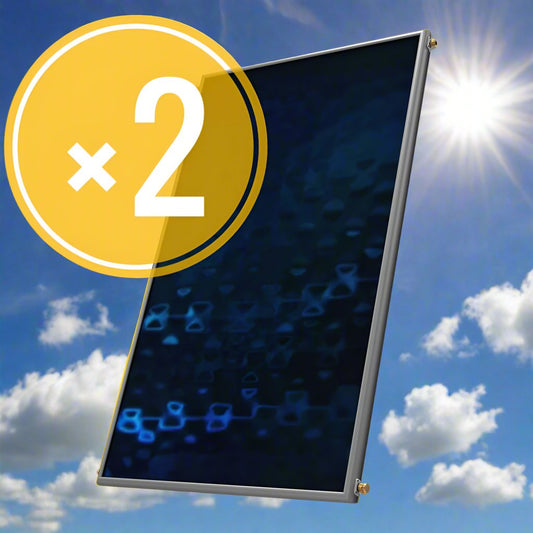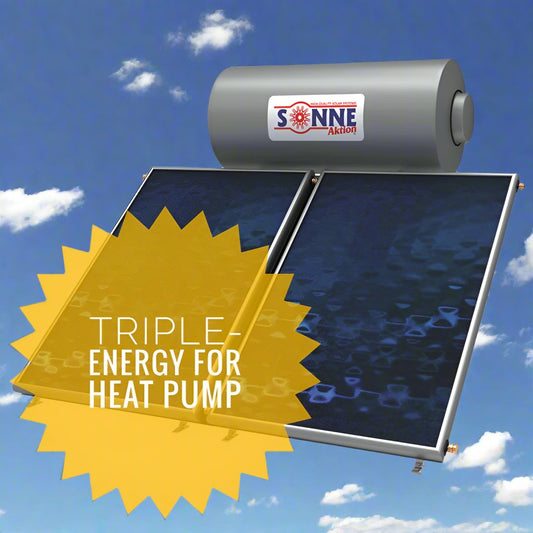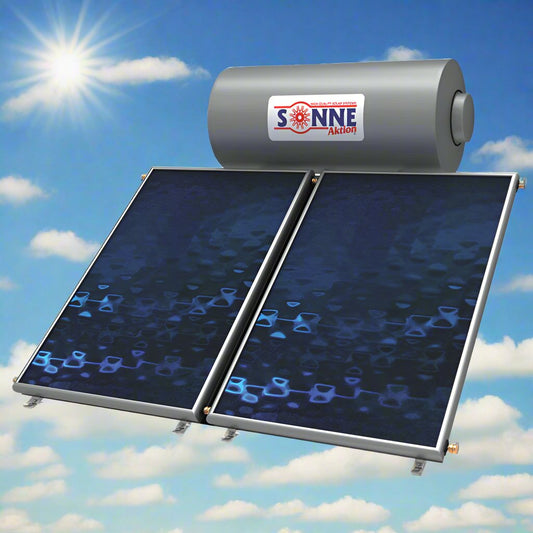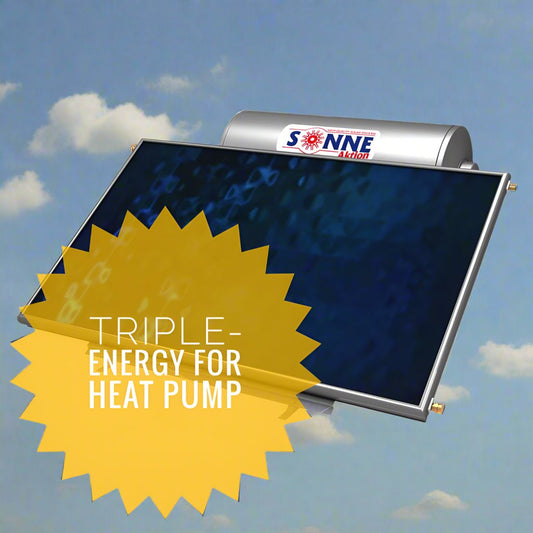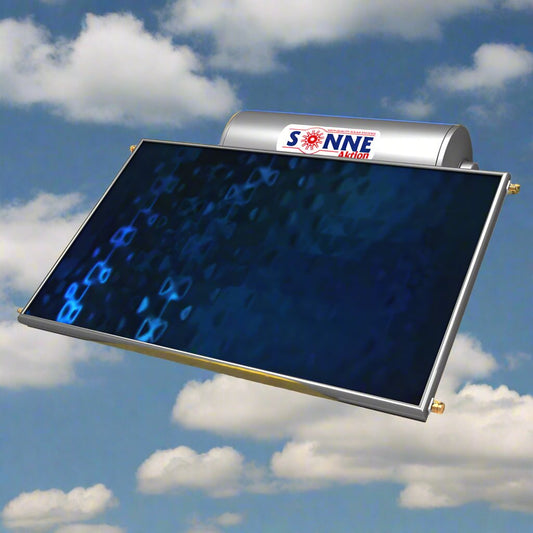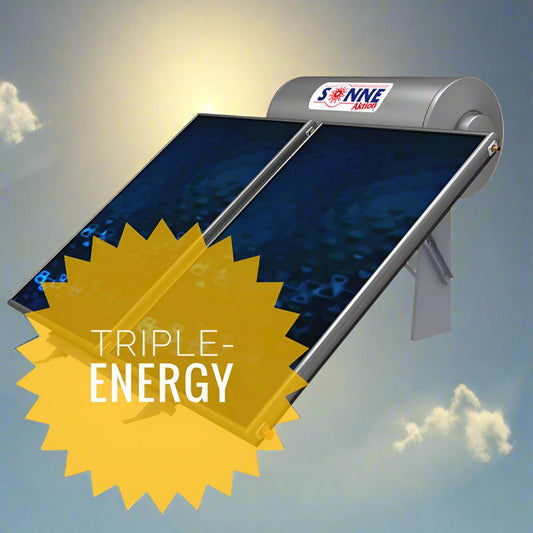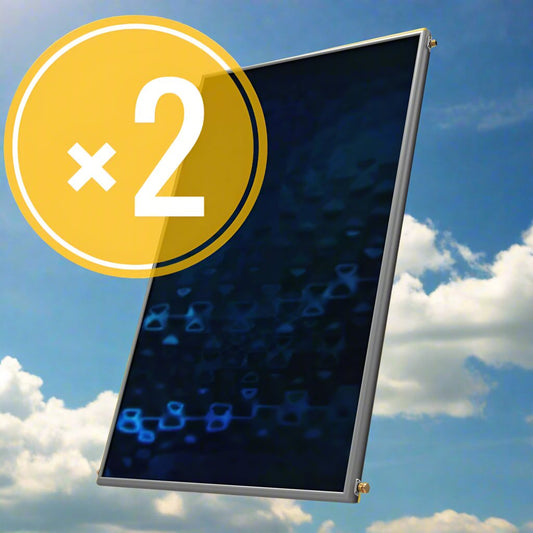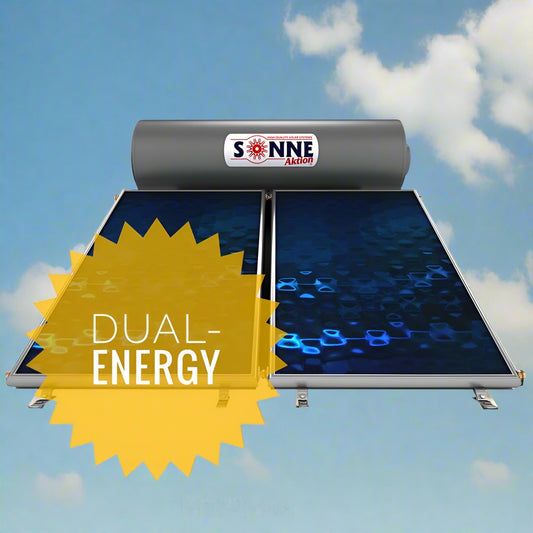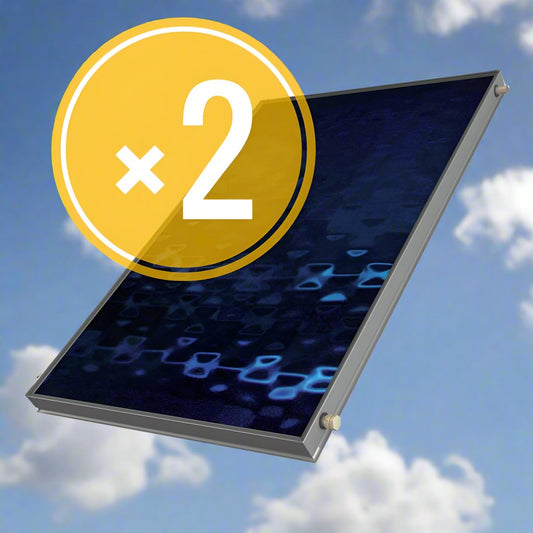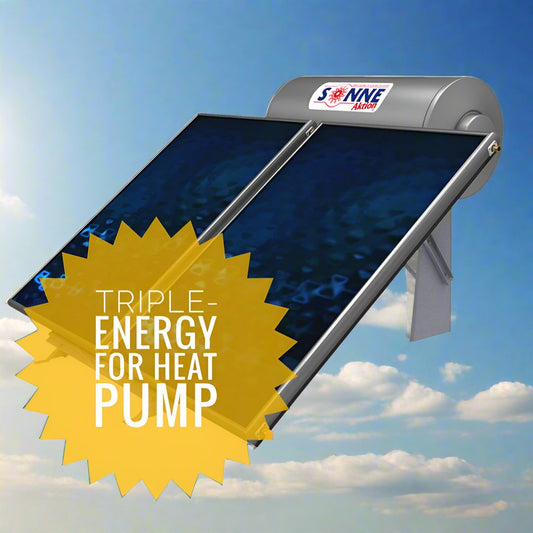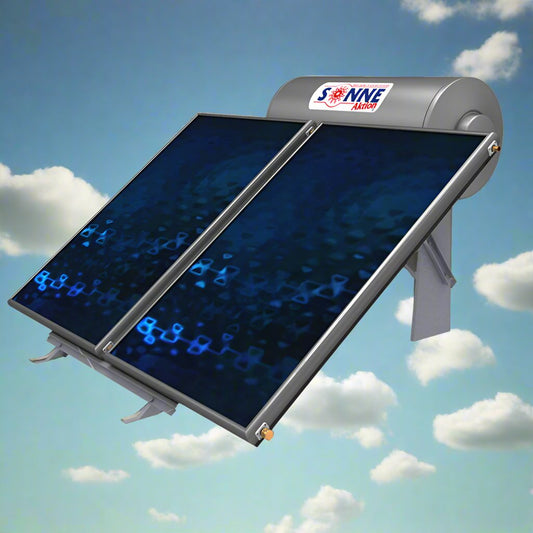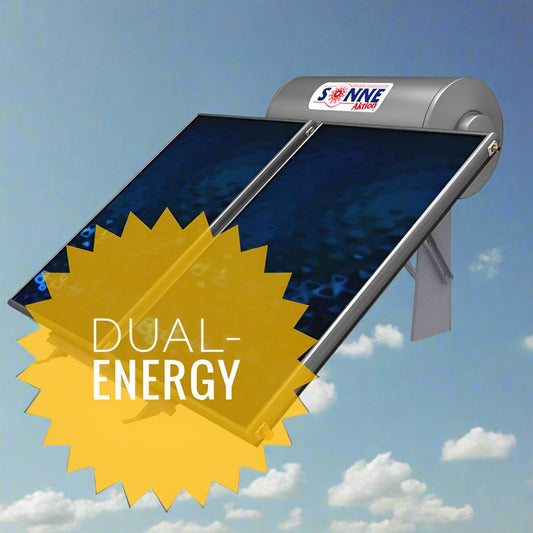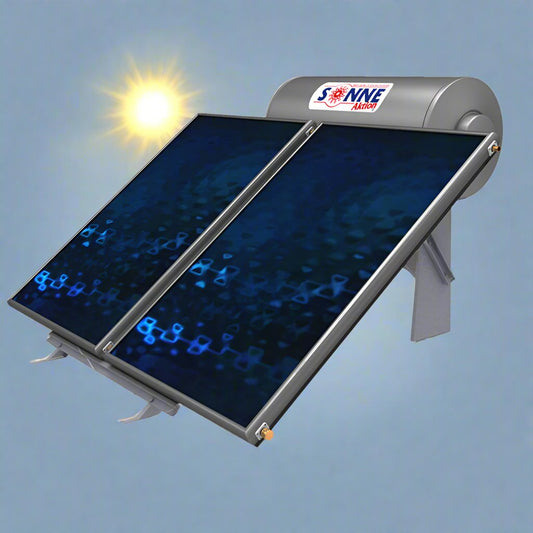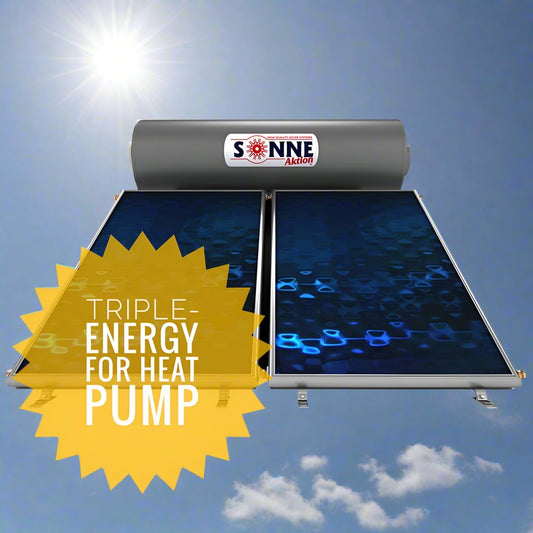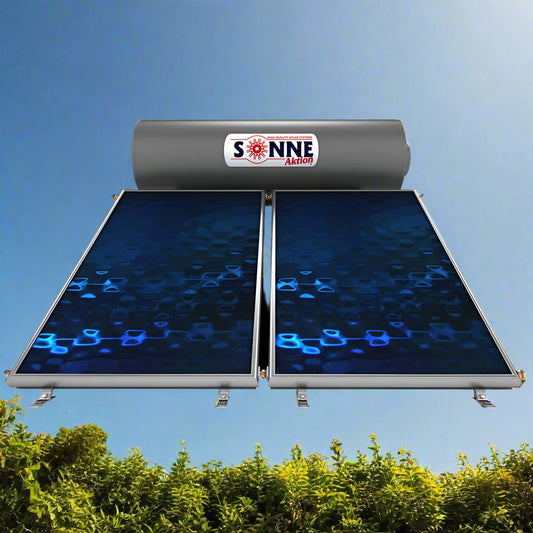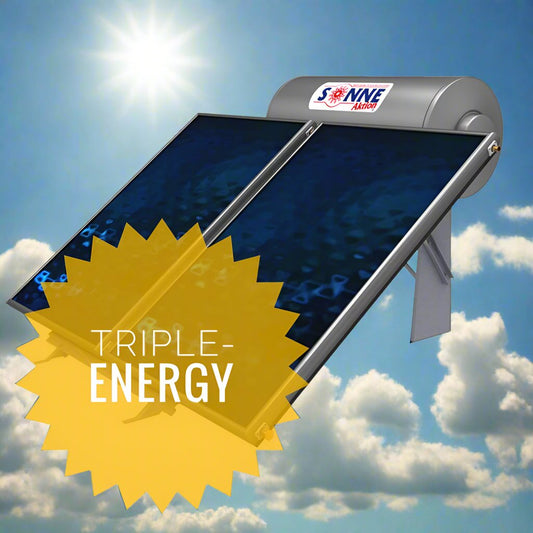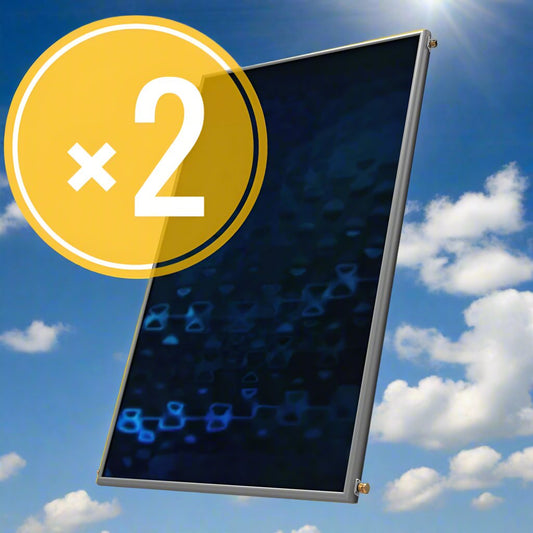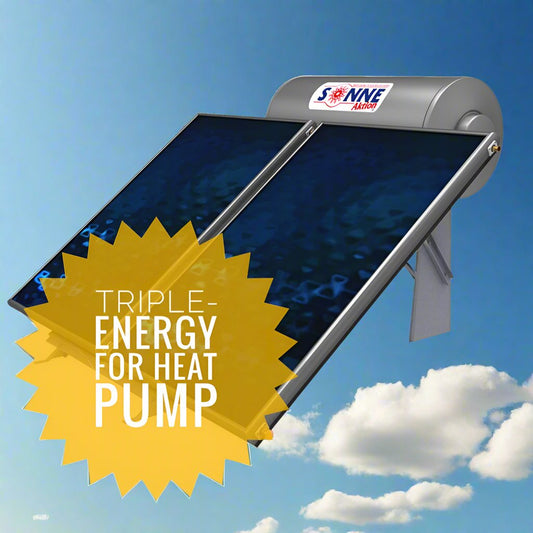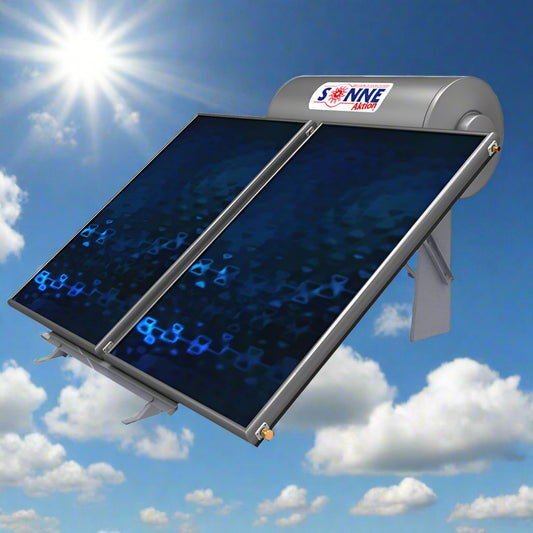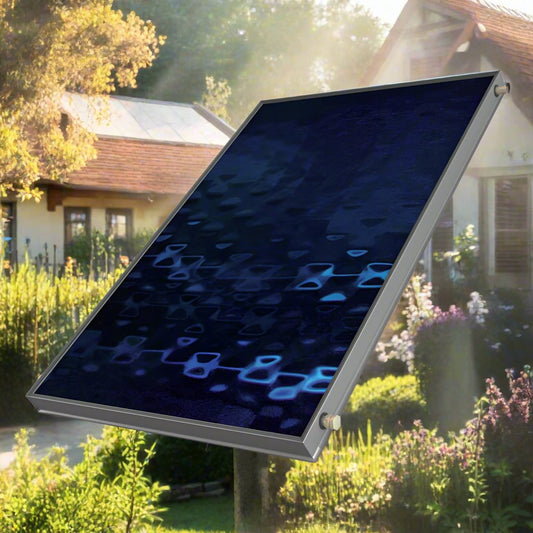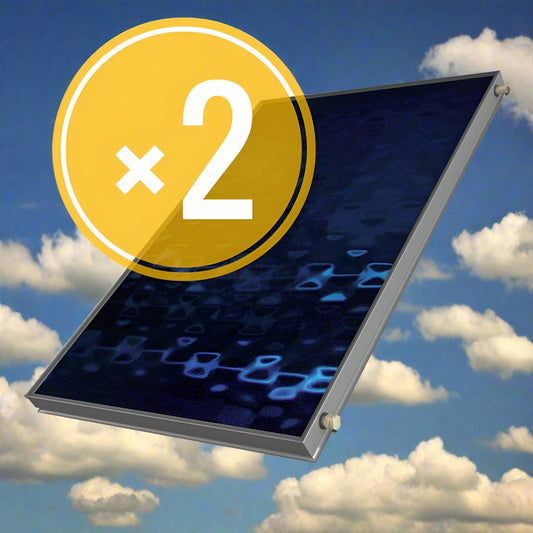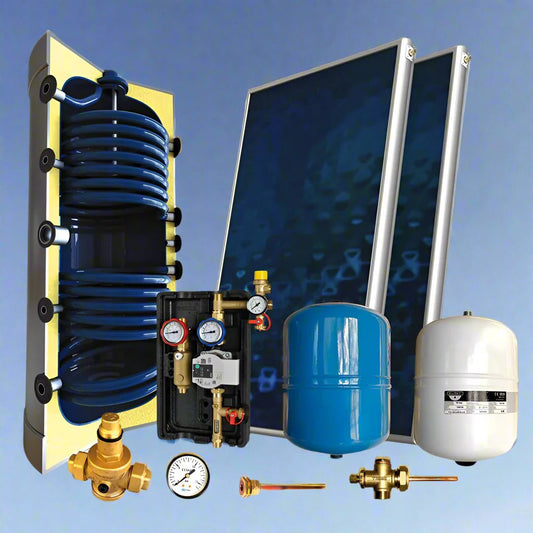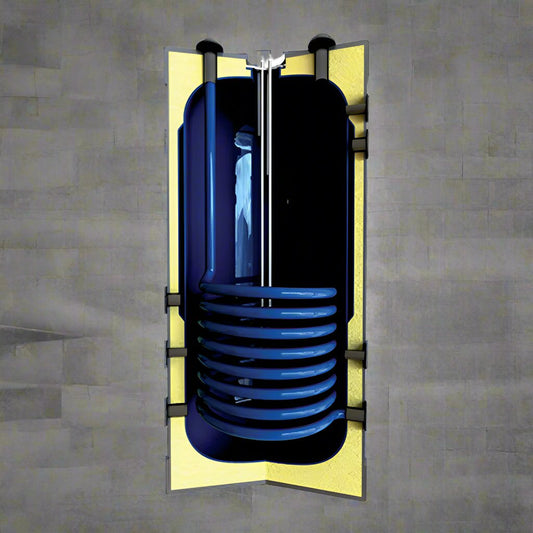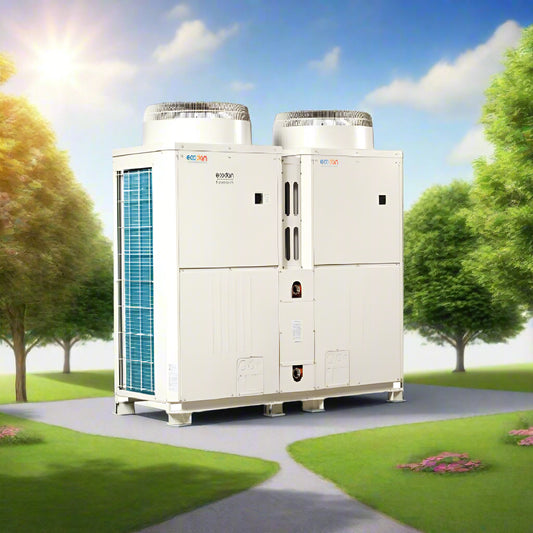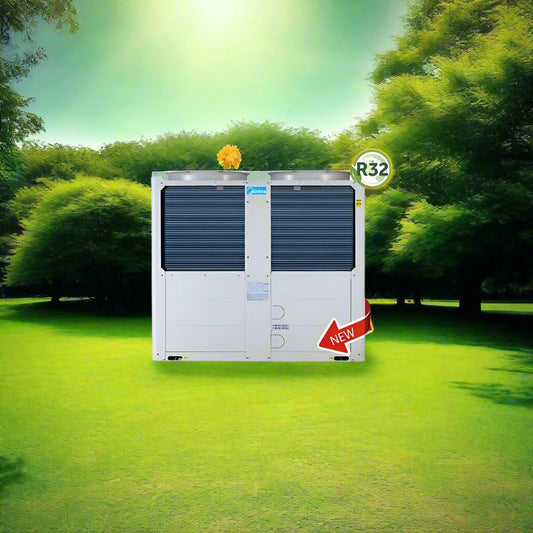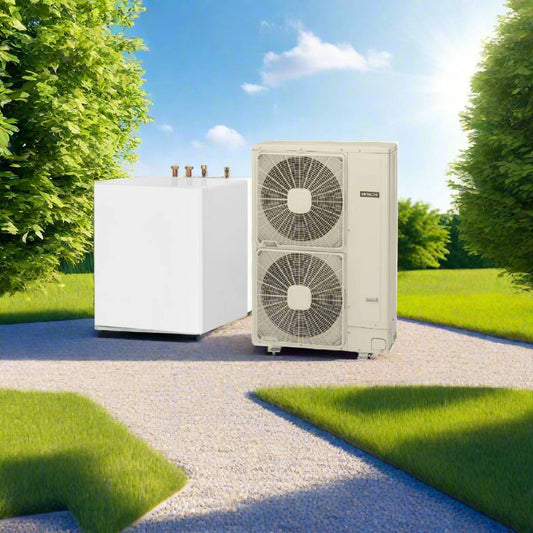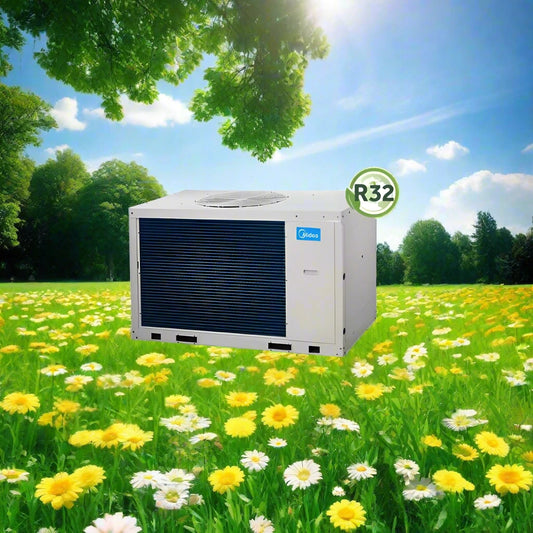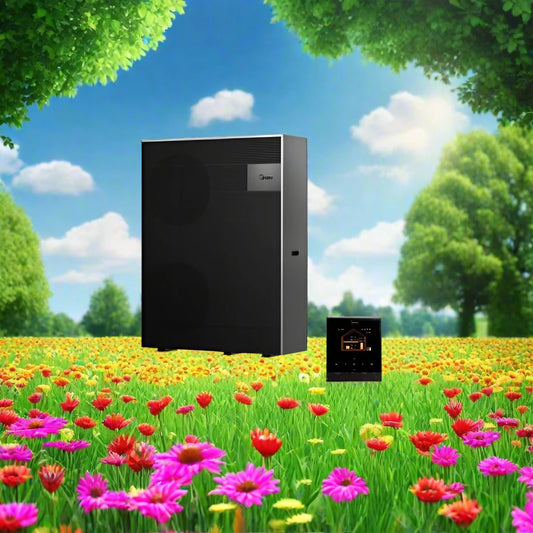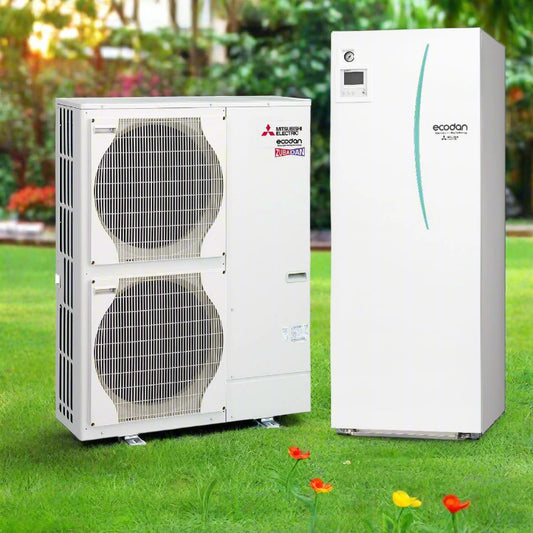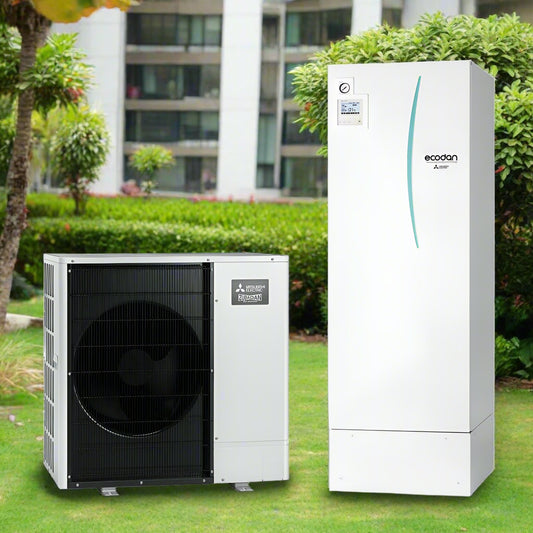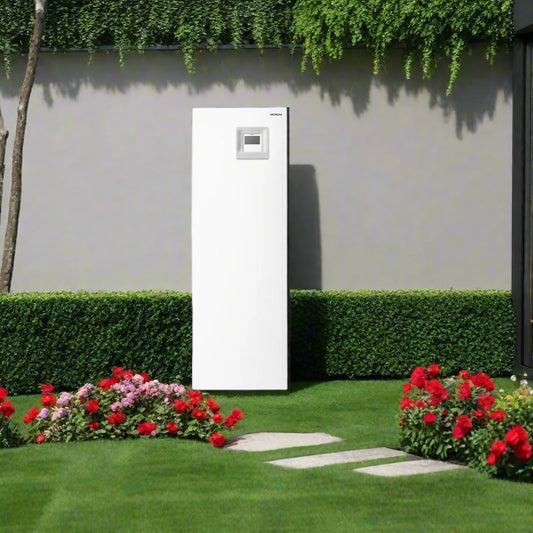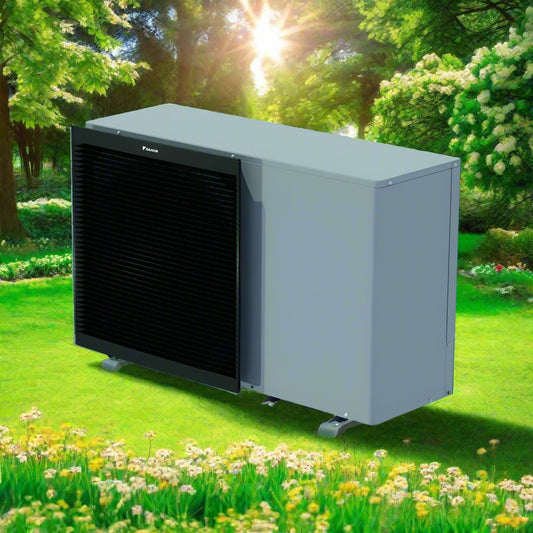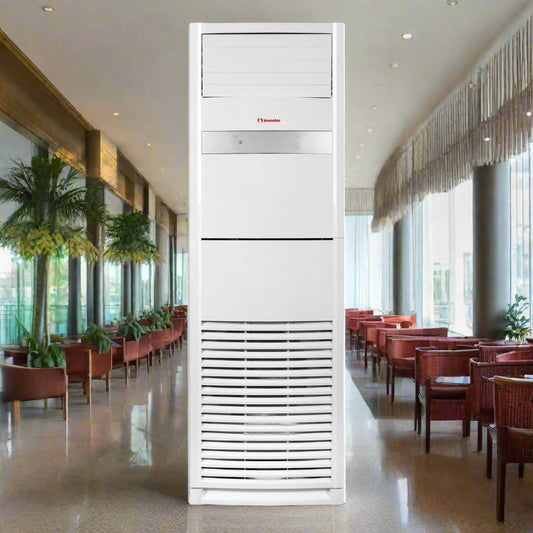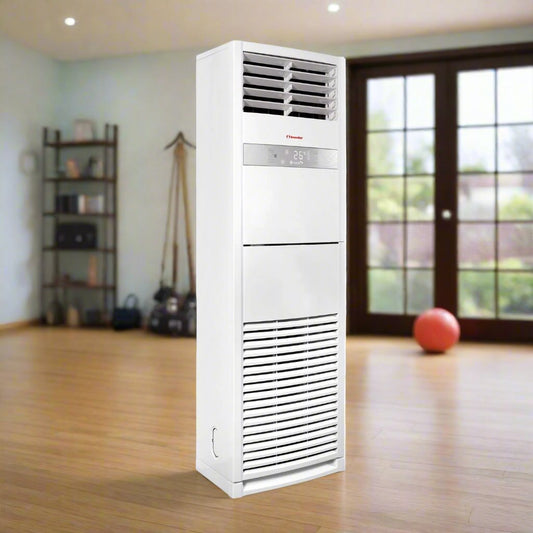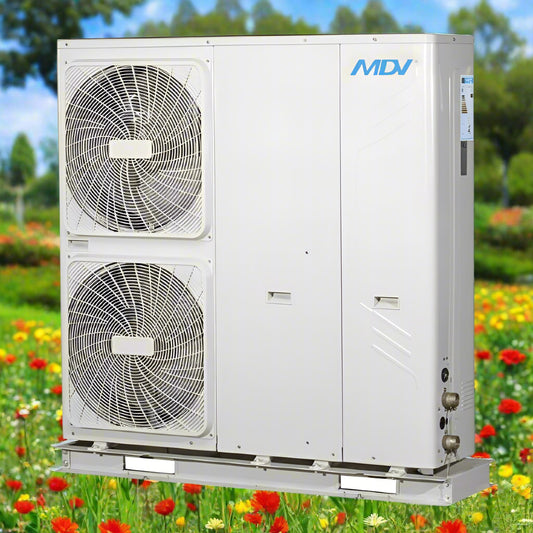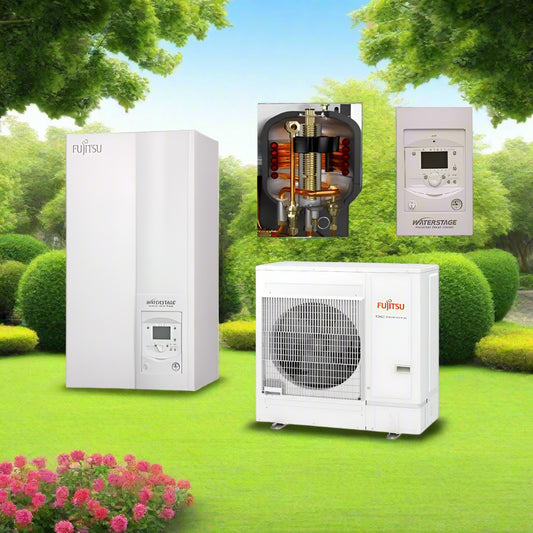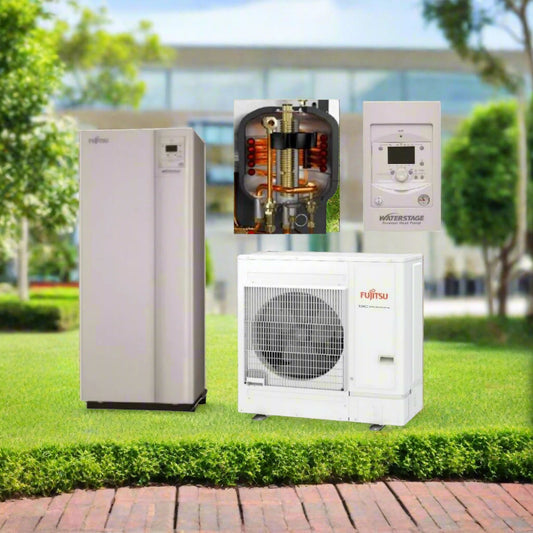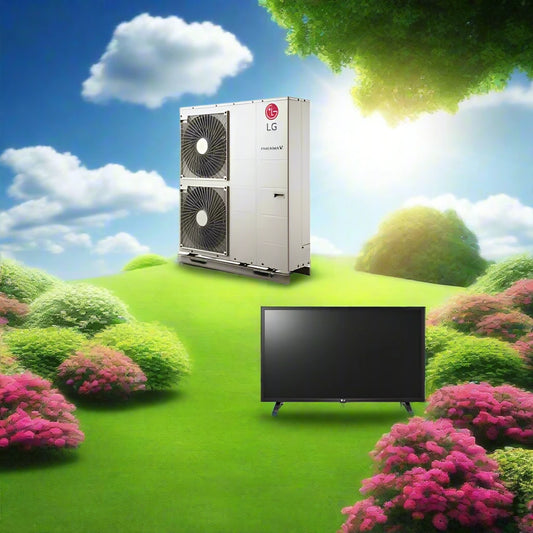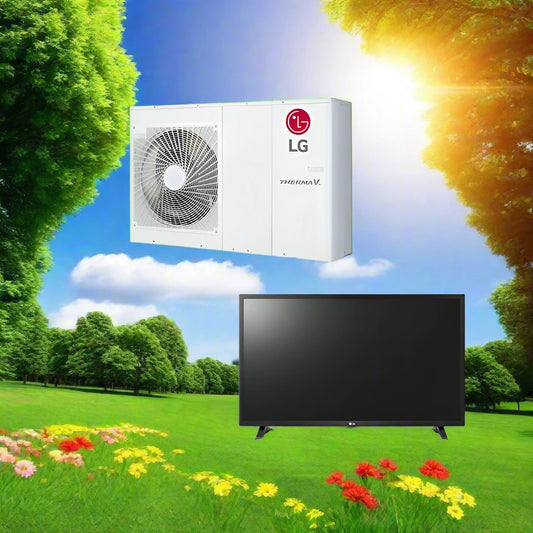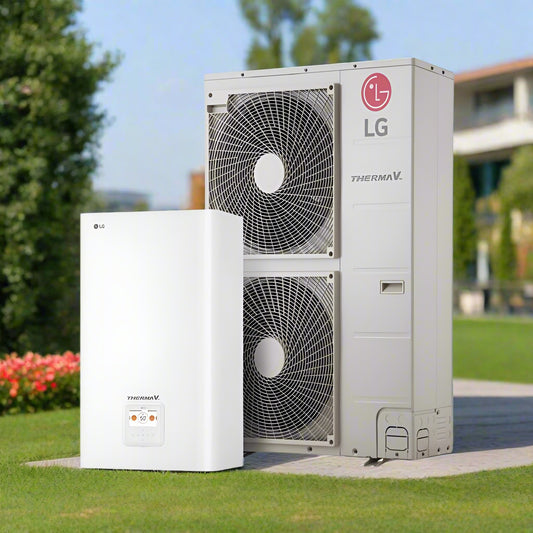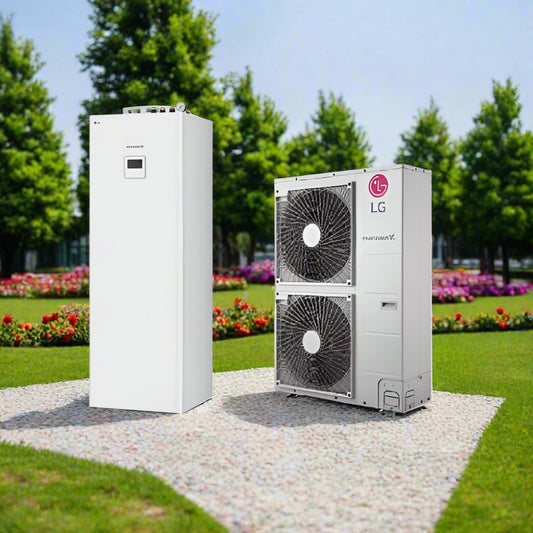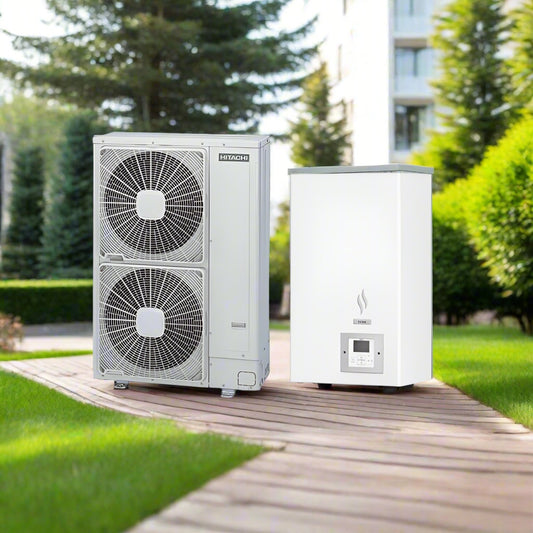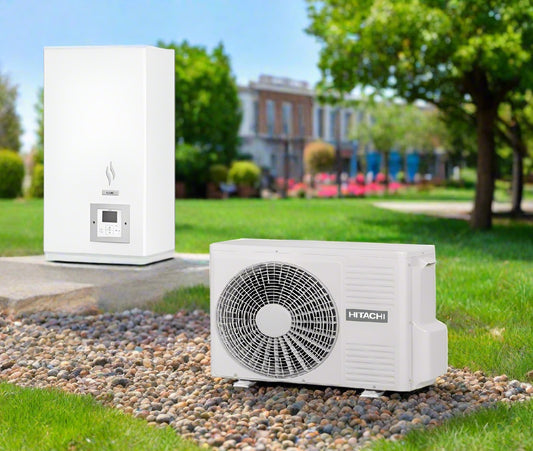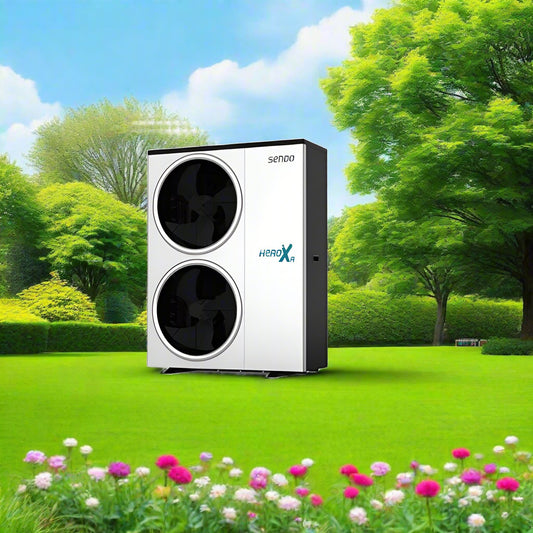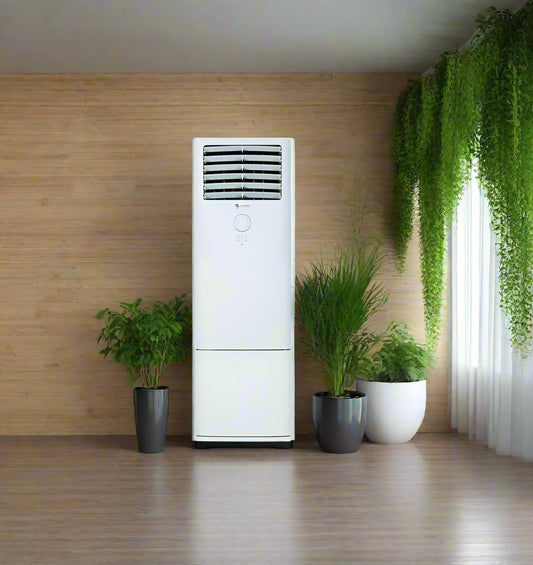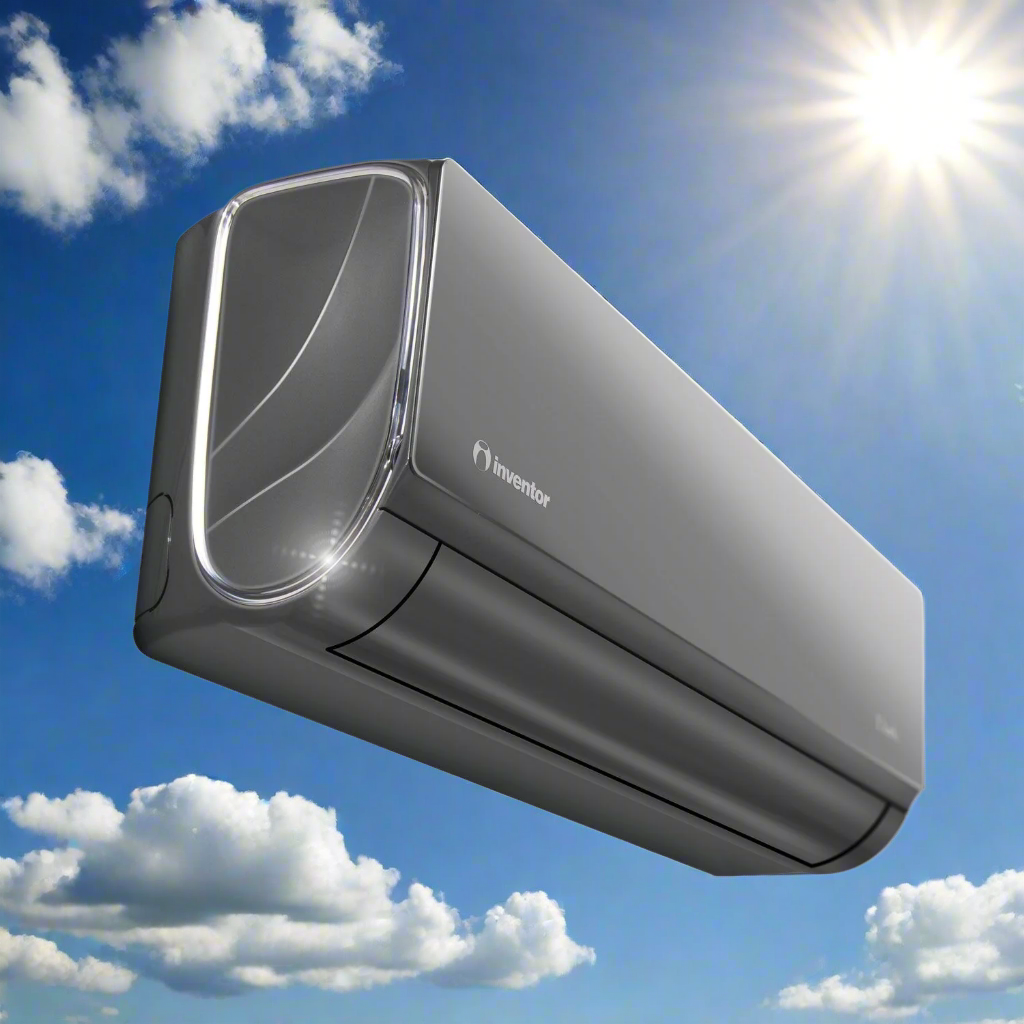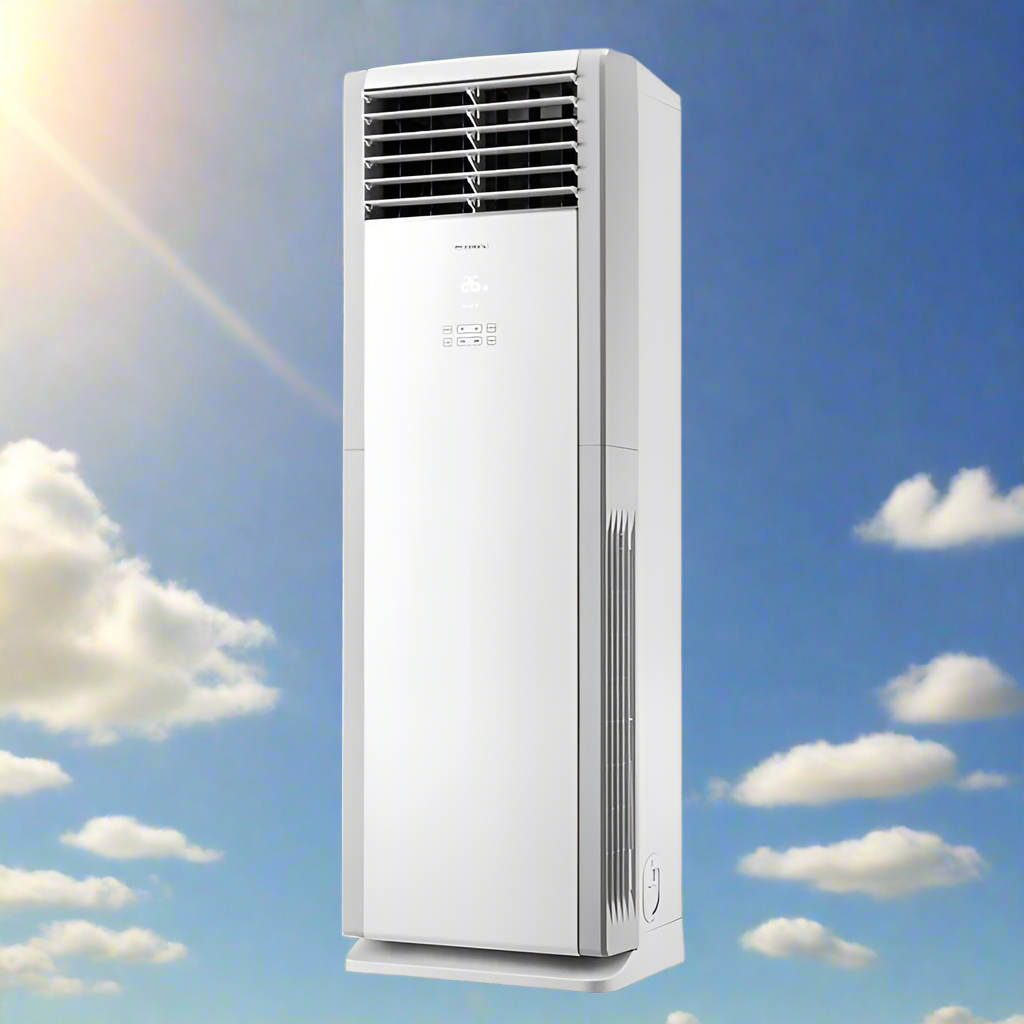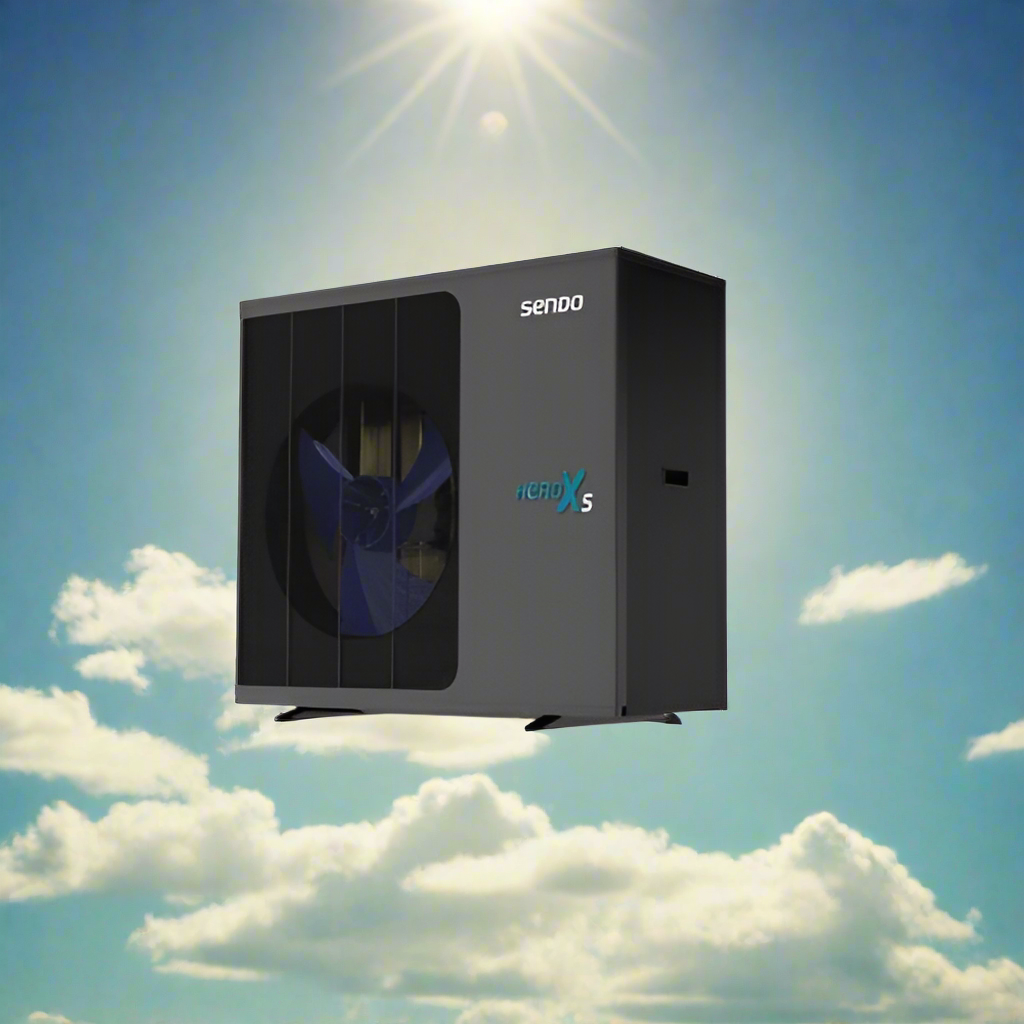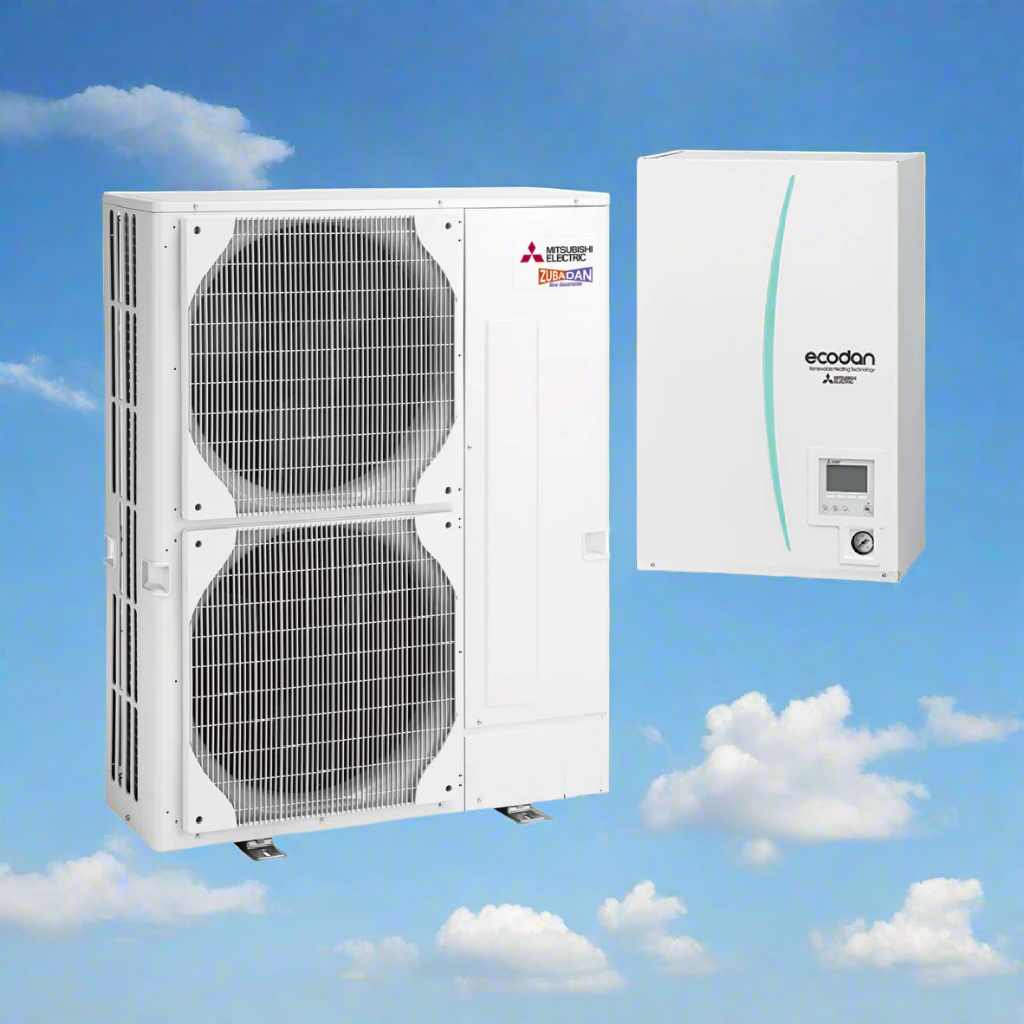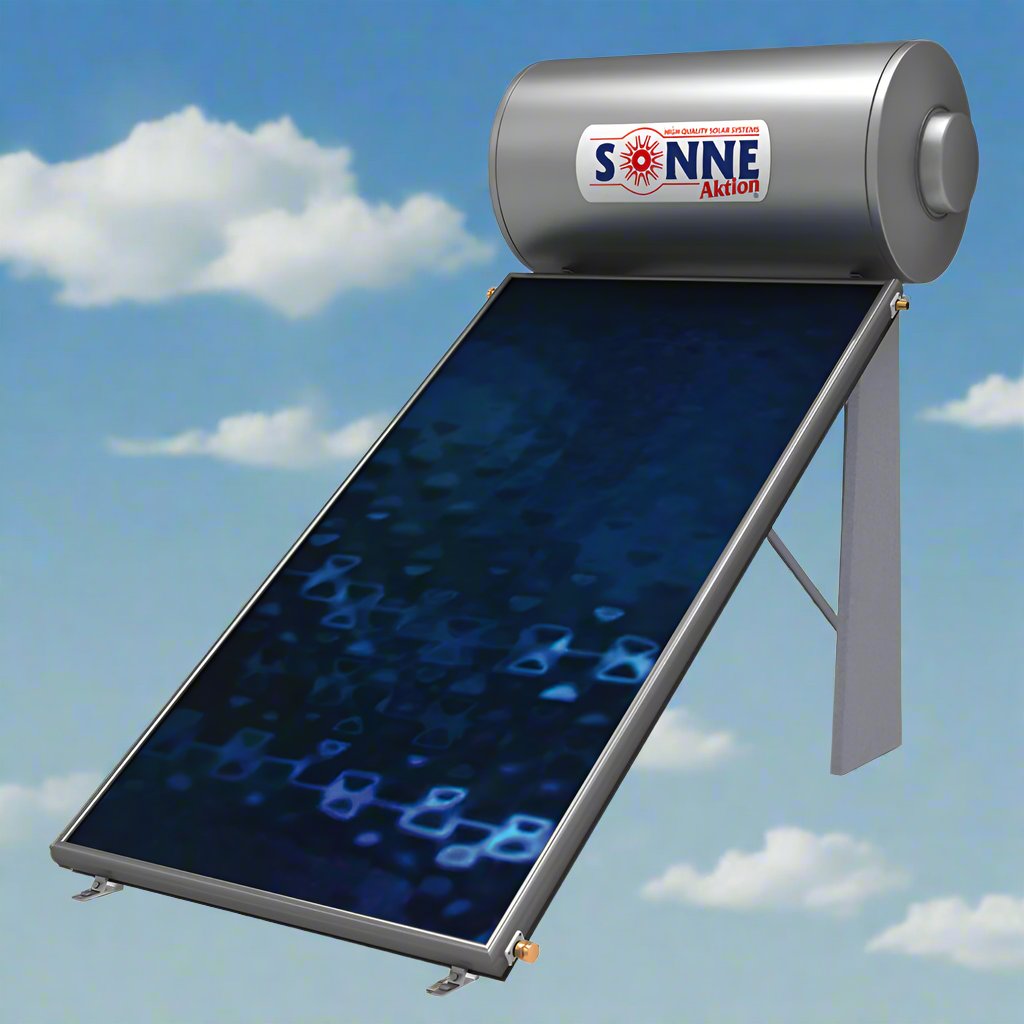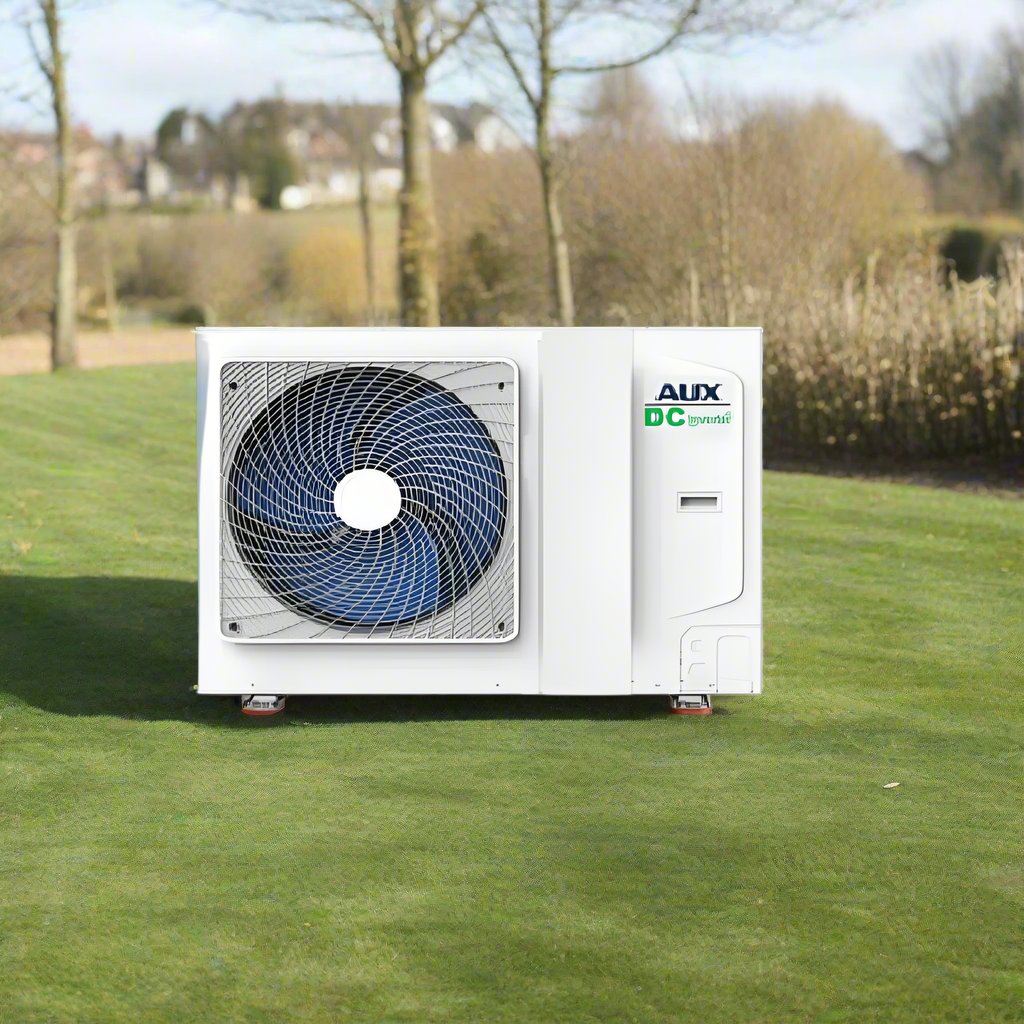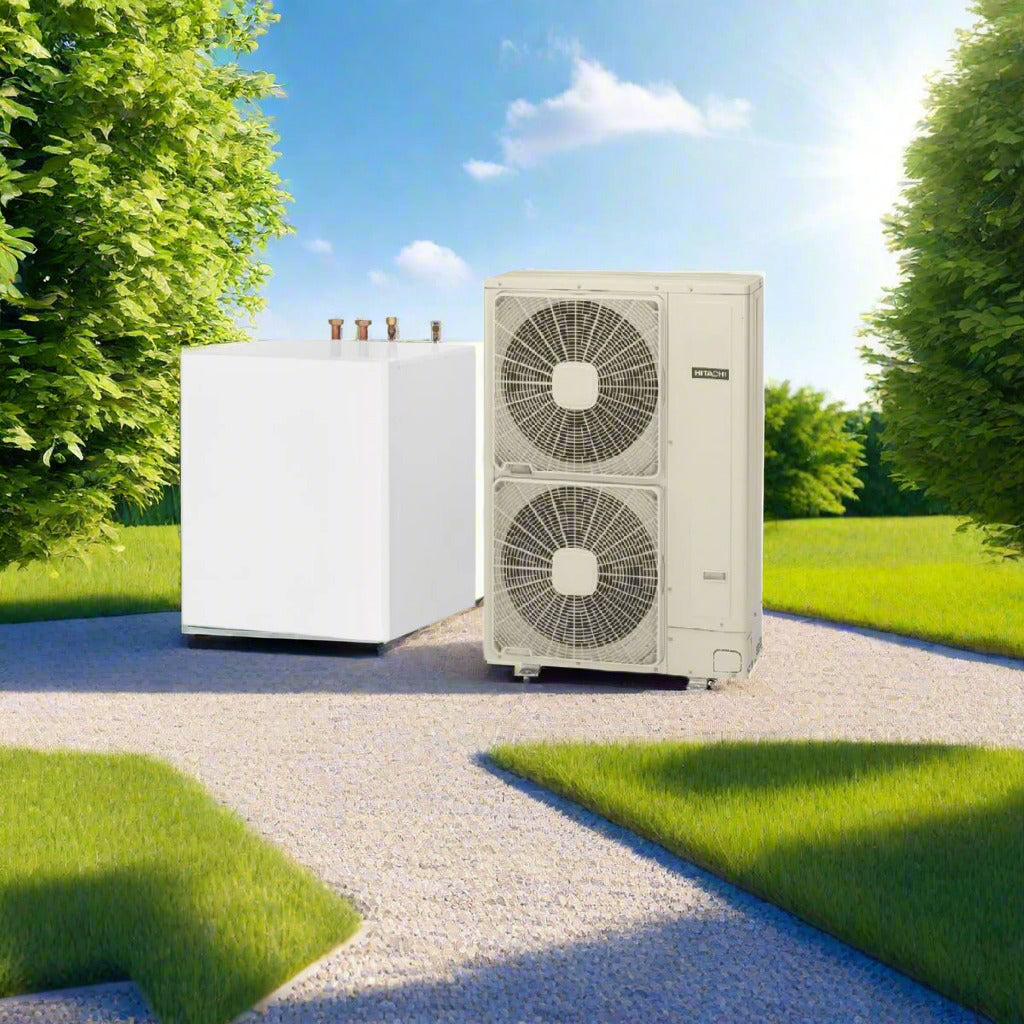-
 Contact us
Contact usFirst 25% Discount.
Receive an extra 5% discount for purchases
from 3.500€ and above and 15% off for purchases from 20.000€ and more.Facebook
Instagram
-
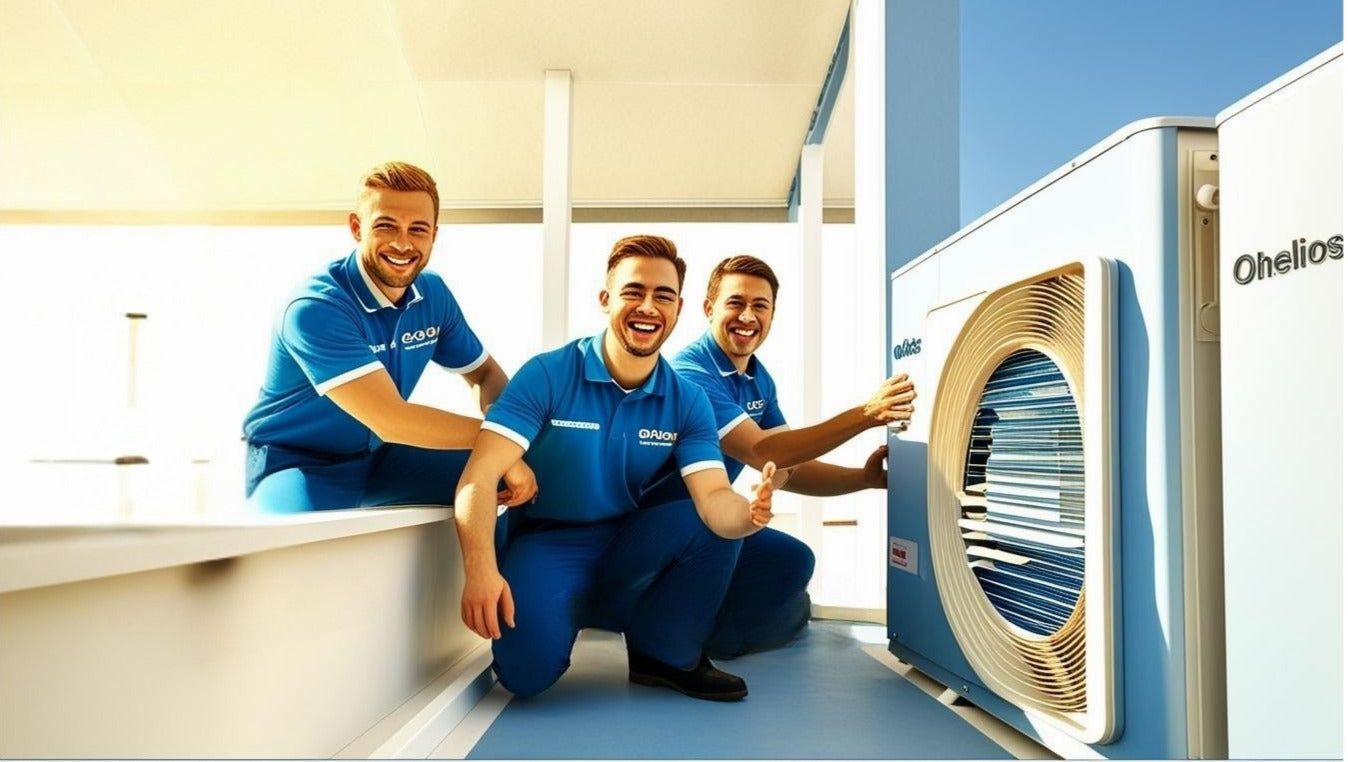 Information
InformationTechnical Installation:
Professional services starting from 99€.
The final price is determined after analyzing the product and installation address.
-
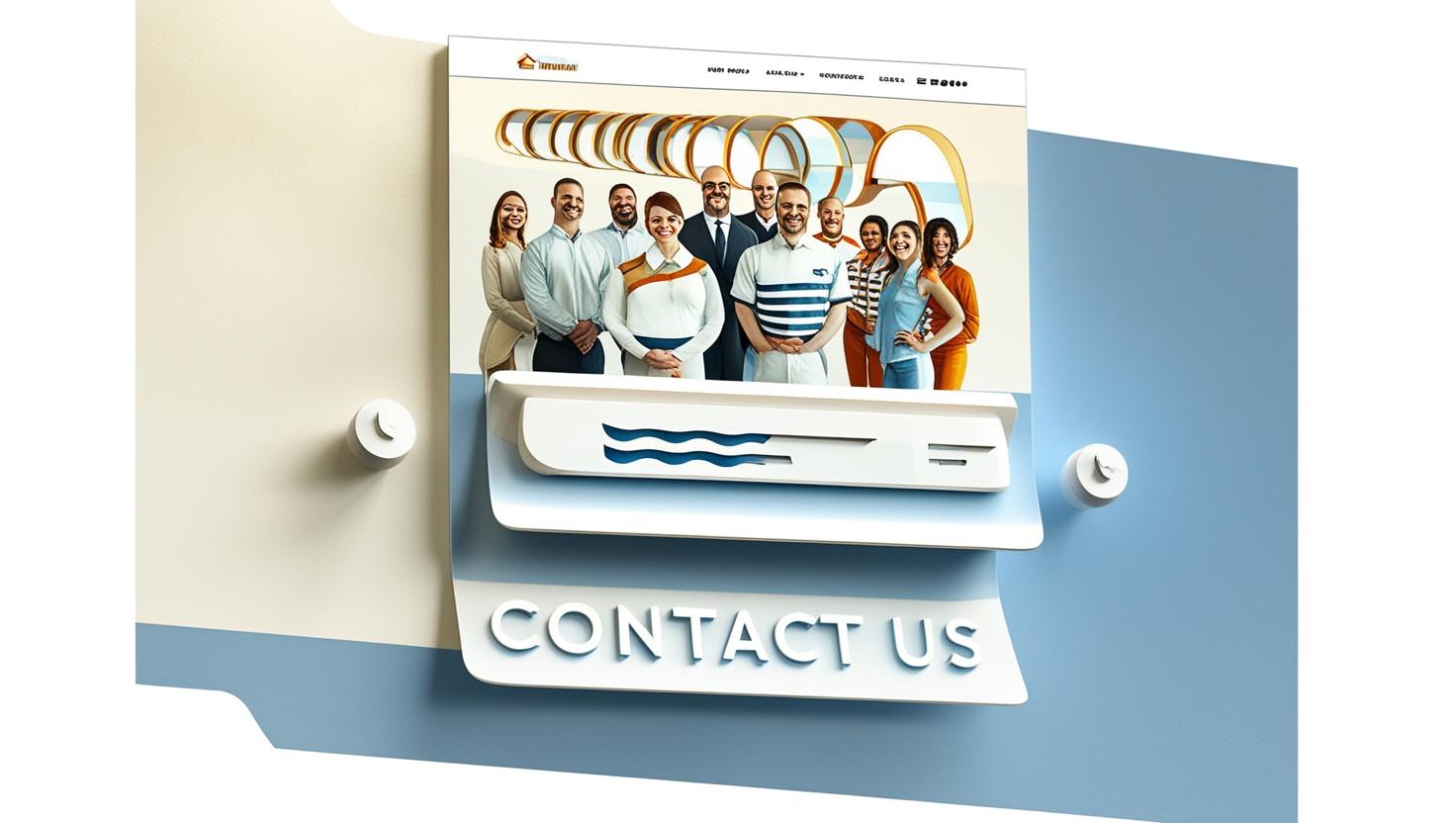 Contact us
Contact usImportant Notice:
The listed prices are specifically tailored for the EU market and include all applicable taxes.
Shipping costs are available at check out.
-
All Payment methods
PayPal Payment and more:
Ensures a secure and seamless transaction experience. With PayPal, you can shop with confidence.
Tips and News
View all-

For residents of the European Union
Green Transition Subsidies for EU Citizens – Towards 2050The European Union is committed to achieving climate neutrality by 2050
For residents of the European Union
Green Transition Subsidies for EU Citizens – Towards 2050The European Union is committed to achieving climate neutrality by 2050
-
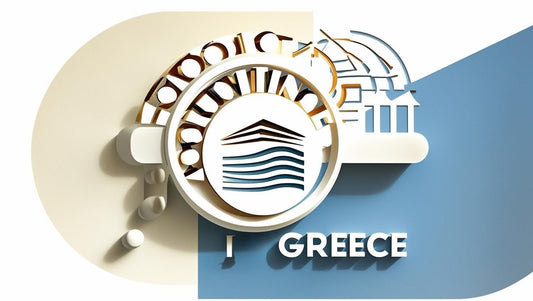
Συμβουλευτική Υπηρεσία για Επιδοτήσεις
Τι Καλύπτουμε: «Αλλάζω Θερμοσίφωνα», «Εξοικονομώ – Ανακαινίζω», «Ανακαινίζω - Νοικιάζω»
Συμβουλευτική Υπηρεσία για Επιδοτήσεις
Τι Καλύπτουμε: «Αλλάζω Θερμοσίφωνα», «Εξοικονομώ – Ανακαινίζω», «Ανακαινίζω - Νοικιάζω»
-
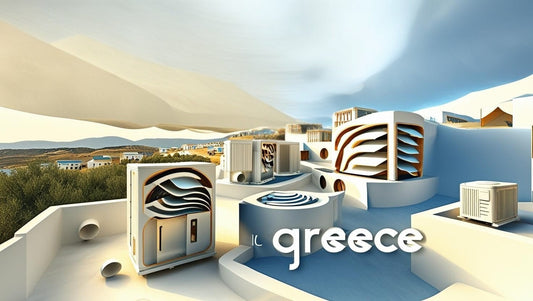
Επιδότηση Εξοικονομώ και Αλλάζω Θερμοσίφωνα 2025
Επιδότηση Αντλιών Θερμότητας: Αλλάζω Θερμοσίφωνα. Στην Ελλάδα, τα προγράμματα επιδότησης, όπως το πρόγραμμα «Εξοικονομώ»
Επιδότηση Εξοικονομώ και Αλλάζω Θερμοσίφωνα 2025
Επιδότηση Αντλιών Θερμότητας: Αλλάζω Θερμοσίφωνα. Στην Ελλάδα, τα προγράμματα επιδότησης, όπως το πρόγραμμα «Εξοικονομώ»
-
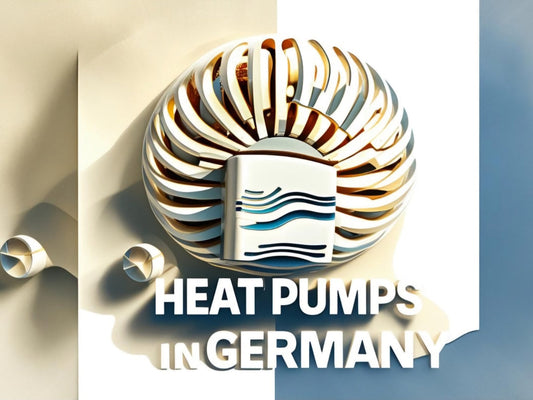
Subsidies for Heat-Pumps in Germany
Customers in Germany can benefit from subsidies that cover up to 70% of the installation costs for heat pumps.
Subsidies for Heat-Pumps in Germany
Customers in Germany can benefit from subsidies that cover up to 70% of the installation costs for heat pumps.
All Heat Pumps
The prices below are retail sales and refer to a single order, also they include VAT but do not include transportation costs. For the transportation costs we calculate through the address at the checkout. For wholesale prices for businesses, please contact us and receive further reductions.
-
Subsidies Advisory Service 2025
Vendor:OHELIOS ServicesRegular price From €0,00 EURRegular priceUnit price / perSubsidies Advisory Service 2025
Regular price From €0,00 EURRegular priceUnit price / perSubsidies Advisory Service 2025
Regular price From €0,00 EURRegular priceUnit price / per -
Technical Installation per Heat-Pump from
Vendor:Professional Associates of OHELIOSRegular price €990,00 EURRegular priceUnit price / per -
Heat Pump Monoblock Aux ACHP-H Single-Phase,Three-Phase /With or Without Electrical Heaters 4 kW-16 kW
Vendor:AUXRegular price From €2.341,00 EURRegular priceUnit price / per€2.926,00 EURSale price From €2.341,00 EURHeat Pump Monoblock Aux ACHP-H Single-Phase,Three-Phase /With or Without Electrical Heaters 4 kW-16 kW
Regular price From €2.341,00 EURRegular priceUnit price / per€2.926,00 EURSale price From €2.341,00 EURHeat Pump Monoblock Aux ACHP-H Single-Phase,Three-Phase /With or Without Electrical Heaters 4 kW-16 kW
Regular price From €2.341,00 EURRegular priceUnit price / per€2.926,00 EURSale price From €2.341,00 EURSale -
Heat Pump Monoblock TCL R32 Single-Phase,Three-Phase, 4 kW-16 kW
Vendor:TCLRegular price From €2.450,00 EURRegular priceUnit price / per€3.312,00 EURSale price From €2.450,00 EURHeat Pump Monoblock TCL R32 Single-Phase,Three-Phase, 4 kW-16 kW
Regular price From €2.450,00 EURRegular priceUnit price / per€3.312,00 EURSale price From €2.450,00 EURHeat Pump Monoblock TCL R32 Single-Phase,Three-Phase, 4 kW-16 kW
Regular price From €2.450,00 EURRegular priceUnit price / per€3.312,00 EURSale price From €2.450,00 EURSale -
Heat Pump Monoblock InClima Single-Phase/ Three-Phase, 8kW-16kW
Vendor:InClimaRegular price From €2.482,00 EURRegular priceUnit price / per€3.102,00 EURSale price From €2.482,00 EURHeat Pump Monoblock InClima Single-Phase/ Three-Phase, 8kW-16kW
Regular price From €2.482,00 EURRegular priceUnit price / per€3.102,00 EURSale price From €2.482,00 EURHeat Pump Monoblock InClima Single-Phase/ Three-Phase, 8kW-16kW
Regular price From €2.482,00 EURRegular priceUnit price / per€3.102,00 EURSale price From €2.482,00 EURSale -
Heat Pump Monoblock Inventor X-force Single-Phase/ Three-Phase, 6kW-16kW
Vendor:InventorRegular price From €2.527,00 EURRegular priceUnit price / per€3.158,00 EURSale price From €2.527,00 EURHeat Pump Monoblock Inventor X-force Single-Phase/ Three-Phase, 6kW-16kW
Regular price From €2.527,00 EURRegular priceUnit price / per€3.158,00 EURSale price From €2.527,00 EURHeat Pump Monoblock Inventor X-force Single-Phase/ Three-Phase, 6kW-16kW
Regular price From €2.527,00 EURRegular priceUnit price / per€3.158,00 EURSale price From €2.527,00 EURSale -
Heat Pump Monoblock MDV Mini Chiller Single-Phase/Three-Phase, 7kW-16kW
Vendor:MDVRegular price From €2.839,00 EURRegular priceUnit price / per€3.548,00 EURSale price From €2.839,00 EURHeat Pump Monoblock MDV Mini Chiller Single-Phase/Three-Phase, 7kW-16kW
Regular price From €2.839,00 EURRegular priceUnit price / per€3.548,00 EURSale price From €2.839,00 EURHeat Pump Monoblock MDV Mini Chiller Single-Phase/Three-Phase, 7kW-16kW
Regular price From €2.839,00 EURRegular priceUnit price / per€3.548,00 EURSale price From €2.839,00 EURSale -
Heat Pump Monoblock Gree Versati IV GRS Single-Phase/ Three-Phase, 8kW-25kW
Vendor:GreeRegular price From €2.927,00 EURRegular priceUnit price / per€3.658,00 EURSale price From €2.927,00 EURHeat Pump Monoblock Gree Versati IV GRS Single-Phase/ Three-Phase, 8kW-25kW
Regular price From €2.927,00 EURRegular priceUnit price / per€3.658,00 EURSale price From €2.927,00 EURHeat Pump Monoblock Gree Versati IV GRS Single-Phase/ Three-Phase, 8kW-25kW
Regular price From €2.927,00 EURRegular priceUnit price / per€3.658,00 EURSale price From €2.927,00 EURSale -
Heat Pump Monoblock ECONSET Easytherm Single-Phase 6kW-10kW
Vendor:ECONSETRegular price From €2.980,00 EURRegular priceUnit price / per€3.724,00 EURSale price From €2.980,00 EURHeat Pump Monoblock ECONSET Easytherm Single-Phase 6kW-10kW
Regular price From €2.980,00 EURRegular priceUnit price / per€3.724,00 EURSale price From €2.980,00 EURHeat Pump Monoblock ECONSET Easytherm Single-Phase 6kW-10kW
Regular price From €2.980,00 EURRegular priceUnit price / per€3.724,00 EURSale price From €2.980,00 EURSale -
Heat Pump Split AUX AI–Therma Single-Phase/ Three-Phase, 4kW-16kW
Vendor:AUXRegular price From €3.010,00 EURRegular priceUnit price / per€3.762,00 EURSale price From €3.010,00 EURHeat Pump Split AUX AI–Therma Single-Phase/ Three-Phase, 4kW-16kW
Regular price From €3.010,00 EURRegular priceUnit price / per€3.762,00 EURSale price From €3.010,00 EURHeat Pump Split AUX AI–Therma Single-Phase/ Three-Phase, 4kW-16kW
Regular price From €3.010,00 EURRegular priceUnit price / per€3.762,00 EURSale price From €3.010,00 EURSale -
Heat Pump Split Inventor Matrix Single-Phase/ Three-Phase, 4kW-16kW
Vendor:InventorRegular price From €3.020,00 EURRegular priceUnit price / per€3.774,00 EURSale price From €3.020,00 EURHeat Pump Split Inventor Matrix Single-Phase/ Three-Phase, 4kW-16kW
Regular price From €3.020,00 EURRegular priceUnit price / per€3.774,00 EURSale price From €3.020,00 EURHeat Pump Split Inventor Matrix Single-Phase/ Three-Phase, 4kW-16kW
Regular price From €3.020,00 EURRegular priceUnit price / per€3.774,00 EURSale price From €3.020,00 EURSale -
Heat Pump Split Inventor Integraded Single-Phase/ Three-Phase, 4kW-16kW
Vendor:InventorRegular price From €3.020,00 EURRegular priceUnit price / per€3.774,00 EURSale price From €3.020,00 EURHeat Pump Split Inventor Integraded Single-Phase/ Three-Phase, 4kW-16kW
Regular price From €3.020,00 EURRegular priceUnit price / per€3.774,00 EURSale price From €3.020,00 EURHeat Pump Split Inventor Integraded Single-Phase/ Three-Phase, 4kW-16kW
Regular price From €3.020,00 EURRegular priceUnit price / per€3.774,00 EURSale price From €3.020,00 EURSale -
Heat Pump Monoblock/ Split MDV Arctic Series MDVC Single-Phase/ Three-Phase, 8kW-22kW
Vendor:MDVRegular price From €3.119,00 EURRegular priceUnit price / per€3.898,00 EURSale price From €3.119,00 EURHeat Pump Monoblock/ Split MDV Arctic Series MDVC Single-Phase/ Three-Phase, 8kW-22kW
Regular price From €3.119,00 EURRegular priceUnit price / per€3.898,00 EURSale price From €3.119,00 EURHeat Pump Monoblock/ Split MDV Arctic Series MDVC Single-Phase/ Three-Phase, 8kW-22kW
Regular price From €3.119,00 EURRegular priceUnit price / per€3.898,00 EURSale price From €3.119,00 EURSale -
Heat Pump Monoblock Inventor Matrix Single-Phase/ Three-Phase, 6kW-22kW
Vendor:InventorRegular price From €3.204,00 EURRegular priceUnit price / per€4.004,00 EURSale price From €3.204,00 EURHeat Pump Monoblock Inventor Matrix Single-Phase/ Three-Phase, 6kW-22kW
Regular price From €3.204,00 EURRegular priceUnit price / per€4.004,00 EURSale price From €3.204,00 EURHeat Pump Monoblock Inventor Matrix Single-Phase/ Three-Phase, 6kW-22kW
Regular price From €3.204,00 EURRegular priceUnit price / per€4.004,00 EURSale price From €3.204,00 EURSale -
Heat Pump Monoblock Midea M-thermal Arctic-Power Series Single-Phase/Three-Phase, White/ Black 10kW-30kW
Vendor:MideaRegular price From €3.652,00 EURRegular priceUnit price / per€4.564,00 EURSale price From €3.652,00 EURHeat Pump Monoblock Midea M-thermal Arctic-Power Series Single-Phase/Three-Phase, White/ Black 10kW-30kW
Regular price From €3.652,00 EURRegular priceUnit price / per€4.564,00 EURSale price From €3.652,00 EURHeat Pump Monoblock Midea M-thermal Arctic-Power Series Single-Phase/Three-Phase, White/ Black 10kW-30kW
Regular price From €3.652,00 EURRegular priceUnit price / per€4.564,00 EURSale price From €3.652,00 EURSale -
Heat Pump Monoblock Hitachi AirH2O Single-Phase/Three-Phase, 8kW-16kW
Vendor:HitachiRegular price From €3.754,00 EURRegular priceUnit price / per€4.692,00 EURSale price From €3.754,00 EURHeat Pump Monoblock Hitachi AirH2O Single-Phase/Three-Phase, 8kW-16kW
Regular price From €3.754,00 EURRegular priceUnit price / per€4.692,00 EURSale price From €3.754,00 EURHeat Pump Monoblock Hitachi AirH2O Single-Phase/Three-Phase, 8kW-16kW
Regular price From €3.754,00 EURRegular priceUnit price / per€4.692,00 EURSale price From €3.754,00 EURSale -
Heat Pump Monoblock Hitachi Yutaki M Single-Phase/ Three-Phase, 4kW-16kW
Vendor:HitachiRegular price From €3.754,00 EURRegular priceUnit price / per€4.692,00 EURSale price From €3.754,00 EURHeat Pump Monoblock Hitachi Yutaki M Single-Phase/ Three-Phase, 4kW-16kW
Regular price From €3.754,00 EURRegular priceUnit price / per€4.692,00 EURSale price From €3.754,00 EURHeat Pump Monoblock Hitachi Yutaki M Single-Phase/ Three-Phase, 4kW-16kW
Regular price From €3.754,00 EURRegular priceUnit price / per€4.692,00 EURSale price From €3.754,00 EURSale -
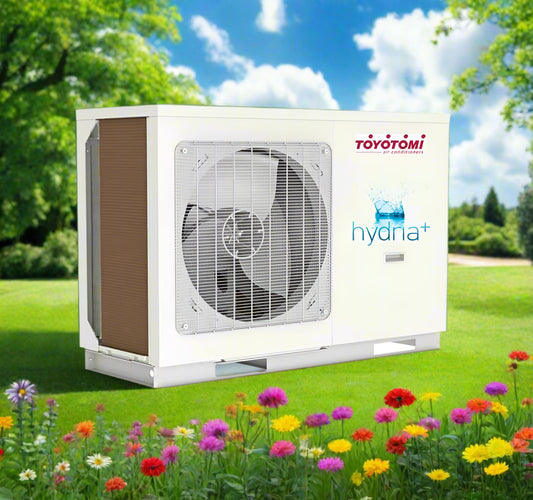
Heat Pump Monoblock/ Split Air to Water Toyotomi Hydria Plus Single-Phase/ Three-Phase, 6kW-16kW
Vendor:ToyotomiRegular price From €3.770,00 EURRegular priceUnit price / per€4.712,00 EURSale price From €3.770,00 EURHeat Pump Monoblock/ Split Air to Water Toyotomi Hydria Plus Single-Phase/ Three-Phase, 6kW-16kW
Regular price From €3.770,00 EURRegular priceUnit price / per€4.712,00 EURSale price From €3.770,00 EURHeat Pump Monoblock/ Split Air to Water Toyotomi Hydria Plus Single-Phase/ Three-Phase, 6kW-16kW
Regular price From €3.770,00 EURRegular priceUnit price / per€4.712,00 EURSale price From €3.770,00 EURSale -
Heat Pump Monoblock Bosch CS2000 AWF Single-Phase/ Three-Phase, 4kW-30kW
Vendor:BoschRegular price From €3.800,00 EURRegular priceUnit price / per€4.750,00 EURSale price From €3.800,00 EURHeat Pump Monoblock Bosch CS2000 AWF Single-Phase/ Three-Phase, 4kW-30kW
Regular price From €3.800,00 EURRegular priceUnit price / per€4.750,00 EURSale price From €3.800,00 EURHeat Pump Monoblock Bosch CS2000 AWF Single-Phase/ Three-Phase, 4kW-30kW
Regular price From €3.800,00 EURRegular priceUnit price / per€4.750,00 EURSale price From €3.800,00 EURSale -
Heat Pump Split Hitachi Yutaki AirH2O 400 8kW-16kW
Vendor:HitachiRegular price From €3.836,00 EURRegular priceUnit price / per€4.794,00 EURSale price From €3.836,00 EURHeat Pump Split Hitachi Yutaki AirH2O 400 8kW-16kW
Regular price From €3.836,00 EURRegular priceUnit price / per€4.794,00 EURSale price From €3.836,00 EURHeat Pump Split Hitachi Yutaki AirH2O 400 8kW-16kW
Regular price From €3.836,00 EURRegular priceUnit price / per€4.794,00 EURSale price From €3.836,00 EURSale -
Heat Pump Monoblock ECONSET Hero Plus Single-Phase/ Three-Phase, 8kW-25kW
Vendor:ECONSETRegular price From €3.853,00 EURRegular priceUnit price / per€4.816,00 EURSale price From €3.853,00 EURHeat Pump Monoblock ECONSET Hero Plus Single-Phase/ Three-Phase, 8kW-25kW
Regular price From €3.853,00 EURRegular priceUnit price / per€4.816,00 EURSale price From €3.853,00 EURHeat Pump Monoblock ECONSET Hero Plus Single-Phase/ Three-Phase, 8kW-25kW
Regular price From €3.853,00 EURRegular priceUnit price / per€4.816,00 EURSale price From €3.853,00 EURSale -
Heat Pump Monoblock Midea Mini Chiller Single-Phase/Three-Phase 7kW-16kW
Vendor:MideaRegular price From €3.882,00 EURRegular priceUnit price / per€4.852,00 EURSale price From €3.882,00 EURHeat Pump Monoblock Midea Mini Chiller Single-Phase/Three-Phase 7kW-16kW
Regular price From €3.882,00 EURRegular priceUnit price / per€4.852,00 EURSale price From €3.882,00 EURHeat Pump Monoblock Midea Mini Chiller Single-Phase/Three-Phase 7kW-16kW
Regular price From €3.882,00 EURRegular priceUnit price / per€4.852,00 EURSale price From €3.882,00 EURSale -
Heat Pump Monoblock ECONSET Greentherm R290 Single-Phase/ Three-Phase, 8kW-16kW
Vendor:ECONSETRegular price From €4.119,00 EURRegular priceUnit price / per€5.148,00 EURSale price From €4.119,00 EURHeat Pump Monoblock ECONSET Greentherm R290 Single-Phase/ Three-Phase, 8kW-16kW
Regular price From €4.119,00 EURRegular priceUnit price / per€5.148,00 EURSale price From €4.119,00 EURHeat Pump Monoblock ECONSET Greentherm R290 Single-Phase/ Three-Phase, 8kW-16kW
Regular price From €4.119,00 EURRegular priceUnit price / per€5.148,00 EURSale price From €4.119,00 EURSale -
Heat Pump Split Midea M-Thermal Single-Phase/ Three-Phase, 10kW-16kW
Vendor:MideaRegular price From €4.164,00 EURRegular priceUnit price / per€5.204,00 EURSale price From €4.164,00 EURHeat Pump Split Midea M-Thermal Single-Phase/ Three-Phase, 10kW-16kW
Regular price From €4.164,00 EURRegular priceUnit price / per€5.204,00 EURSale price From €4.164,00 EURHeat Pump Split Midea M-Thermal Single-Phase/ Three-Phase, 10kW-16kW
Regular price From €4.164,00 EURRegular priceUnit price / per€5.204,00 EURSale price From €4.164,00 EURSale -
Heat Pump Sendo Hero XS Single-Phase/ Three-Phase, 8kW-22kW
Vendor:SendoRegular price From €4.320,00 EURRegular priceUnit price / per€5.400,00 EURSale price From €4.320,00 EURHeat Pump Sendo Hero XS Single-Phase/ Three-Phase, 8kW-22kW
Regular price From €4.320,00 EURRegular priceUnit price / per€5.400,00 EURSale price From €4.320,00 EURHeat Pump Sendo Hero XS Single-Phase/ Three-Phase, 8kW-22kW
Regular price From €4.320,00 EURRegular priceUnit price / per€5.400,00 EURSale price From €4.320,00 EURSale
All Air-Contitioners:
The prices below are retail sales and refer to a single order, also they include VAT but do not include transportation costs. For the transportation costs we calculate through the address at the checkout. For wholesale prices for businesses, please contact us and receive further reductions.
-
Technical Installation per Air-Condition from
Vendor:Professional Associates of OHELIOSRegular price €100,00 EURRegular priceUnit price / per -
Home and Office Air-Conditioner Omny's 9.000-24.000 Btu/h
Vendor:Omny'sRegular price From €360,00 EURRegular priceUnit price / per€450,00 EURSale price From €360,00 EURHome and Office Air-Conditioner Omny's 9.000-24.000 Btu/h
Regular price From €360,00 EURRegular priceUnit price / per€450,00 EURSale price From €360,00 EURHome and Office Air-Conditioner Omny's 9.000-24.000 Btu/h
Regular price From €360,00 EURRegular priceUnit price / per€450,00 EURSale price From €360,00 EURSale -
Home and Office Air-Conditioner Nobu Kiku 9.000-24.000 Btu/h
Vendor:NobuRegular price From €360,00 EURRegular priceUnit price / per€450,00 EURSale price From €360,00 EURHome and Office Air-Conditioner Nobu Kiku 9.000-24.000 Btu/h
Regular price From €360,00 EURRegular priceUnit price / per€450,00 EURSale price From €360,00 EURHome and Office Air-Conditioner Nobu Kiku 9.000-24.000 Btu/h
Regular price From €360,00 EURRegular priceUnit price / per€450,00 EURSale price From €360,00 EURSale -
Home and Office Moveable Air Conditioner AUX Halo M Series 9.000-12.000 BTU/h
Vendor:AUXRegular price From €395,00 EURRegular priceUnit price / per€494,00 EURSale price From €395,00 EURHome and Office Moveable Air Conditioner AUX Halo M Series 9.000-12.000 BTU/h
Regular price From €395,00 EURRegular priceUnit price / per€494,00 EURSale price From €395,00 EURHome and Office Moveable Air Conditioner AUX Halo M Series 9.000-12.000 BTU/h
Regular price From €395,00 EURRegular priceUnit price / per€494,00 EURSale price From €395,00 EURSale -
Home and Office Moveable Air-Conditioner Inventor CHiLLY 9.000 BTU/h
Vendor:InventorRegular price €400,00 EURRegular priceUnit price / per€500,00 EURSale price €400,00 EURSale -
Home and Office Air-Conditioner Dai-Ichi 9.000-18.000 Btu/h
Vendor:Dai-IchiRegular price From €404,00 EURRegular priceUnit price / per€506,00 EURSale price From €404,00 EURHome and Office Air-Conditioner Dai-Ichi 9.000-18.000 Btu/h
Regular price From €404,00 EURRegular priceUnit price / per€506,00 EURSale price From €404,00 EURHome and Office Air-Conditioner Dai-Ichi 9.000-18.000 Btu/h
Regular price From €404,00 EURRegular priceUnit price / per€506,00 EURSale price From €404,00 EURSale -
Home and Office Air-Conditioner AUX Q Plus 9.000-12.000 Btu/h
Vendor:AUXRegular price From €414,00 EURRegular priceUnit price / per€538,00 EURSale price From €414,00 EURHome and Office Air-Conditioner AUX Q Plus 9.000-12.000 Btu/h
Regular price From €414,00 EURRegular priceUnit price / per€538,00 EURSale price From €414,00 EURHome and Office Air-Conditioner AUX Q Plus 9.000-12.000 Btu/h
Regular price From €414,00 EURRegular priceUnit price / per€538,00 EURSale price From €414,00 EURSale -
Home and Office Air-Conditioner Comfee Inverter 9.000-24.000 Btu/h
Vendor:ComfeeRegular price From €420,00 EURRegular priceUnit price / per€524,00 EURSale price From €420,00 EURHome and Office Air-Conditioner Comfee Inverter 9.000-24.000 Btu/h
Regular price From €420,00 EURRegular priceUnit price / per€524,00 EURSale price From €420,00 EURHome and Office Air-Conditioner Comfee Inverter 9.000-24.000 Btu/h
Regular price From €420,00 EURRegular priceUnit price / per€524,00 EURSale price From €420,00 EURSale -
Home and Office Air-Conditioner TCL Elite Premium ΙΙΙ 9.000-24.000 Btu/h
Vendor:TCLRegular price From €436,00 EURRegular priceUnit price / per€544,00 EURSale price From €436,00 EURHome and Office Air-Conditioner TCL Elite Premium ΙΙΙ 9.000-24.000 Btu/h
Regular price From €436,00 EURRegular priceUnit price / per€544,00 EURSale price From €436,00 EURHome and Office Air-Conditioner TCL Elite Premium ΙΙΙ 9.000-24.000 Btu/h
Regular price From €436,00 EURRegular priceUnit price / per€544,00 EURSale price From €436,00 EURSale -
Home and Office Air-Conditioner TCL Miracle ΙΙΙ 9.000-24.000 Btu/h
Vendor:TCLRegular price From €436,00 EURRegular priceUnit price / per€544,00 EURSale price From €436,00 EURHome and Office Air-Conditioner TCL Miracle ΙΙΙ 9.000-24.000 Btu/h
Regular price From €436,00 EURRegular priceUnit price / per€544,00 EURSale price From €436,00 EURHome and Office Air-Conditioner TCL Miracle ΙΙΙ 9.000-24.000 Btu/h
Regular price From €436,00 EURRegular priceUnit price / per€544,00 EURSale price From €436,00 EURSold out -
Home and Office Air-Conditioner Gree Icon Inverter 9.000-24.000 Btu/h
Vendor:GreeRegular price From €440,00 EURRegular priceUnit price / per€550,00 EURSale price From €440,00 EURHome and Office Air-Conditioner Gree Icon Inverter 9.000-24.000 Btu/h
Regular price From €440,00 EURRegular priceUnit price / per€550,00 EURSale price From €440,00 EURHome and Office Air-Conditioner Gree Icon Inverter 9.000-24.000 Btu/h
Regular price From €440,00 EURRegular priceUnit price / per€550,00 EURSale price From €440,00 EURSale -
Home and Office Air-Conditioner Midea ACE 09.000-24.000 Btu/h
Vendor:MideaRegular price From €442,00 EURRegular priceUnit price / per€552,00 EURSale price From €442,00 EURHome and Office Air-Conditioner Midea ACE 09.000-24.000 Btu/h
Regular price From €442,00 EURRegular priceUnit price / per€552,00 EURSale price From €442,00 EURHome and Office Air-Conditioner Midea ACE 09.000-24.000 Btu/h
Regular price From €442,00 EURRegular priceUnit price / per€552,00 EURSale price From €442,00 EURSale -
Home and Office Air-Conditioner Midea Gaia Gray/White 09.000-12.000 Btu/h
Vendor:MideaRegular price From €442,00 EURRegular priceUnit price / per€552,00 EURSale price From €442,00 EURHome and Office Air-Conditioner Midea Gaia Gray/White 09.000-12.000 Btu/h
Regular price From €442,00 EURRegular priceUnit price / per€552,00 EURSale price From €442,00 EURHome and Office Air-Conditioner Midea Gaia Gray/White 09.000-12.000 Btu/h
Regular price From €442,00 EURRegular priceUnit price / per€552,00 EURSale price From €442,00 EURSale -
Home and Office Air-Conditioner Sendo Aris 9.000-24.000 Btu/h
Vendor:SendoRegular price From €455,00 EURRegular priceUnit price / per€568,00 EURSale price From €455,00 EURHome and Office Air-Conditioner Sendo Aris 9.000-24.000 Btu/h
Regular price From €455,00 EURRegular priceUnit price / per€568,00 EURSale price From €455,00 EURHome and Office Air-Conditioner Sendo Aris 9.000-24.000 Btu/h
Regular price From €455,00 EURRegular priceUnit price / per€568,00 EURSale price From €455,00 EURSale -
Home and Office Air-Conditioner Mitsubishi Professional Series DXK 9.000-18.000 Btu/h
Vendor:MitsubishiRegular price From €471,00 EURRegular priceUnit price / per€588,00 EURSale price From €471,00 EURHome and Office Air-Conditioner Mitsubishi Professional Series DXK 9.000-18.000 Btu/h
Regular price From €471,00 EURRegular priceUnit price / per€588,00 EURSale price From €471,00 EURHome and Office Air-Conditioner Mitsubishi Professional Series DXK 9.000-18.000 Btu/h
Regular price From €471,00 EURRegular priceUnit price / per€588,00 EURSale price From €471,00 EURSale -
Home and Office Air-Conditioner Sendo Ikaros 9.000-24.000 Btu/h
Vendor:SendoRegular price From €489,00 EURRegular priceUnit price / per€606,00 EURSale price From €489,00 EURHome and Office Air-Conditioner Sendo Ikaros 9.000-24.000 Btu/h
Regular price From €489,00 EURRegular priceUnit price / per€606,00 EURSale price From €489,00 EURHome and Office Air-Conditioner Sendo Ikaros 9.000-24.000 Btu/h
Regular price From €489,00 EURRegular priceUnit price / per€606,00 EURSale price From €489,00 EURSale -
Home and Office Air-Conditioner Fujitsu ASYG 9.000 Btu/h
Vendor:FujitsuRegular price €504,00 EURRegular priceUnit price / per€630,00 EURSale price €504,00 EURSale -
Home and Office Air-Conditioner Midea Xtreme Graphite/ Line 9.000-24.000 Btu/h
Vendor:MideaRegular price From €516,00 EURRegular priceUnit price / per€644,00 EURSale price From €516,00 EURHome and Office Air-Conditioner Midea Xtreme Graphite/ Line 9.000-24.000 Btu/h
Regular price From €516,00 EURRegular priceUnit price / per€644,00 EURSale price From €516,00 EURHome and Office Air-Conditioner Midea Xtreme Graphite/ Line 9.000-24.000 Btu/h
Regular price From €516,00 EURRegular priceUnit price / per€644,00 EURSale price From €516,00 EURSale -
Home and Office Air-Conditioner Midea Xtreme Save 9.000-24.000 Btu/h
Vendor:MideaRegular price From €516,00 EURRegular priceUnit price / per€644,00 EURSale price From €516,00 EURHome and Office Air-Conditioner Midea Xtreme Save 9.000-24.000 Btu/h
Regular price From €516,00 EURRegular priceUnit price / per€644,00 EURSale price From €516,00 EURHome and Office Air-Conditioner Midea Xtreme Save 9.000-24.000 Btu/h
Regular price From €516,00 EURRegular priceUnit price / per€644,00 EURSale price From €516,00 EURSale -
Home and Office Air-Conditioner Invertor Professional Z 9.000-24.000 Btu/h
Vendor:InventorRegular price From €522,00 EURRegular priceUnit price / per€652,00 EURSale price From €522,00 EURHome and Office Air-Conditioner Invertor Professional Z 9.000-24.000 Btu/h
Regular price From €522,00 EURRegular priceUnit price / per€652,00 EURSale price From €522,00 EURHome and Office Air-Conditioner Invertor Professional Z 9.000-24.000 Btu/h
Regular price From €522,00 EURRegular priceUnit price / per€652,00 EURSale price From €522,00 EURSale -
Home and Office Air-Conditioner AUX C Series 9.000-24.000 Btu/h
Vendor:AUXRegular price From €526,00 EURRegular priceUnit price / per€687,00 EURSale price From €526,00 EURHome and Office Air-Conditioner AUX C Series 9.000-24.000 Btu/h
Regular price From €526,00 EURRegular priceUnit price / per€687,00 EURSale price From €526,00 EURHome and Office Air-Conditioner AUX C Series 9.000-24.000 Btu/h
Regular price From €526,00 EURRegular priceUnit price / per€687,00 EURSale price From €526,00 EURSale -
Home and Office Air-Conditioner Mitsubishi Professional Series SRK 9.000-18.000 Btu/h
Vendor:MitsubishiRegular price From €527,00 EURRegular priceUnit price / per€658,00 EURSale price From €527,00 EURHome and Office Air-Conditioner Mitsubishi Professional Series SRK 9.000-18.000 Btu/h
Regular price From €527,00 EURRegular priceUnit price / per€658,00 EURSale price From €527,00 EURHome and Office Air-Conditioner Mitsubishi Professional Series SRK 9.000-18.000 Btu/h
Regular price From €527,00 EURRegular priceUnit price / per€658,00 EURSale price From €527,00 EURSale -
Home and Office Air-Conditioner Gree Pular Inverter 9.000-24.000 Btu/h
Vendor:GreeRegular price From €528,00 EURRegular priceUnit price / per€660,00 EURSale price From €528,00 EURHome and Office Air-Conditioner Gree Pular Inverter 9.000-24.000 Btu/h
Regular price From €528,00 EURRegular priceUnit price / per€660,00 EURSale price From €528,00 EURHome and Office Air-Conditioner Gree Pular Inverter 9.000-24.000 Btu/h
Regular price From €528,00 EURRegular priceUnit price / per€660,00 EURSale price From €528,00 EURSale -
Home and Office Air-Conditioner Bosch Climate 3000i 9.000-24.000 Btu/h
Vendor:BoschRegular price From €539,00 EURRegular priceUnit price / per€674,00 EURSale price From €539,00 EURHome and Office Air-Conditioner Bosch Climate 3000i 9.000-24.000 Btu/h
Regular price From €539,00 EURRegular priceUnit price / per€674,00 EURSale price From €539,00 EURHome and Office Air-Conditioner Bosch Climate 3000i 9.000-24.000 Btu/h
Regular price From €539,00 EURRegular priceUnit price / per€674,00 EURSale price From €539,00 EURSale -
Home and Office Air-Conditioner AUX Q Series 09.000-24.000 Btu/h
Vendor:AUXRegular price From €552,00 EURRegular priceUnit price / per€616,00 EURSale price From €552,00 EURHome and Office Air-Conditioner AUX Q Series 09.000-24.000 Btu/h
Regular price From €552,00 EURRegular priceUnit price / per€616,00 EURSale price From €552,00 EURHome and Office Air-Conditioner AUX Q Series 09.000-24.000 Btu/h
Regular price From €552,00 EURRegular priceUnit price / per€616,00 EURSale price From €552,00 EURSale
-
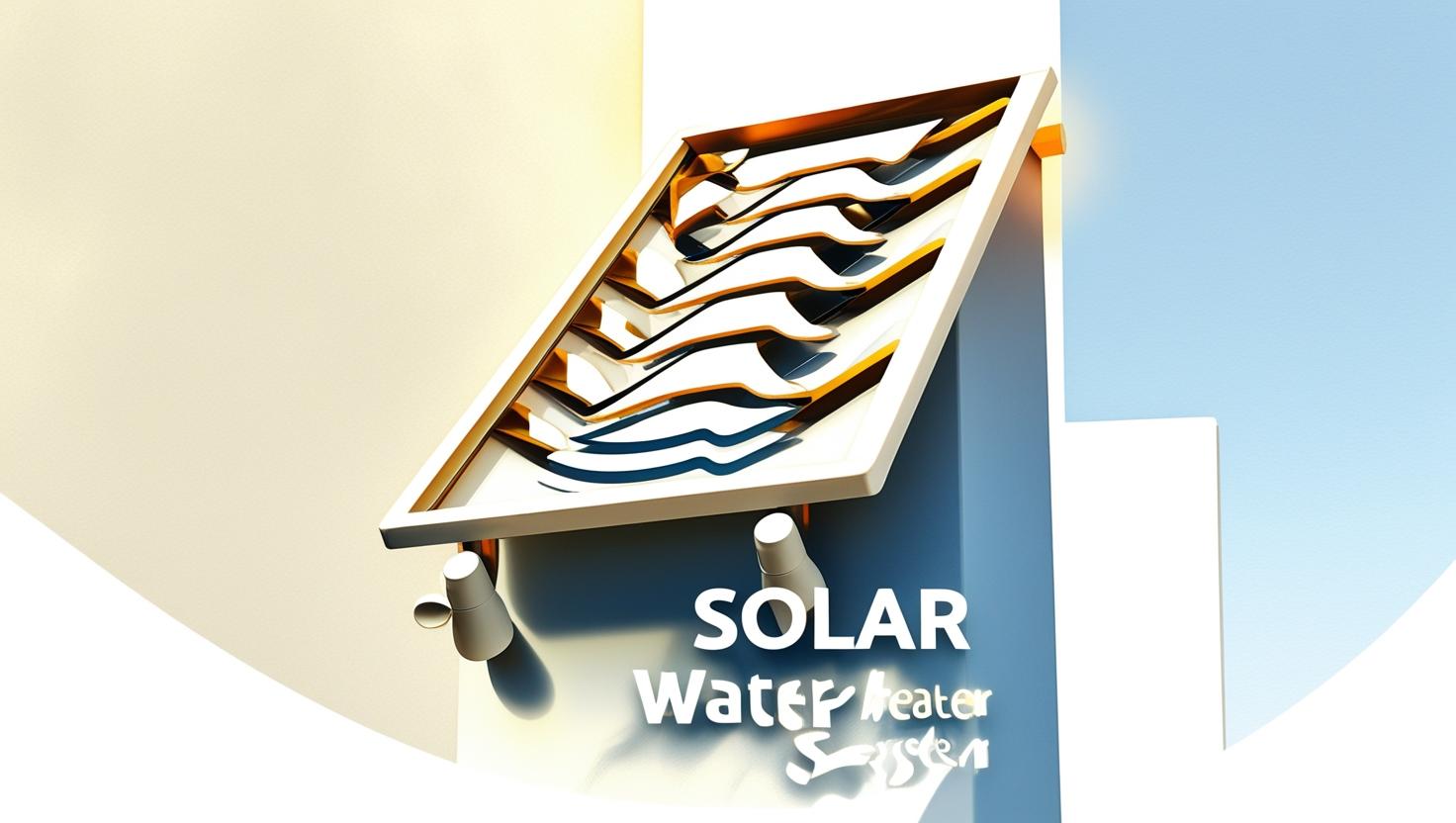 Enter
EnterWhen you enter into the world of solar water heaters, there are some important choices to make. Start by picking the energy type that suits your needs best. Our products are crafted to withstand diverse weather conditions, ensuring longevity without frequent replacements or significant reinvestments.
-
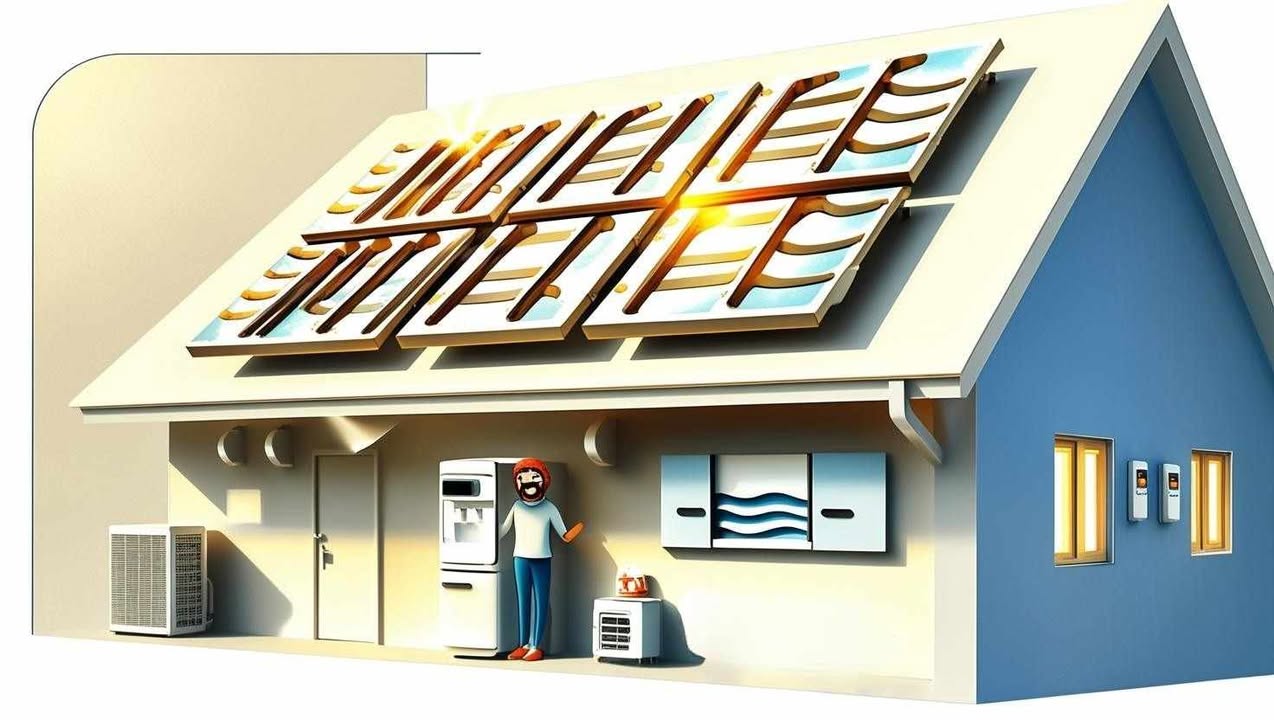 Empower Your Home.
Empower Your Home.In Germany on average, individuals need 600 to 800 kWh of energy per year for hot water, equating to around 1.65 to 2.2 kWh per day per person. In the context of a four-person household, this means an annual energy requirement ranging from 2400 to 3200 kWh solely for hot water production. Understanding these figures is crucial for managing energy.
-
 For Professionals
For ProfessionalsUpgrade your Business with Solar water heaters and save on energy costs. Discover exclusive deals for professionals and unlock remarkable savings.
Exclusive Packages with great discounts.
Elevate your business to new heights by embracing solar water heaters tailored for the unique demands of hotels and enterprises. -
 Crafting Your Solar Water Heating Solution
Crafting Your Solar Water Heating SolutionOrder and Shipping Method in 6 Simple Steps:
Step 1: Optimal Energy Configuration
Step 2: Budget and Hot Water Needs Assessment
Step 3: Select Your Water Tank Material
Step 4: Explore Premium Solar Collectors
Step 5: Craft Your Ideal Package
Step 6: Effortless Delivery
-
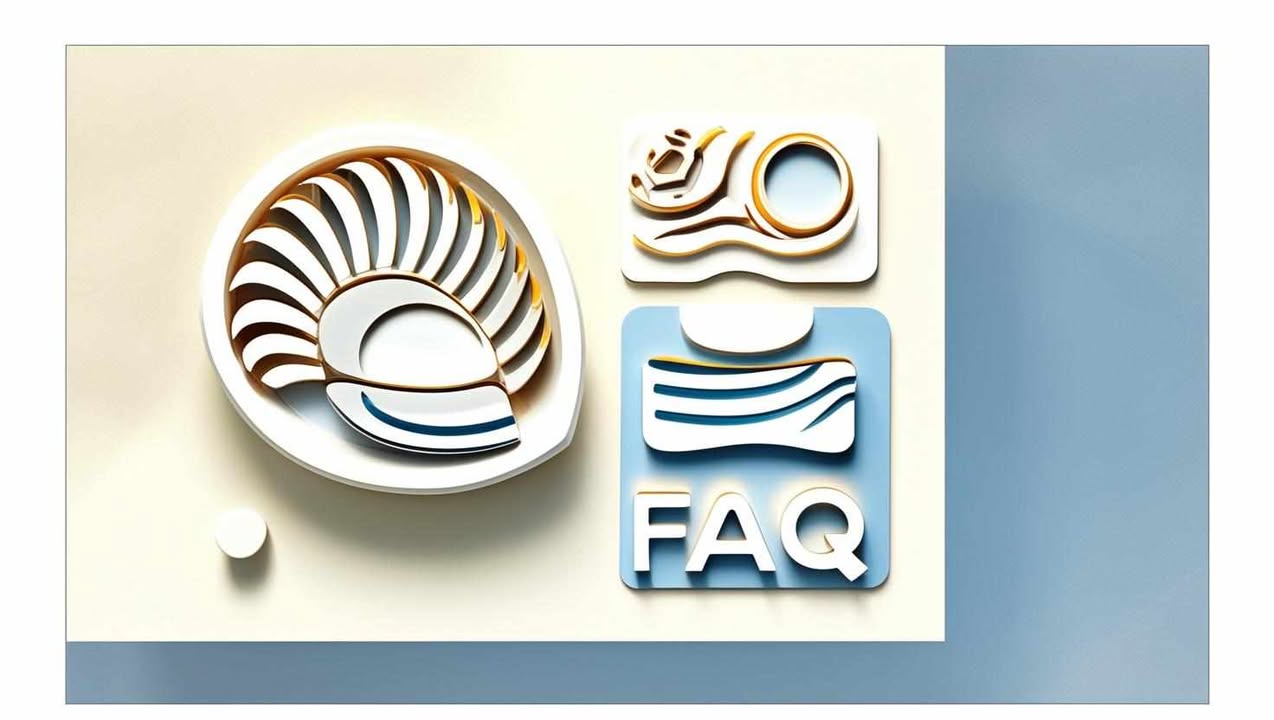 Read more
Read moreFreguently Asked Questions:
1. What is solar water heating? Solar water heating uses solar energy to heat water for domestic use and space heating.
2. What are the primary benefits of solar water heating? Solar water heating offers advantages like decreased dependence on traditional energy sources, cost savings, and reduced carbon emissions.
Top Frequent Questions about solar water heaters
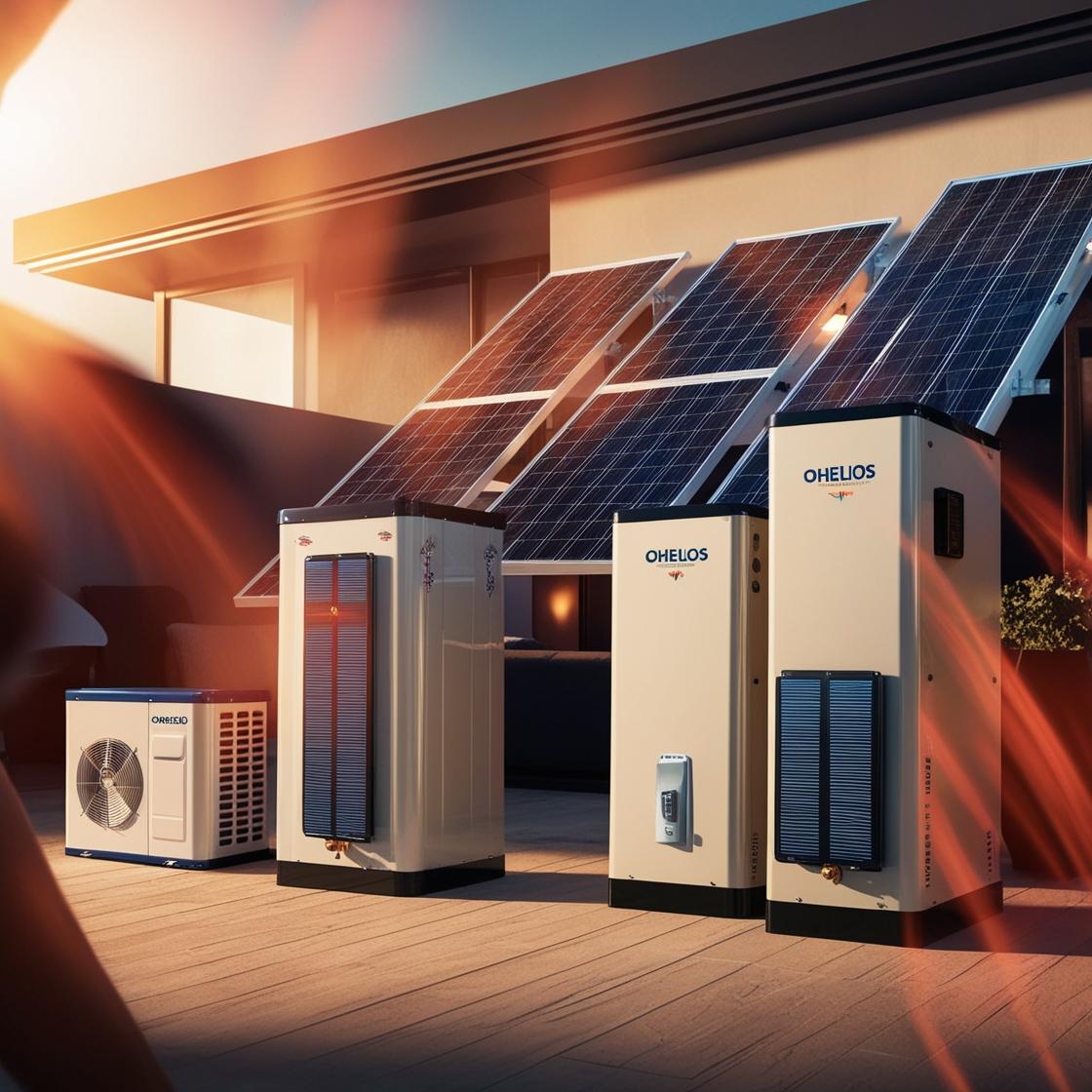
Why schould i choose a solar water heater made of copper ?
1. Efficiency of Copper:
Copper's exceptional thermal conductivity ensures rapid heat transfer, leading to efficient water heating and reduced energy consumption.
2. Durability and Longevity: Copper is highly resistant to corrosion and deterioration, ensuring a long lifespan for your solar water heater system.
3. Reliable Performance: The durability of copper guarantees consistent and reliable performance over the years, ensuring a steady supply of hot water.
4. Environmental Sustainability: Opting for a copper solar water heater contributes to sustainable energy use, reducing your carbon footprint and reliance on non-renewable resources.
5. High Pressure Resistance: Copper solar water heaters are designed to withstand high water pressures, providing safety and longevity to your system.
6. Adaptability to Existing Systems: Copper solar water heaters can be seamlessly integrated into your current water supply and heating systems, enhancing their efficiency.
7. Superior Heat Transfer: Copper's excellent thermal conductivity enables rapid heat absorption and transfer, resulting in quicker water heating.
8. Health and Safety: Copper is a biostatic material, inhibiting the growth of harmful microorganisms and ensuring clean, safe hot water for your family.
9. Low Maintenance: Due to its corrosion resistance, copper solar water heaters require minimal maintenance, saving you time and money.
10. Resilience to Extreme Conditions: Copper's resilience to high temperatures and adverse weather conditions ensures optimal performance even in challenging environments.
11. Consistent Water Temperature: The efficient heat transfer capabilities of copper maintain a stable water temperature, eliminating fluctuations during usage.
12. Cost Savings: A copper solar water heater significantly reduces your energy bills by utilizing free solar energy to heat water.
13. Minimal Heat Loss: Copper's low heat loss properties guarantee that the hot water remains hot, even when stored in the tank for extended periods.
14. Economic Investment: The extended lifespan and energy savings of a copper solar water heater make it a cost-effective long-term investment.
15. Compatibility with Water Chemistry: Copper's compatibility with various water qualities ensures that the solar water heater maintains its performance over time.
16. Versatile Installation: Copper solar water heaters can be installed in various locations, such as rooftops or open spaces, maximizing energy absorption.
17. Quick Payback Period: The energy savings generated by a copper solar water heater result in a swift return on your initial investment.
18. Reduced Reliance on Fossil Fuels: Choosing copper solar heating reduces dependence on fossil fuels, promoting a cleaner and greener energy future.
19. Flexibility in System Size: Copper solar water heaters come in various sizes, allowing you to choose the capacity that suits your household's needs.
20. Supporting Renewable Energy: By opting for a copper solar water heater, you actively contribute to the adoption of renewable energy solutions and global sustainability.
The benefits of choosing a solar water heater made of steel plate ?
Robust Durability: Steel plate construction ensures a sturdy and resilient solar water heater system that can withstand the test of time and various environmental conditions.
Affordability: Solar water heaters made of steel plate offer an economical option without compromising on efficiency and performance, making them a cost-effective investment.
Corrosion Resistance: Modern steel plate materials are treated with anti-corrosive coatings, ensuring long-lasting performance even in areas with harsh water conditions.
High Heat Absorption: Steel plate absorbs solar heat effectively, transferring it to the water quickly and efficiently for consistent and rapid water heating.
Adaptable Design: Solar water heaters with steel plate components can be customized to fit various installation spaces, making them suitable for diverse architectural requirements.
Easy Maintenance: Steel plate solar water heaters typically require minimal maintenance, saving you time and effort while providing consistent hot water.
Energy Efficiency: The effective heat absorption and transfer properties of steel plate ensure optimal energy conversion, leading to reduced energy consumption.
Enhanced Heat Retention: Steel plate's ability to retain heat contributes to keeping your hot water at the desired temperature for extended periods.
Sustainable Choice: Opting for a steel plate solar water heater aligns with your commitment to sustainable living by reducing reliance on conventional energy sources.
Proven Reliability: Solar water heaters made of steel plate have a proven track record of providing dependable hot water solutions for residential and commercial applications.
How can i potect the copper tank of th solar water heater from corrossion ?
Protection of the Buyer from Copper Corrosion in Solar Water Heaters
The use of solar thermal energy for water heating constitutes a reliable, sustainable, and economically beneficial system, widely applied in buildings across central Europe. However, environmental conditions can impact the durability and lifespan of copper, the primary material used in the construction of hot water storage tanks. In this context, buyers of solar water heaters can take measures to ensure the longevity and uninterrupted operation of their systems.
One of the factors that can affect copper corrosion is water quality. Specifically, water composition and ion content can influence the rate of corrosion. The presence of salts and metals in the water can increase the risk of corrosion, while adjusting the chemical composition of the water can mitigate material degradation. Therefore, the application of water filters or softeners can serve as an effective preventative method.
Furthermore, safeguarding copper can be achieved through the application of specialized protective coatings on the material. These coatings may include protective layers that resist corrosion and the formation of oxides. Anti-corrosive materials can be applied to the interior of the storage tank to shield the copper surface from hot water.
Additionally, regular maintenance of the solar water heater and professional system checks by specialized technicians are crucial. A maintenance program can encompass water quality checks, cleaning of collectors from potential salt or other impurities, as well as monitoring the proper function of protective coatings if present.
In conclusion, safeguarding copper in solar water heaters is essential for maintaining uninterrupted device functionality and ensuring its longevity. By implementing preventative measures such as adjusting water composition, using anti-corrosive protective coatings, and adhering to regular maintenance, buyers can ensure effective operation and an extended lifespan for their solar water heaters, while simultaneously harnessing the advantages of solar energy for water heating in their homes.
What are the peculiarities of Germany's water, for example.
Water in Germany is commonly characterized as "hard water." This means that the water contains high levels of calcium and magnesium, as well as other metal ions. Elevated concentrations of these metals in the water can have implications for water quality and the performance of solar water heaters.
Hard water can cause issues for solar water heaters with copper tanks, as it can lead to calcium and magnesium salts depositing within the tank's interior, creating a phenomenon known as "scaling." This can reduce the efficiency of heat transfer and increase the risk of copper corrosion.
To address these issues, it can be crucial to use proper water disinfection systems, reverse osmosis, or other water technologies that can reduce calcium and magnesium levels. Additionally, regular maintenance and cleaning of the interior tank can help prevent scaling and corrosion.
It's important to note that water quality can vary by region in Germany, and for this reason, it's essential to consider local conditions and take into account appropriate maintenance and protection methods for the solar water heater.
What is the difference between a solar water heater with the water tank outdoor and an other one where the water tank is located inside the house ?
The primary difference between a solar water heater with the water tank located outdoors and one where the water tank is situated inside the house lies in the placement of the tank and its associated advantages and considerations:
1. Outdoor Water Tank:
- In a solar water heater system with the water tank placed outdoors, the tank is typically installed on the roof or an elevated platform to maximize exposure to sunlight.
- This setup minimizes the length of piping required to transport hot water to the point of use, reducing heat loss and improving energy efficiency.
- It can be more cost-effective to install because it eliminates the need for additional space within the house for the water tank.
- However, in colder climates, there may be a risk of freezing during winter months unless the system is designed with appropriate insulation or equipped with a freeze protection mechanism.
2. Indoor Water Tank:
- With an indoor water tank setup, the tank is usually installed within the house, often in a utility room, basement, or other designated space.
- This arrangement may be preferred in regions with harsh winters or extreme weather conditions, as it protects the tank from freezing temperatures.
- It may require more complex plumbing and installation to connect the solar panels on the roof to the indoor tank, potentially increasing installation costs.
- While indoor placement offers protection from freezing, it may also lead to slightly higher energy consumption due to heat loss through the piping network between the roof-mounted solar panels and the indoor tank.
In summary, the choice between an outdoor and indoor water tank for a solar water heater depends on factors such as climate, available space, installation costs, and energy efficiency considerations.
Why opt for a solar water heater equipped with a backup heating element?
A backup heating element ensures hot water availability during periods of low sunlight or high demand.
It provides peace of mind, especially in areas with inconsistent weather patterns or during extended periods of cloudy days.
The backup heating element allows for greater flexibility in water heating, enabling users to meet their hot water needs regardless of solar availability.
It can help reduce energy costs by supplementing solar heating with electricity only when necessary.
All Solar Water Heaters:
The prices below are retail sales and refer to a single order, also they include VAT but do not include transportation costs. For the transportation costs we calculate through the address at the checkout. For wholesale prices for businesses, please contact us and receive further reductions.
-
Subsidies Advisory Service 2025
Vendor:OHELIOS ServicesRegular price From €0,00 EURRegular priceUnit price / perSubsidies Advisory Service 2025
Regular price From €0,00 EURRegular priceUnit price / perSubsidies Advisory Service 2025
Regular price From €0,00 EURRegular priceUnit price / per -
Technical Installation per Solar Water Heater from
Vendor:Professional Associates of OHELIOSRegular price €120,00 EURRegular priceUnit price / per -
Solar water heater - 120L/ 160L - Sonne NV120-160D - Vertical Single Collector (1,5-1,7m²/2,3-2,40m²) - Dual-Energy
Vendor:SonneRegular price From €660,00 EURRegular priceUnit price / per€825,00 EURSale price From €660,00 EURSolar water heater - 120L/ 160L - Sonne NV120-160D - Vertical Single Collector (1,5-1,7m²/2,3-2,40m²) - Dual-Energy
Regular price From €660,00 EURRegular priceUnit price / per€825,00 EURSale price From €660,00 EURSolar water heater - 120L/ 160L - Sonne NV120-160D - Vertical Single Collector (1,5-1,7m²/2,3-2,40m²) - Dual-Energy
Regular price From €660,00 EURRegular priceUnit price / per€825,00 EURSale price From €660,00 EURSale -
Solar water heater - 120L/ 160L- Sonne NV120-160T - Vertical Single Collector (1,5-1,7m²/2,3-2,40m²) - Triple-Energy
Vendor:SonneRegular price From €728,00 EURRegular priceUnit price / per€910,00 EURSale price From €728,00 EURSolar water heater - 120L/ 160L- Sonne NV120-160T - Vertical Single Collector (1,5-1,7m²/2,3-2,40m²) - Triple-Energy
Regular price From €728,00 EURRegular priceUnit price / per€910,00 EURSale price From €728,00 EURSolar water heater - 120L/ 160L- Sonne NV120-160T - Vertical Single Collector (1,5-1,7m²/2,3-2,40m²) - Triple-Energy
Regular price From €728,00 EURRegular priceUnit price / per€910,00 EURSale price From €728,00 EURSale -
Solar water heater - 120L- Sonne LV120D - Low Profile - Vertical Single Collector (1,5-1,7m²) - Dual-Energy
Vendor:SonneRegular price From €788,00 EURRegular priceUnit price / per€985,00 EURSale price From €788,00 EURSolar water heater - 120L- Sonne LV120D - Low Profile - Vertical Single Collector (1,5-1,7m²) - Dual-Energy
Regular price From €788,00 EURRegular priceUnit price / per€985,00 EURSale price From €788,00 EURSolar water heater - 120L- Sonne LV120D - Low Profile - Vertical Single Collector (1,5-1,7m²) - Dual-Energy
Regular price From €788,00 EURRegular priceUnit price / per€985,00 EURSale price From €788,00 EURSale -
Solar water heater - 160L - Sonne NH160DTTHP - Horizontal Single Collector (2,4m²) - Dual/ Triple/ Triple-Energy for Heat-Pump
Vendor:SonneRegular price From €844,00 EURRegular priceUnit price / per€1.055,00 EURSale price From €844,00 EURSolar water heater - 160L - Sonne NH160DTTHP - Horizontal Single Collector (2,4m²) - Dual/ Triple/ Triple-Energy for Heat-Pump
Regular price From €844,00 EURRegular priceUnit price / per€1.055,00 EURSale price From €844,00 EURSolar water heater - 160L - Sonne NH160DTTHP - Horizontal Single Collector (2,4m²) - Dual/ Triple/ Triple-Energy for Heat-Pump
Regular price From €844,00 EURRegular priceUnit price / per€1.055,00 EURSale price From €844,00 EURSale -
Solar water heater - 200L- Sonne NV200DTTHP - Vertical Single Collector (2,3/2,4m²) - Dual/ Triple/ Triple-Energy for Heat-Pump
Vendor:SonneRegular price From €848,00 EURRegular priceUnit price / per€1.060,00 EURSale price From €848,00 EURSolar water heater - 200L- Sonne NV200DTTHP - Vertical Single Collector (2,3/2,4m²) - Dual/ Triple/ Triple-Energy for Heat-Pump
Regular price From €848,00 EURRegular priceUnit price / per€1.060,00 EURSale price From €848,00 EURSolar water heater - 200L- Sonne NV200DTTHP - Vertical Single Collector (2,3/2,4m²) - Dual/ Triple/ Triple-Energy for Heat-Pump
Regular price From €848,00 EURRegular priceUnit price / per€1.060,00 EURSale price From €848,00 EURSale -
Solar water heater - 120L- Sonne LV120T - Low Profile - Vertical Single Collector (1,5-1,7m²) - Triple-Energy
Vendor:SonneRegular price From €856,00 EURRegular priceUnit price / per€1.070,00 EURSale price From €856,00 EURSolar water heater - 120L- Sonne LV120T - Low Profile - Vertical Single Collector (1,5-1,7m²) - Triple-Energy
Regular price From €856,00 EURRegular priceUnit price / per€1.070,00 EURSale price From €856,00 EURSolar water heater - 120L- Sonne LV120T - Low Profile - Vertical Single Collector (1,5-1,7m²) - Triple-Energy
Regular price From €856,00 EURRegular priceUnit price / per€1.070,00 EURSale price From €856,00 EURSale -
Solar water heater - 200L- Sonne NV200D - Vertical Double Collectors (3-3,4m²) - Dual-Energy
Vendor:SonneRegular price From €916,00 EURRegular priceUnit price / per€1.465,00 EURSale price From €916,00 EURSolar water heater - 200L- Sonne NV200D - Vertical Double Collectors (3-3,4m²) - Dual-Energy
Regular price From €916,00 EURRegular priceUnit price / per€1.465,00 EURSale price From €916,00 EURSolar water heater - 200L- Sonne NV200D - Vertical Double Collectors (3-3,4m²) - Dual-Energy
Regular price From €916,00 EURRegular priceUnit price / per€1.465,00 EURSale price From €916,00 EURSale -
Solar water heater - 160L - Sonne NV160THP - Vertical Single/ Double Collectors (2,3-3,4m²) - Triple-Energy for Heat Pump
Vendor:SonneRegular price From €996,00 EURRegular priceUnit price / per€1.245,00 EURSale price From €996,00 EURSolar water heater - 160L - Sonne NV160THP - Vertical Single/ Double Collectors (2,3-3,4m²) - Triple-Energy for Heat Pump
Regular price From €996,00 EURRegular priceUnit price / per€1.245,00 EURSale price From €996,00 EURSolar water heater - 160L - Sonne NV160THP - Vertical Single/ Double Collectors (2,3-3,4m²) - Triple-Energy for Heat Pump
Regular price From €996,00 EURRegular priceUnit price / per€1.245,00 EURSale price From €996,00 EURSale -
Solar water heater - 160L- Sonne LH160D - Low Profile - Horizontal Single Collector (2,3-2,4m²) - Dual-Energy
Vendor:SonneRegular price From €1.004,00 EURRegular priceUnit price / per€1.255,00 EURSale price From €1.004,00 EURSolar water heater - 160L- Sonne LH160D - Low Profile - Horizontal Single Collector (2,3-2,4m²) - Dual-Energy
Regular price From €1.004,00 EURRegular priceUnit price / per€1.255,00 EURSale price From €1.004,00 EURSolar water heater - 160L- Sonne LH160D - Low Profile - Horizontal Single Collector (2,3-2,4m²) - Dual-Energy
Regular price From €1.004,00 EURRegular priceUnit price / per€1.255,00 EURSale price From €1.004,00 EURSale -
Solar water heater - 200L- Sonne NV200T - Vertical Double Collectors (3-3,4m²) - Triple-Energy
Vendor:SonneRegular price From €1.068,00 EURRegular priceUnit price / per€1.335,00 EURSale price From €1.068,00 EURSolar water heater - 200L- Sonne NV200T - Vertical Double Collectors (3-3,4m²) - Triple-Energy
Regular price From €1.068,00 EURRegular priceUnit price / per€1.335,00 EURSale price From €1.068,00 EURSolar water heater - 200L- Sonne NV200T - Vertical Double Collectors (3-3,4m²) - Triple-Energy
Regular price From €1.068,00 EURRegular priceUnit price / per€1.335,00 EURSale price From €1.068,00 EURSale -
Solar water heater - 160L- Sonne LH160T - Low Profile - Single Collector Horizontal (2.3-2,4m²) - Triple-Energy
Vendor:SonneRegular price From €1.084,00 EURRegular priceUnit price / per€1.355,00 EURSale price From €1.084,00 EURSolar water heater - 160L- Sonne LH160T - Low Profile - Single Collector Horizontal (2.3-2,4m²) - Triple-Energy
Regular price From €1.084,00 EURRegular priceUnit price / per€1.355,00 EURSale price From €1.084,00 EURSolar water heater - 160L- Sonne LH160T - Low Profile - Single Collector Horizontal (2.3-2,4m²) - Triple-Energy
Regular price From €1.084,00 EURRegular priceUnit price / per€1.355,00 EURSale price From €1.084,00 EURSale -
Solar water heater - 200L- Sonne LV200D - Low Profile - Vertical Double Collectors (3-3,4m²) - Dual-Energy
Vendor:SonneRegular price From €1.152,00 EURRegular priceUnit price / per€1.440,00 EURSale price From €1.152,00 EURSolar water heater - 200L- Sonne LV200D - Low Profile - Vertical Double Collectors (3-3,4m²) - Dual-Energy
Regular price From €1.152,00 EURRegular priceUnit price / per€1.440,00 EURSale price From €1.152,00 EURSolar water heater - 200L- Sonne LV200D - Low Profile - Vertical Double Collectors (3-3,4m²) - Dual-Energy
Regular price From €1.152,00 EURRegular priceUnit price / per€1.440,00 EURSale price From €1.152,00 EURSale -
Solar water heater - 200L- Sonne NV200THP - Vertical Double Collectors (3-3,4m²) - Triple-Energy for Heat Pump
Vendor:SonneRegular price From €1.196,00 EURRegular priceUnit price / per€1.495,00 EURSale price From €1.196,00 EURSolar water heater - 200L- Sonne NV200THP - Vertical Double Collectors (3-3,4m²) - Triple-Energy for Heat Pump
Regular price From €1.196,00 EURRegular priceUnit price / per€1.495,00 EURSale price From €1.196,00 EURSolar water heater - 200L- Sonne NV200THP - Vertical Double Collectors (3-3,4m²) - Triple-Energy for Heat Pump
Regular price From €1.196,00 EURRegular priceUnit price / per€1.495,00 EURSale price From €1.196,00 EURSale -
Solar water heater - 160L- Sonne LH160THP -Low Profile - Horizontal Single Collector (2,3-2,4m²) - Triple-Energy for Heat Pump
Vendor:SonneRegular price From €1.204,00 EURRegular priceUnit price / per€1.505,00 EURSale price From €1.204,00 EURSolar water heater - 160L- Sonne LH160THP -Low Profile - Horizontal Single Collector (2,3-2,4m²) - Triple-Energy for Heat Pump
Regular price From €1.204,00 EURRegular priceUnit price / per€1.505,00 EURSale price From €1.204,00 EURSolar water heater - 160L- Sonne LH160THP -Low Profile - Horizontal Single Collector (2,3-2,4m²) - Triple-Energy for Heat Pump
Regular price From €1.204,00 EURRegular priceUnit price / per€1.505,00 EURSale price From €1.204,00 EURSale -
Solar water heater - 200L- Sonne LV200T - Low Profile- Vertical Double Collectors (3-3,4m²) - Triple-Energy
Vendor:SonneRegular price From €1.252,00 EURRegular priceUnit price / per€1.565,00 EURSale price From €1.252,00 EURSolar water heater - 200L- Sonne LV200T - Low Profile- Vertical Double Collectors (3-3,4m²) - Triple-Energy
Regular price From €1.252,00 EURRegular priceUnit price / per€1.565,00 EURSale price From €1.252,00 EURSolar water heater - 200L- Sonne LV200T - Low Profile- Vertical Double Collectors (3-3,4m²) - Triple-Energy
Regular price From €1.252,00 EURRegular priceUnit price / per€1.565,00 EURSale price From €1.252,00 EURSale -
Solar water heater - 300L- Sonne NV300D - Vertical Double Collectors (3,8-4,8m²) - Dual-Energy
Vendor:SonneRegular price From €1.280,00 EURRegular priceUnit price / per€1.600,00 EURSale price From €1.280,00 EURSolar water heater - 300L- Sonne NV300D - Vertical Double Collectors (3,8-4,8m²) - Dual-Energy
Regular price From €1.280,00 EURRegular priceUnit price / per€1.600,00 EURSale price From €1.280,00 EURSolar water heater - 300L- Sonne NV300D - Vertical Double Collectors (3,8-4,8m²) - Dual-Energy
Regular price From €1.280,00 EURRegular priceUnit price / per€1.600,00 EURSale price From €1.280,00 EURSale -
Solar water heater - 200L- Sonne LV200THP - Low Profile - Vertical Double Collectors (3-3,4m²) - Triple-Energy for Heat Pump
Vendor:SonneRegular price From €1.380,00 EURRegular priceUnit price / per€1.725,00 EURSale price From €1.380,00 EURSolar water heater - 200L- Sonne LV200THP - Low Profile - Vertical Double Collectors (3-3,4m²) - Triple-Energy for Heat Pump
Regular price From €1.380,00 EURRegular priceUnit price / per€1.725,00 EURSale price From €1.380,00 EURSolar water heater - 200L- Sonne LV200THP - Low Profile - Vertical Double Collectors (3-3,4m²) - Triple-Energy for Heat Pump
Regular price From €1.380,00 EURRegular priceUnit price / per€1.725,00 EURSale price From €1.380,00 EURSale -
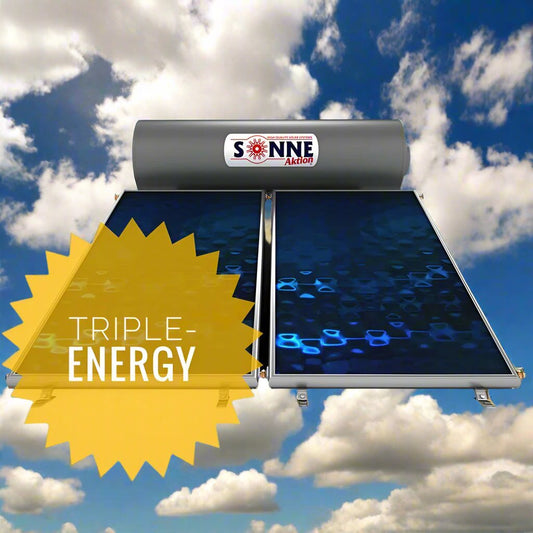
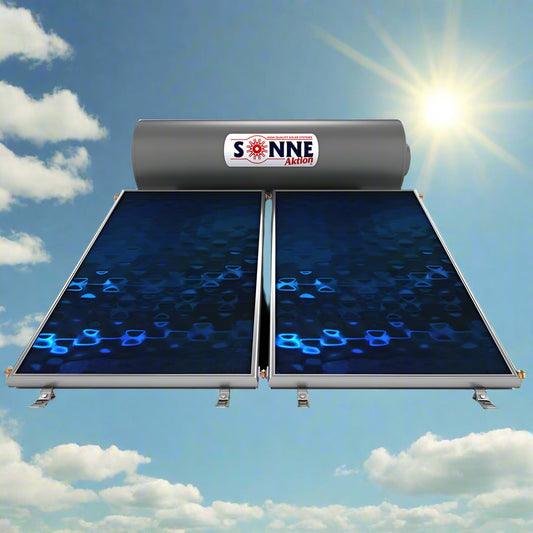
Solar water heater - 300L- Sonne NV300T - Vertical Double Collectors (3,8-4,8m²) - Triple-Energy
Vendor:SonneRegular price From €1.400,00 EURRegular priceUnit price / per€1.750,00 EURSale price From €1.400,00 EURSolar water heater - 300L- Sonne NV300T - Vertical Double Collectors (3,8-4,8m²) - Triple-Energy
Regular price From €1.400,00 EURRegular priceUnit price / per€1.750,00 EURSale price From €1.400,00 EURSolar water heater - 300L- Sonne NV300T - Vertical Double Collectors (3,8-4,8m²) - Triple-Energy
Regular price From €1.400,00 EURRegular priceUnit price / per€1.750,00 EURSale price From €1.400,00 EURSale -
Solar water heater - 300L- Sonne LV300D - Low Profile - Vertical Double Collectors (4m²)- Dual-Energy
Vendor:SonneRegular price From €1.488,00 EURRegular priceUnit price / per€1.860,00 EURSale price From €1.488,00 EURSolar water heater - 300L- Sonne LV300D - Low Profile - Vertical Double Collectors (4m²)- Dual-Energy
Regular price From €1.488,00 EURRegular priceUnit price / per€1.860,00 EURSale price From €1.488,00 EURSolar water heater - 300L- Sonne LV300D - Low Profile - Vertical Double Collectors (4m²)- Dual-Energy
Regular price From €1.488,00 EURRegular priceUnit price / per€1.860,00 EURSale price From €1.488,00 EURSale -
Solar water heater - 300L- Sonne NV300THP - Vertical Double Collectors (3,8-4,8m²) - Triple-Energy for Heat Pump
Vendor:SonneRegular price From €1.548,00 EURRegular priceUnit price / per€1.935,00 EURSale price From €1.548,00 EURSolar water heater - 300L- Sonne NV300THP - Vertical Double Collectors (3,8-4,8m²) - Triple-Energy for Heat Pump
Regular price From €1.548,00 EURRegular priceUnit price / per€1.935,00 EURSale price From €1.548,00 EURSolar water heater - 300L- Sonne NV300THP - Vertical Double Collectors (3,8-4,8m²) - Triple-Energy for Heat Pump
Regular price From €1.548,00 EURRegular priceUnit price / per€1.935,00 EURSale price From €1.548,00 EURSale -
Solar water heater - 300L- Sonne LV300T - Low Profile - Vertical Double Collectors (4m²) - Triple-Energy
Vendor:SonneRegular price From €1.608,00 EURRegular priceUnit price / per€2.010,00 EURSale price From €1.608,00 EURSolar water heater - 300L- Sonne LV300T - Low Profile - Vertical Double Collectors (4m²) - Triple-Energy
Regular price From €1.608,00 EURRegular priceUnit price / per€2.010,00 EURSale price From €1.608,00 EURSolar water heater - 300L- Sonne LV300T - Low Profile - Vertical Double Collectors (4m²) - Triple-Energy
Regular price From €1.608,00 EURRegular priceUnit price / per€2.010,00 EURSale price From €1.608,00 EURSale -
Solar water heater - 300L- Sonne LV300THP - Low Profile - Vertical Double Collectors (4m²) - Triple-Energy for Heat Pump
Vendor:SonneRegular price From €1.756,00 EURRegular priceUnit price / per€2.195,00 EURSale price From €1.756,00 EURSolar water heater - 300L- Sonne LV300THP - Low Profile - Vertical Double Collectors (4m²) - Triple-Energy for Heat Pump
Regular price From €1.756,00 EURRegular priceUnit price / per€2.195,00 EURSale price From €1.756,00 EURSolar water heater - 300L- Sonne LV300THP - Low Profile - Vertical Double Collectors (4m²) - Triple-Energy for Heat Pump
Regular price From €1.756,00 EURRegular priceUnit price / per€2.195,00 EURSale price From €1.756,00 EURSale
Central Heating Systems:
The prices below are retail sales and refer to a single order, also they include VAT but do not include transportation costs. For the transportation costs we calculate through the address at the checkout. For wholesale prices for businesses, please contact us and receive further reductions.
-
Subsidies Advisory Service 2025
Vendor:OHELIOS ServicesRegular price From €0,00 EURRegular priceUnit price / perSubsidies Advisory Service 2025
Regular price From €0,00 EURRegular priceUnit price / perSubsidies Advisory Service 2025
Regular price From €0,00 EURRegular priceUnit price / per -
Technical Installation per Solar Water Heater from
Vendor:Professional Associates of OHELIOSRegular price €120,00 EURRegular priceUnit price / per -
Solar Sonne Collector Atlas from 1,5 to 5,7m²
Vendor:SonneRegular price From €192,00 EURRegular priceUnit price / per€240,00 EURSale price From €192,00 EURSolar Sonne Collector Atlas from 1,5 to 5,7m²
Regular price From €192,00 EURRegular priceUnit price / per€240,00 EURSale price From €192,00 EURSolar Sonne Collector Atlas from 1,5 to 5,7m²
Regular price From €192,00 EURRegular priceUnit price / per€240,00 EURSale price From €192,00 EURSale -
Solar Central Heating System Sonne - Steel Plate - 160/ 200/ 300L Tank - (3 -6m² Collectors) - Triple-Energy or for Heat Pump
Vendor:SonneRegular price From €2.064,00 EURRegular priceUnit price / per€2.580,00 EURSale price From €2.064,00 EURSolar Central Heating System Sonne - Steel Plate - 160/ 200/ 300L Tank - (3 -6m² Collectors) - Triple-Energy or for Heat Pump
Regular price From €2.064,00 EURRegular priceUnit price / per€2.580,00 EURSale price From €2.064,00 EURSolar Central Heating System Sonne - Steel Plate - 160/ 200/ 300L Tank - (3 -6m² Collectors) - Triple-Energy or for Heat Pump
Regular price From €2.064,00 EURRegular priceUnit price / per€2.580,00 EURSale price From €2.064,00 EURSale
More Energy Solutions
The prices below are retail sales and refer to a single order, also they include VAT but do not include transportation costs. For the transportation costs we calculate through the address at the checkout. For wholesale prices for businesses, please contact us and receive further reductions.
-
Heat Pump Monoblock Air to Water Mitsubishi Electric Ecodan Zubadan 45 kW
Vendor:MitsubishiRegular price €26.640,00 EURRegular priceUnit price / per€33.300,00 EURSale price €26.640,00 EURSale -
Heat Pump Monoblock Midea Aqua Thermal Super Series 65kW-140kW
Vendor:MideaRegular price From €14.560,00 EURRegular priceUnit price / per€18.200,00 EURSale price From €14.560,00 EURHeat Pump Monoblock Midea Aqua Thermal Super Series 65kW-140kW
Regular price From €14.560,00 EURRegular priceUnit price / per€18.200,00 EURSale price From €14.560,00 EURHeat Pump Monoblock Midea Aqua Thermal Super Series 65kW-140kW
Regular price From €14.560,00 EURRegular priceUnit price / per€18.200,00 EURSale price From €14.560,00 EURSale -
Heat Pump Split Hitachi Yutaki S 80 Single-Phase/Three-Phase, 8kW-16kW
Vendor:HitachiRegular price From €10.445,00 EURRegular priceUnit price / per€13.056,00 EURSale price From €10.445,00 EURHeat Pump Split Hitachi Yutaki S 80 Single-Phase/Three-Phase, 8kW-16kW
Regular price From €10.445,00 EURRegular priceUnit price / per€13.056,00 EURSale price From €10.445,00 EURHeat Pump Split Hitachi Yutaki S 80 Single-Phase/Three-Phase, 8kW-16kW
Regular price From €10.445,00 EURRegular priceUnit price / per€13.056,00 EURSale price From €10.445,00 EURSale -
Heat Pump Monoblock Midea Aqua Tempo Super 32 kW
Vendor:MideaRegular price €9.626,00 EURRegular priceUnit price / per€12.032,00 EURSale price €9.626,00 EURSale -
Heat Pump Monoblock Midea Mars Three-Phase, 30kW-35kW
Vendor:MideaRegular price From €8.837,00 EURRegular priceUnit price / per€11.046,00 EURSale price From €8.837,00 EURHeat Pump Monoblock Midea Mars Three-Phase, 30kW-35kW
Regular price From €8.837,00 EURRegular priceUnit price / per€11.046,00 EURSale price From €8.837,00 EURHeat Pump Monoblock Midea Mars Three-Phase, 30kW-35kW
Regular price From €8.837,00 EURRegular priceUnit price / per€11.046,00 EURSale price From €8.837,00 EURSale -
Heat Pump Split Mitsubishi Ecodun Zubadan+ Hydrobox Single-Phase/ Three-Phase, 6kW-22kW
Vendor:MitsubishiRegular price From €7.999,00 EURRegular priceUnit price / per€9.998,00 EURSale price From €7.999,00 EURHeat Pump Split Mitsubishi Ecodun Zubadan+ Hydrobox Single-Phase/ Three-Phase, 6kW-22kW
Regular price From €7.999,00 EURRegular priceUnit price / per€9.998,00 EURSale price From €7.999,00 EURHeat Pump Split Mitsubishi Ecodun Zubadan+ Hydrobox Single-Phase/ Three-Phase, 6kW-22kW
Regular price From €7.999,00 EURRegular priceUnit price / per€9.998,00 EURSale price From €7.999,00 EURSale -
Heat Pump Split Hitachi Yutaki S Combi Single-Phase/Three-Phase, 8kW-16kW
Vendor:HitachiRegular price From €7.384,00 EURRegular priceUnit price / per€9.230,00 EURSale price From €7.384,00 EURHeat Pump Split Hitachi Yutaki S Combi Single-Phase/Three-Phase, 8kW-16kW
Regular price From €7.384,00 EURRegular priceUnit price / per€9.230,00 EURSale price From €7.384,00 EURHeat Pump Split Hitachi Yutaki S Combi Single-Phase/Three-Phase, 8kW-16kW
Regular price From €7.384,00 EURRegular priceUnit price / per€9.230,00 EURSale price From €7.384,00 EURSale -
Heat Pump Monoblock Daikin Altherma, 3 Colors, Single-Phase/ Three-Phase, 9kW-16kW
Vendor:DaikinRegular price From €6.754,00 EURRegular priceUnit price / per€8.442,00 EURSale price From €6.754,00 EURHeat Pump Monoblock Daikin Altherma, 3 Colors, Single-Phase/ Three-Phase, 9kW-16kW
Regular price From €6.754,00 EURRegular priceUnit price / per€8.442,00 EURSale price From €6.754,00 EURHeat Pump Monoblock Daikin Altherma, 3 Colors, Single-Phase/ Three-Phase, 9kW-16kW
Regular price From €6.754,00 EURRegular priceUnit price / per€8.442,00 EURSale price From €6.754,00 EURSale -
Professional Stand Air-Conditioner Inventor V5MFI-66 55.000 Btu/h
Vendor:InventorRegular price €5.722,00 EURRegular priceUnit price / per€7.439,00 EURSale price €5.722,00 EURSale -
Heat Pump Monoblock MDV M-Thermal Eco Series Three-Phase, 12kW-14kW
Vendor:MDVRegular price From €5.143,00 EURRegular priceUnit price / per€6.428,00 EURSale price From €5.143,00 EURHeat Pump Monoblock MDV M-Thermal Eco Series Three-Phase, 12kW-14kW
Regular price From €5.143,00 EURRegular priceUnit price / per€6.428,00 EURSale price From €5.143,00 EURHeat Pump Monoblock MDV M-Thermal Eco Series Three-Phase, 12kW-14kW
Regular price From €5.143,00 EURRegular priceUnit price / per€6.428,00 EURSale price From €5.143,00 EURSale -
Heat Pump Split Fujitsu Comfort-High-Super Power Series Single-Phase/ Three-Phase, 5kW-17kW
Vendor:FujitsuRegular price From €4.647,00 EURRegular priceUnit price / per€5.808,00 EURSale price From €4.647,00 EURHeat Pump Split Fujitsu Comfort-High-Super Power Series Single-Phase/ Three-Phase, 5kW-17kW
Regular price From €4.647,00 EURRegular priceUnit price / per€5.808,00 EURSale price From €4.647,00 EURHeat Pump Split Fujitsu Comfort-High-Super Power Series Single-Phase/ Three-Phase, 5kW-17kW
Regular price From €4.647,00 EURRegular priceUnit price / per€5.808,00 EURSale price From €4.647,00 EURSale -
Heat Pump Monoblock LG HM (+LG TV 32-43'' FOR FREE) Single-Phase/ Three-Phase, 6kW-16kW
Vendor:LGRegular price From €4.495,00 EURRegular priceUnit price / per€5.618,00 EURSale price From €4.495,00 EURHeat Pump Monoblock LG HM (+LG TV 32-43'' FOR FREE) Single-Phase/ Three-Phase, 6kW-16kW
Regular price From €4.495,00 EURRegular priceUnit price / per€5.618,00 EURSale price From €4.495,00 EURHeat Pump Monoblock LG HM (+LG TV 32-43'' FOR FREE) Single-Phase/ Three-Phase, 6kW-16kW
Regular price From €4.495,00 EURRegular priceUnit price / per€5.618,00 EURSale price From €4.495,00 EURSale -
Heat Pump Split LG THERMA V Hydrosplit Single-Phase/ Three-Phase, 5kW-16kW
Vendor:LGRegular price From €4.490,00 EURRegular priceUnit price / per€5.612,00 EURSale price From €4.490,00 EURHeat Pump Split LG THERMA V Hydrosplit Single-Phase/ Three-Phase, 5kW-16kW
Regular price From €4.490,00 EURRegular priceUnit price / per€5.612,00 EURSale price From €4.490,00 EURHeat Pump Split LG THERMA V Hydrosplit Single-Phase/ Three-Phase, 5kW-16kW
Regular price From €4.490,00 EURRegular priceUnit price / per€5.612,00 EURSale price From €4.490,00 EURSale -
Heat Pump Split Hitachi Yutaki S RWM Single-Phase/Three-Phase, 4kW-18kW
Vendor:HitachiRegular price From €4.448,00 EURRegular priceUnit price / per€5.560,00 EURSale price From €4.448,00 EURHeat Pump Split Hitachi Yutaki S RWM Single-Phase/Three-Phase, 4kW-18kW
Regular price From €4.448,00 EURRegular priceUnit price / per€5.560,00 EURSale price From €4.448,00 EURHeat Pump Split Hitachi Yutaki S RWM Single-Phase/Three-Phase, 4kW-18kW
Regular price From €4.448,00 EURRegular priceUnit price / per€5.560,00 EURSale price From €4.448,00 EURSale -
Heat Pump Sendo Hero XR Single-Phase/ Three-Phase, 13kW-23kW
Vendor:SendoRegular price From €4.381,00 EURRegular priceUnit price / per€5.476,00 EURSale price From €4.381,00 EURHeat Pump Sendo Hero XR Single-Phase/ Three-Phase, 13kW-23kW
Regular price From €4.381,00 EURRegular priceUnit price / per€5.476,00 EURSale price From €4.381,00 EURHeat Pump Sendo Hero XR Single-Phase/ Three-Phase, 13kW-23kW
Regular price From €4.381,00 EURRegular priceUnit price / per€5.476,00 EURSale price From €4.381,00 EURSale -
Heat Pump Sendo Hero XS Single-Phase/ Three-Phase, 8kW-22kW
Vendor:SendoRegular price From €4.320,00 EURRegular priceUnit price / per€5.400,00 EURSale price From €4.320,00 EURHeat Pump Sendo Hero XS Single-Phase/ Three-Phase, 8kW-22kW
Regular price From €4.320,00 EURRegular priceUnit price / per€5.400,00 EURSale price From €4.320,00 EURHeat Pump Sendo Hero XS Single-Phase/ Three-Phase, 8kW-22kW
Regular price From €4.320,00 EURRegular priceUnit price / per€5.400,00 EURSale price From €4.320,00 EURSale -
Heat Pump Split Midea M-Thermal Single-Phase/ Three-Phase, 10kW-16kW
Vendor:MideaRegular price From €4.164,00 EURRegular priceUnit price / per€5.204,00 EURSale price From €4.164,00 EURHeat Pump Split Midea M-Thermal Single-Phase/ Three-Phase, 10kW-16kW
Regular price From €4.164,00 EURRegular priceUnit price / per€5.204,00 EURSale price From €4.164,00 EURHeat Pump Split Midea M-Thermal Single-Phase/ Three-Phase, 10kW-16kW
Regular price From €4.164,00 EURRegular priceUnit price / per€5.204,00 EURSale price From €4.164,00 EURSale -
Heat Pump Monoblock ECONSET Greentherm R290 Single-Phase/ Three-Phase, 8kW-16kW
Vendor:ECONSETRegular price From €4.119,00 EURRegular priceUnit price / per€5.148,00 EURSale price From €4.119,00 EURHeat Pump Monoblock ECONSET Greentherm R290 Single-Phase/ Three-Phase, 8kW-16kW
Regular price From €4.119,00 EURRegular priceUnit price / per€5.148,00 EURSale price From €4.119,00 EURHeat Pump Monoblock ECONSET Greentherm R290 Single-Phase/ Three-Phase, 8kW-16kW
Regular price From €4.119,00 EURRegular priceUnit price / per€5.148,00 EURSale price From €4.119,00 EURSale -
Professional Stand Air-Conditioner Sendo Artemis 50.000 Btu/h
Vendor:SendoRegular price €4.030,00 EURRegular priceUnit price / per€5.239,00 EURSale price €4.030,00 EURSale -
Heat Pump Monoblock Midea Mini Chiller Single-Phase/Three-Phase 7kW-16kW
Vendor:MideaRegular price From €3.882,00 EURRegular priceUnit price / per€4.852,00 EURSale price From €3.882,00 EURHeat Pump Monoblock Midea Mini Chiller Single-Phase/Three-Phase 7kW-16kW
Regular price From €3.882,00 EURRegular priceUnit price / per€4.852,00 EURSale price From €3.882,00 EURHeat Pump Monoblock Midea Mini Chiller Single-Phase/Three-Phase 7kW-16kW
Regular price From €3.882,00 EURRegular priceUnit price / per€4.852,00 EURSale price From €3.882,00 EURSale -
Heat Pump Monoblock ECONSET Hero Plus Single-Phase/ Three-Phase, 8kW-25kW
Vendor:ECONSETRegular price From €3.853,00 EURRegular priceUnit price / per€4.816,00 EURSale price From €3.853,00 EURHeat Pump Monoblock ECONSET Hero Plus Single-Phase/ Three-Phase, 8kW-25kW
Regular price From €3.853,00 EURRegular priceUnit price / per€4.816,00 EURSale price From €3.853,00 EURHeat Pump Monoblock ECONSET Hero Plus Single-Phase/ Three-Phase, 8kW-25kW
Regular price From €3.853,00 EURRegular priceUnit price / per€4.816,00 EURSale price From €3.853,00 EURSale -
Heat Pump Split Hitachi Yutaki AirH2O 400 8kW-16kW
Vendor:HitachiRegular price From €3.836,00 EURRegular priceUnit price / per€4.794,00 EURSale price From €3.836,00 EURHeat Pump Split Hitachi Yutaki AirH2O 400 8kW-16kW
Regular price From €3.836,00 EURRegular priceUnit price / per€4.794,00 EURSale price From €3.836,00 EURHeat Pump Split Hitachi Yutaki AirH2O 400 8kW-16kW
Regular price From €3.836,00 EURRegular priceUnit price / per€4.794,00 EURSale price From €3.836,00 EURSale -
Heat Pump Monoblock Bosch CS2000 AWF Single-Phase/ Three-Phase, 4kW-30kW
Vendor:BoschRegular price From €3.800,00 EURRegular priceUnit price / per€4.750,00 EURSale price From €3.800,00 EURHeat Pump Monoblock Bosch CS2000 AWF Single-Phase/ Three-Phase, 4kW-30kW
Regular price From €3.800,00 EURRegular priceUnit price / per€4.750,00 EURSale price From €3.800,00 EURHeat Pump Monoblock Bosch CS2000 AWF Single-Phase/ Three-Phase, 4kW-30kW
Regular price From €3.800,00 EURRegular priceUnit price / per€4.750,00 EURSale price From €3.800,00 EURSale -

Heat Pump Monoblock/ Split Air to Water Toyotomi Hydria Plus Single-Phase/ Three-Phase, 6kW-16kW
Vendor:ToyotomiRegular price From €3.770,00 EURRegular priceUnit price / per€4.712,00 EURSale price From €3.770,00 EURHeat Pump Monoblock/ Split Air to Water Toyotomi Hydria Plus Single-Phase/ Three-Phase, 6kW-16kW
Regular price From €3.770,00 EURRegular priceUnit price / per€4.712,00 EURSale price From €3.770,00 EURHeat Pump Monoblock/ Split Air to Water Toyotomi Hydria Plus Single-Phase/ Three-Phase, 6kW-16kW
Regular price From €3.770,00 EURRegular priceUnit price / per€4.712,00 EURSale price From €3.770,00 EURSale -
Heat Pump Monoblock Hitachi Yutaki M Single-Phase/ Three-Phase, 4kW-16kW
Vendor:HitachiRegular price From €3.754,00 EURRegular priceUnit price / per€4.692,00 EURSale price From €3.754,00 EURHeat Pump Monoblock Hitachi Yutaki M Single-Phase/ Three-Phase, 4kW-16kW
Regular price From €3.754,00 EURRegular priceUnit price / per€4.692,00 EURSale price From €3.754,00 EURHeat Pump Monoblock Hitachi Yutaki M Single-Phase/ Three-Phase, 4kW-16kW
Regular price From €3.754,00 EURRegular priceUnit price / per€4.692,00 EURSale price From €3.754,00 EURSale
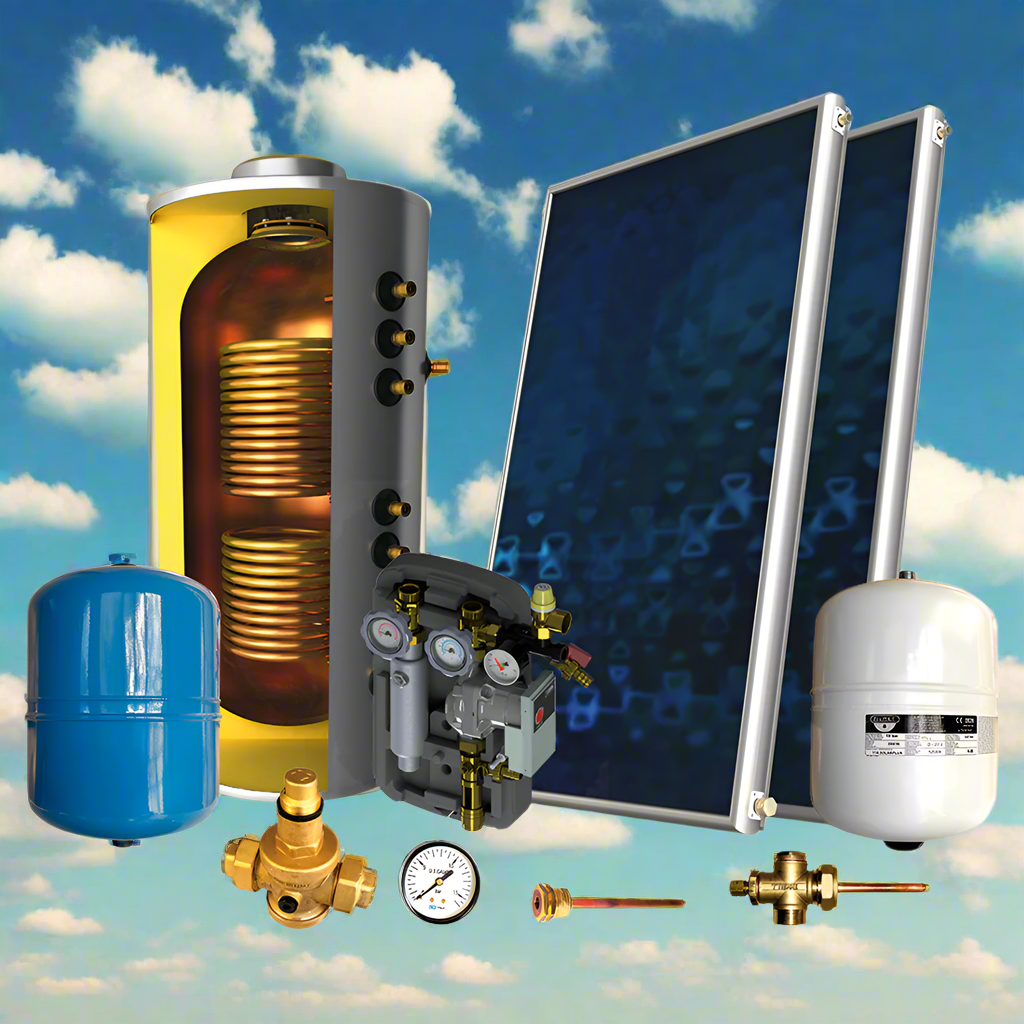
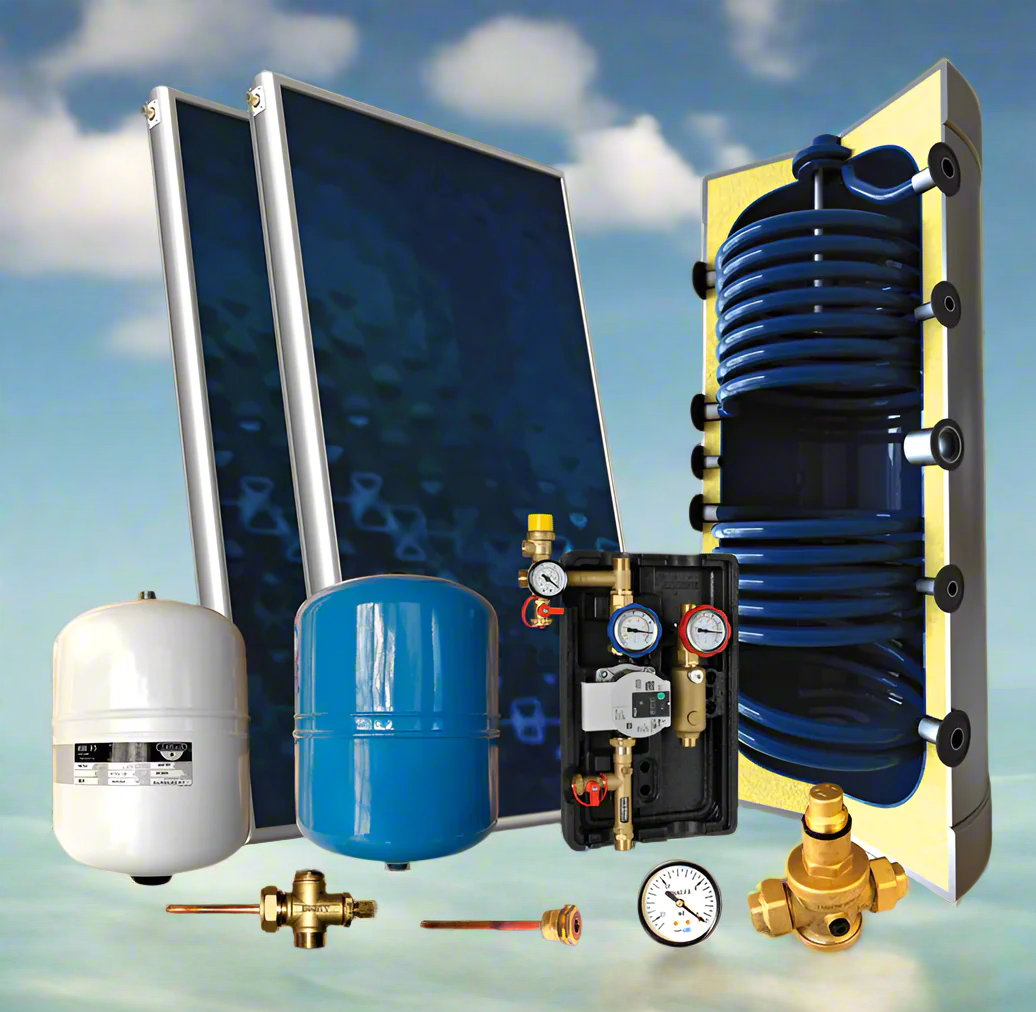
Central Heating Systems
Enhance your central heating system with tank capacities from 160 to 300 liters and collectors ranging from 3 to 6 m² per system. Add extra collectors for improved hot water production in cloudy areas and get the third collector at half price. Choose between a copper water tank or a steel plate water tank for the perfect fit.
Categories
View all-
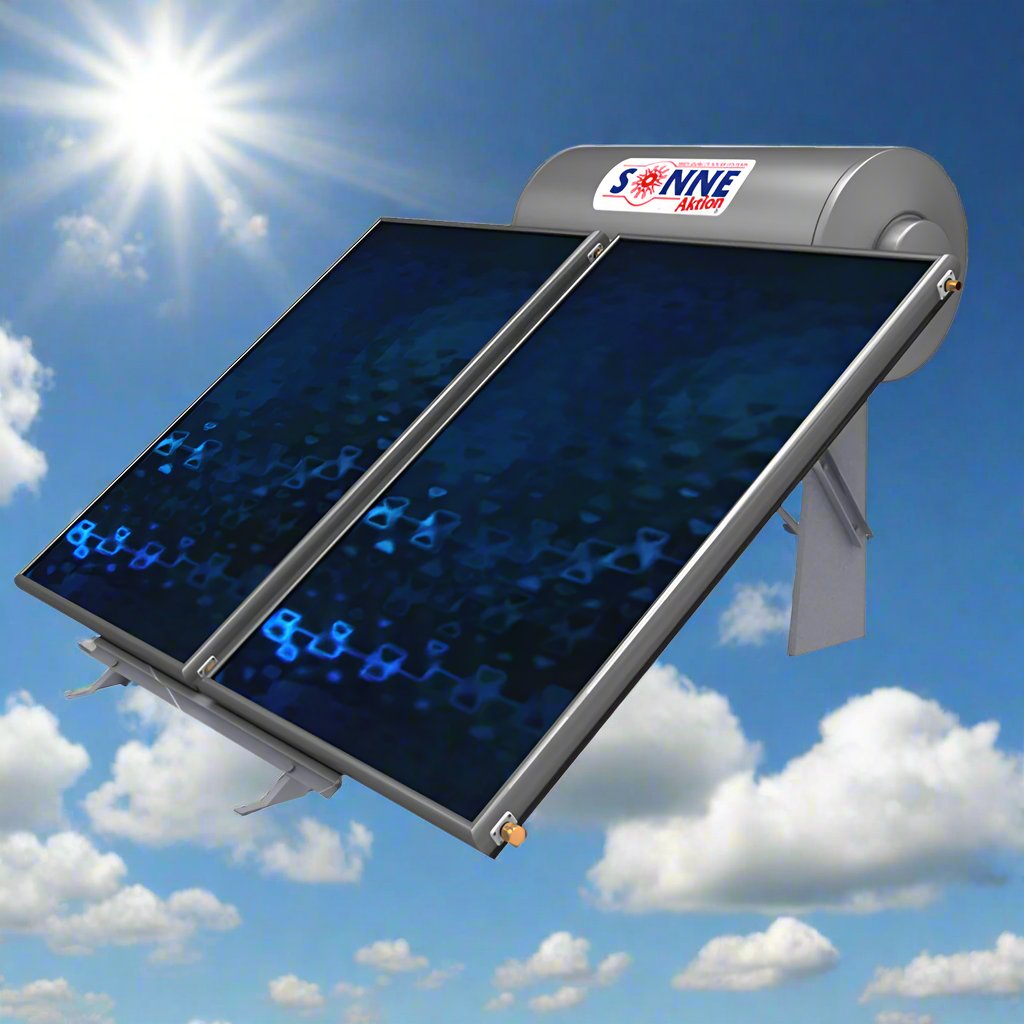
All Solar Water Heaters (Thermoshyphon)
Cut costs in Germany for example by 65-85% on sunny days and...
-
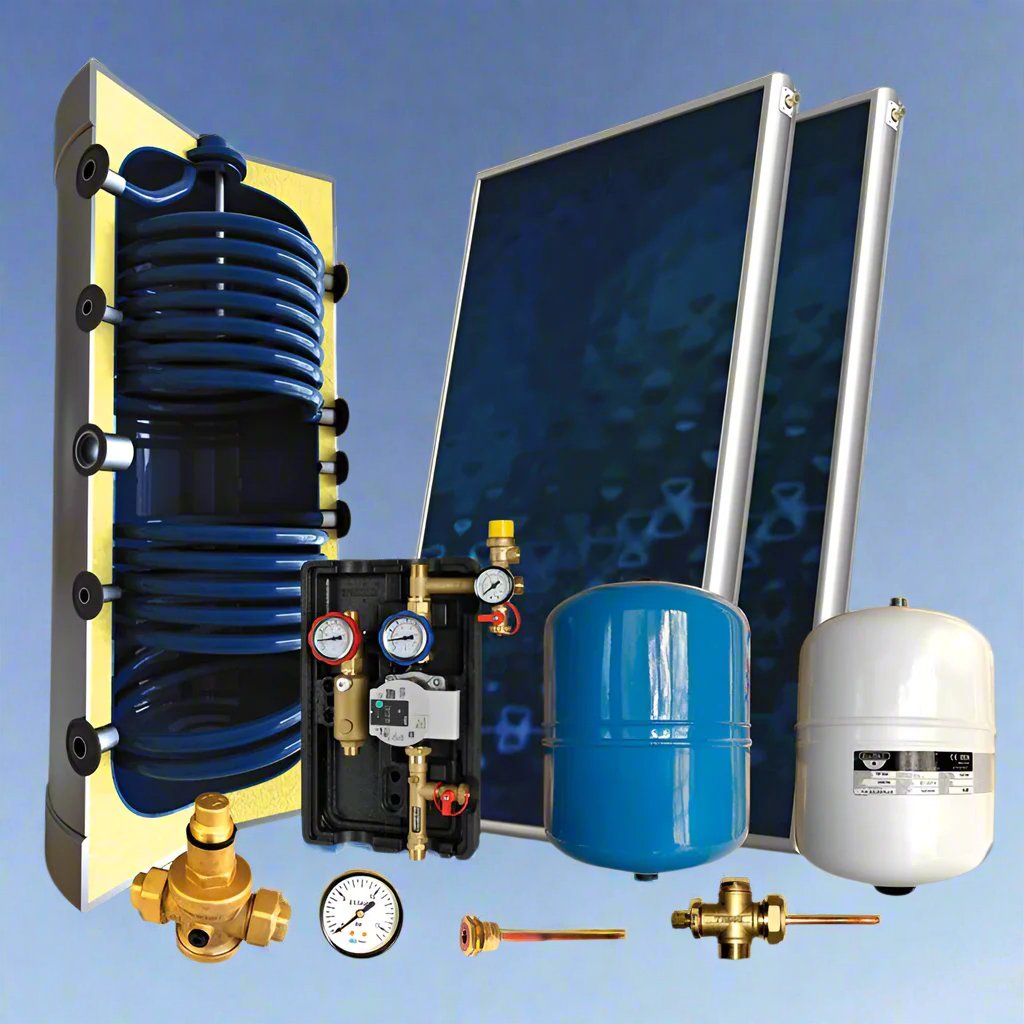
Central Heating Systems made of Steel Plate
Central Heating System with Steel Plate Water Tank: Strength and Reliability with...
-
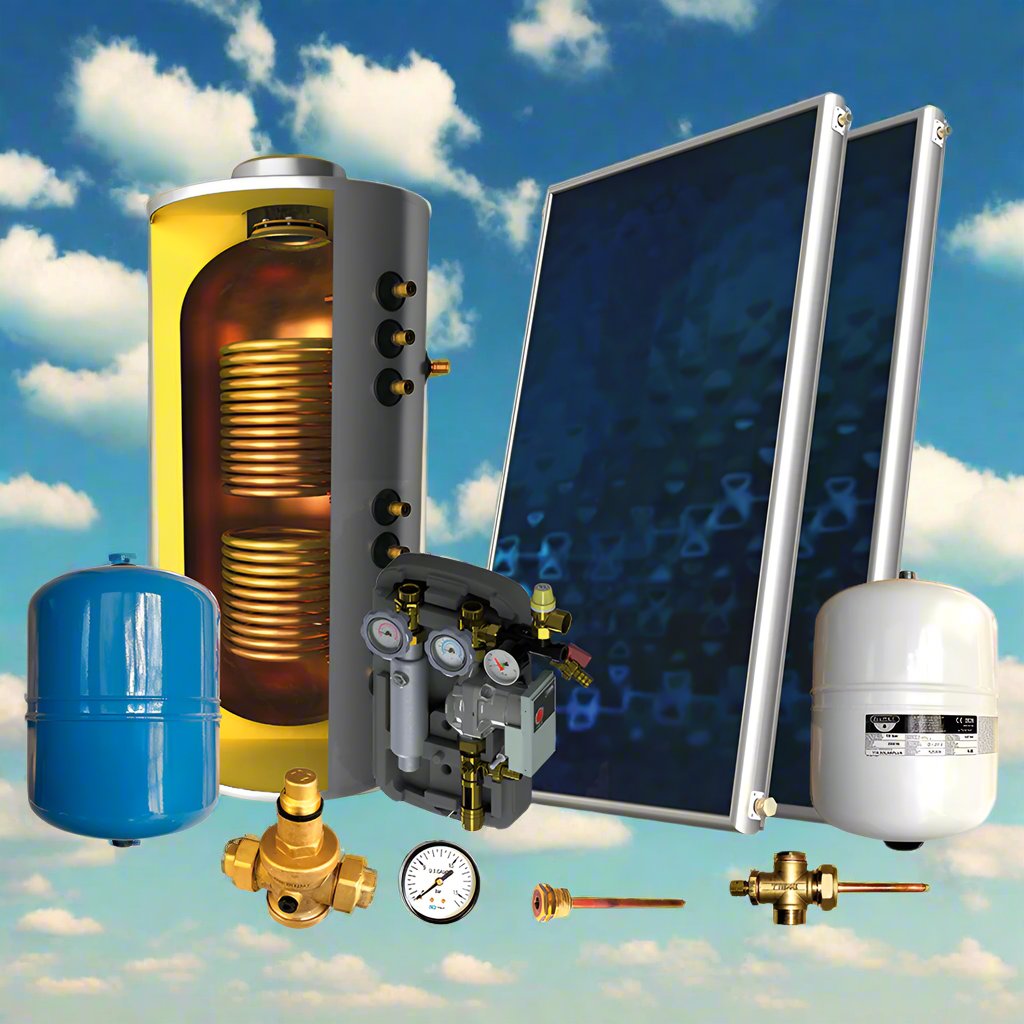
Central Heating System with Copper Water Tank
Elegance Meets Efficiency with Copper Imagine a central heating system where the...
-
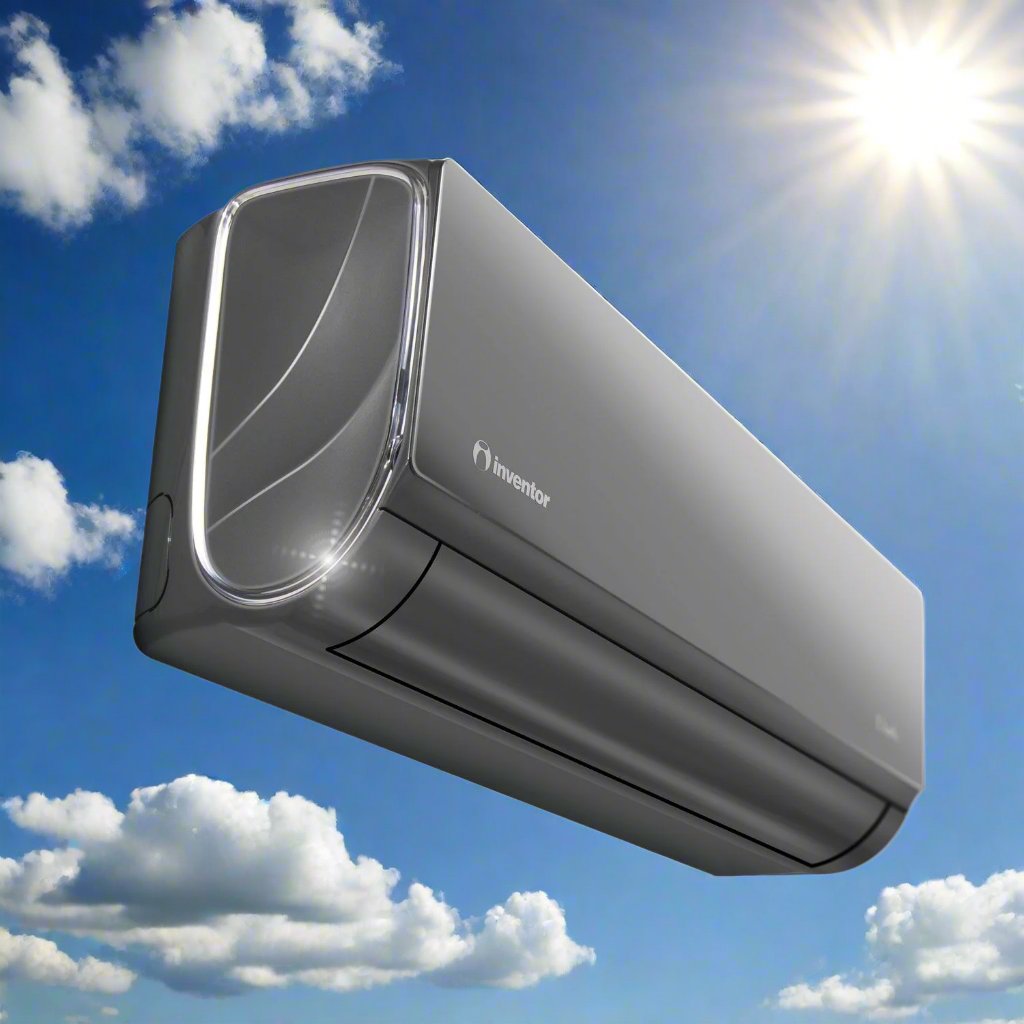
Home and Office Air-Conditioners
Create a Comfortable Oasis with OHELIOS Home & Office Air Conditioners Transform...
-
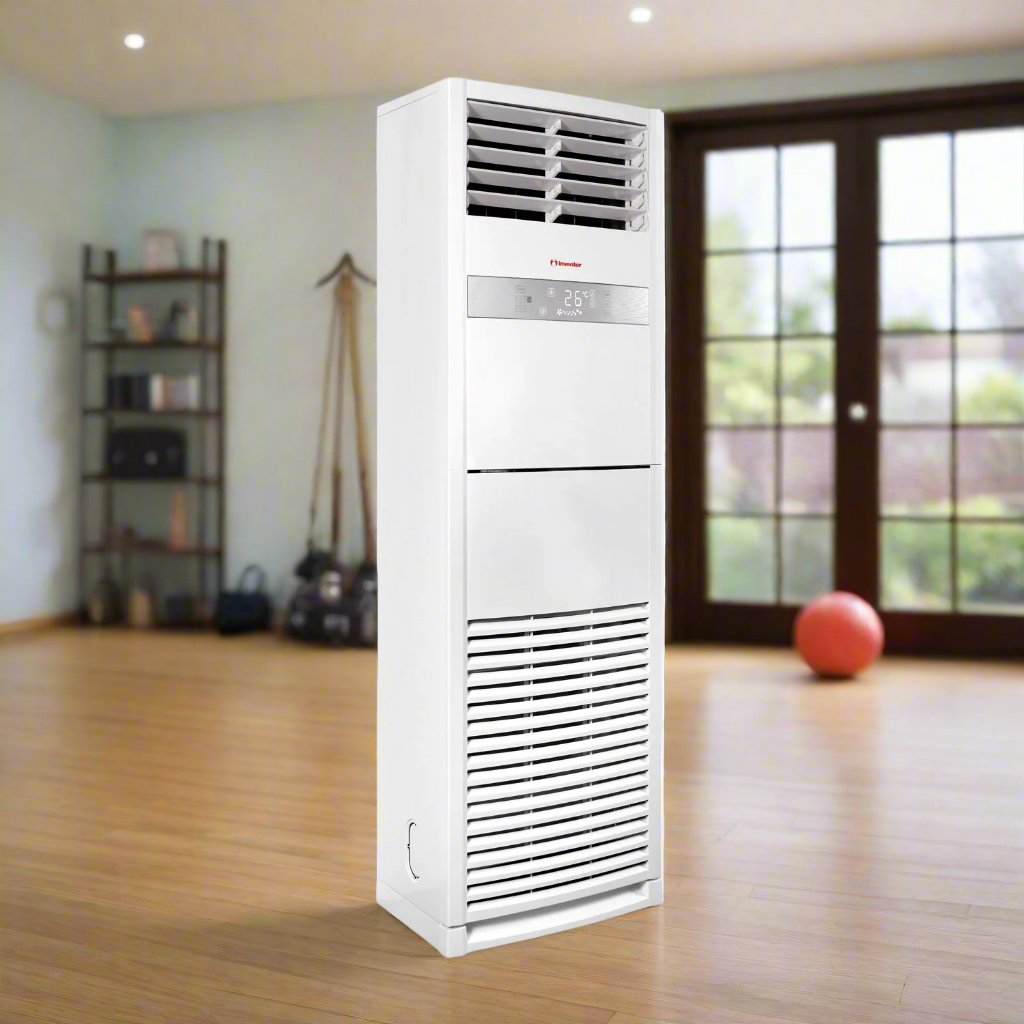
Professional Air Conditioners
Stay Cool and Comfortable with Ohelios Professional Air Conditioners Experience ultimate comfort...
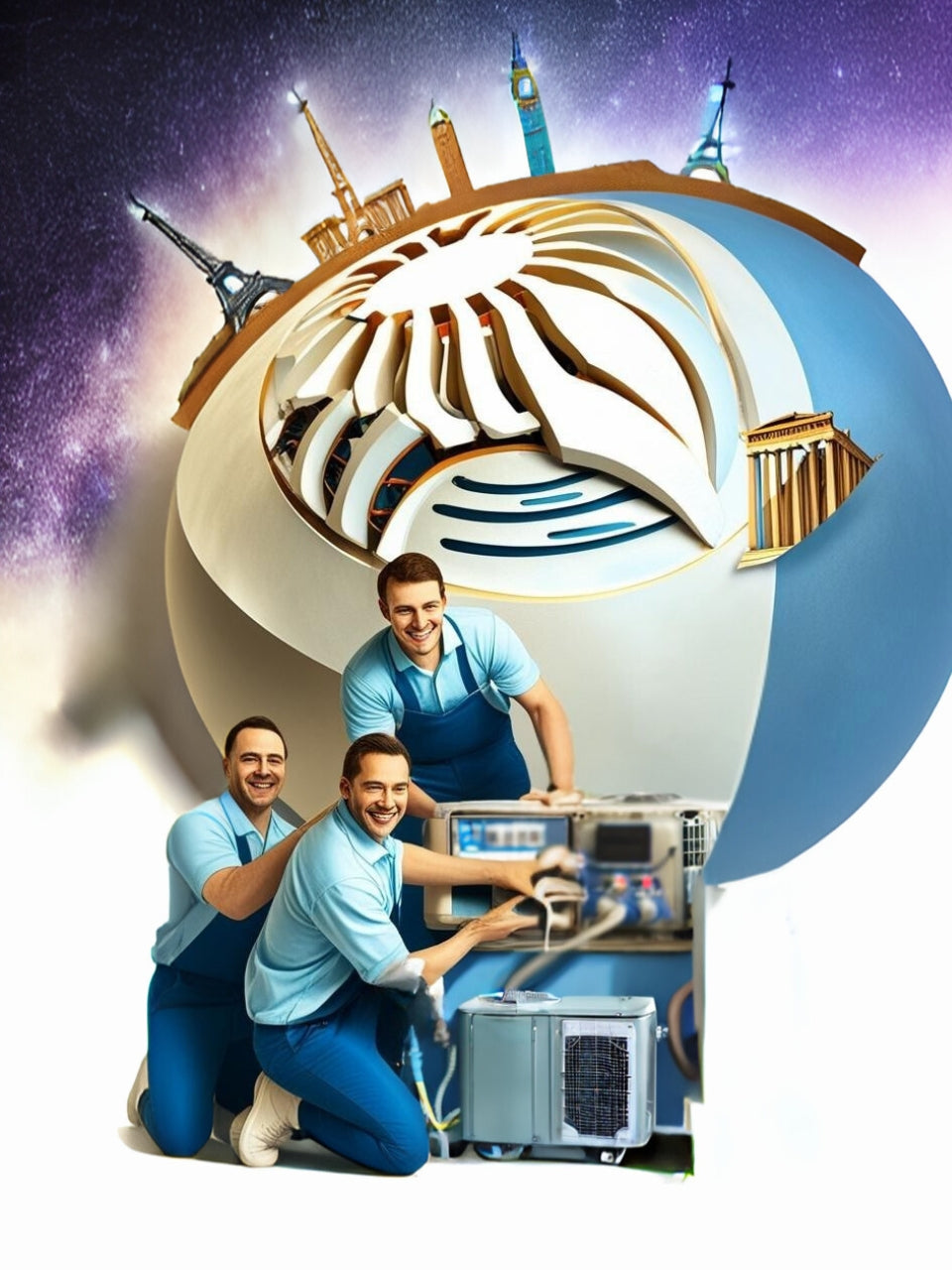
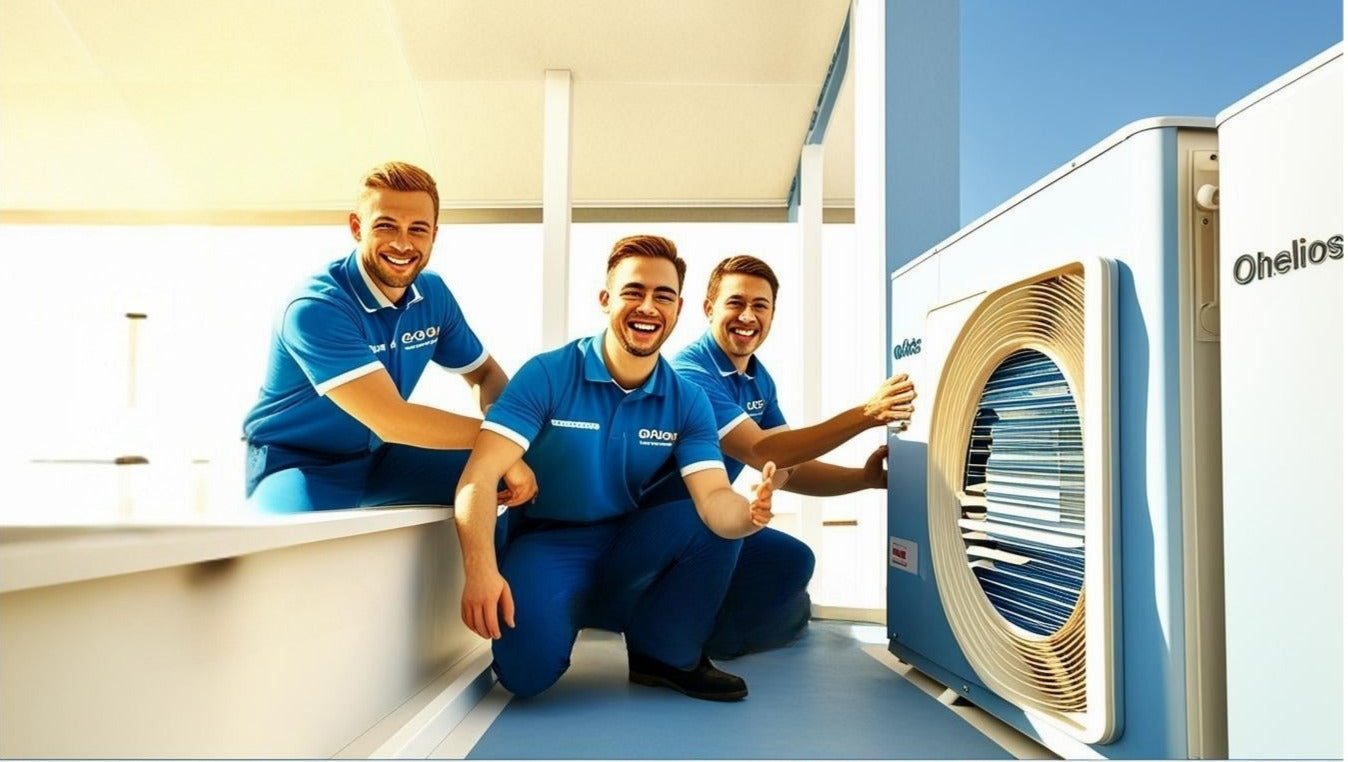
ohelios.com
ohelios is your go-to destination for premium solar water heaters and exclusive seasonal offers on air conditioners, heat pumps, pool pumps, and more. Elevate your energy efficiency, save big, and step into a greener, more economical future.
